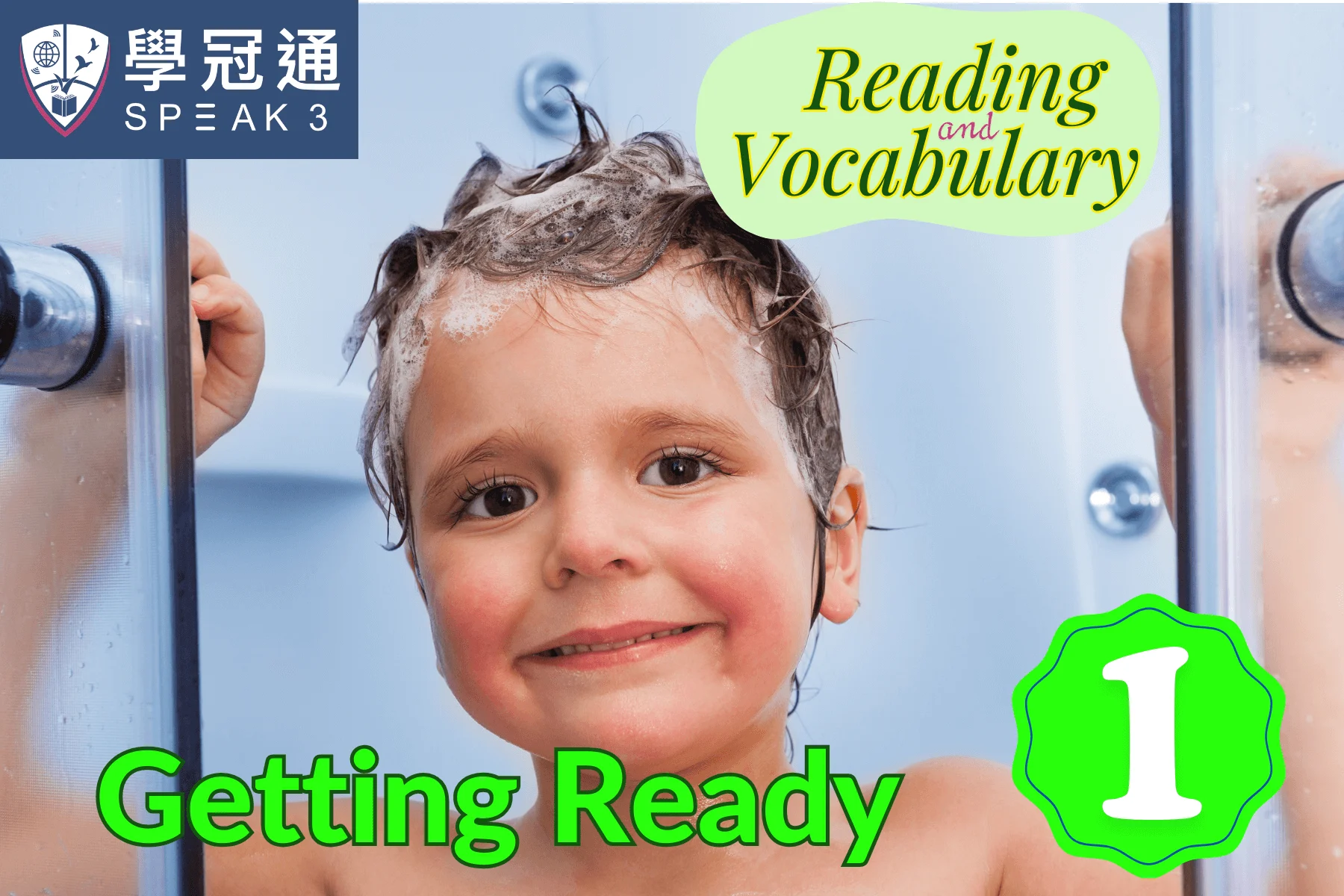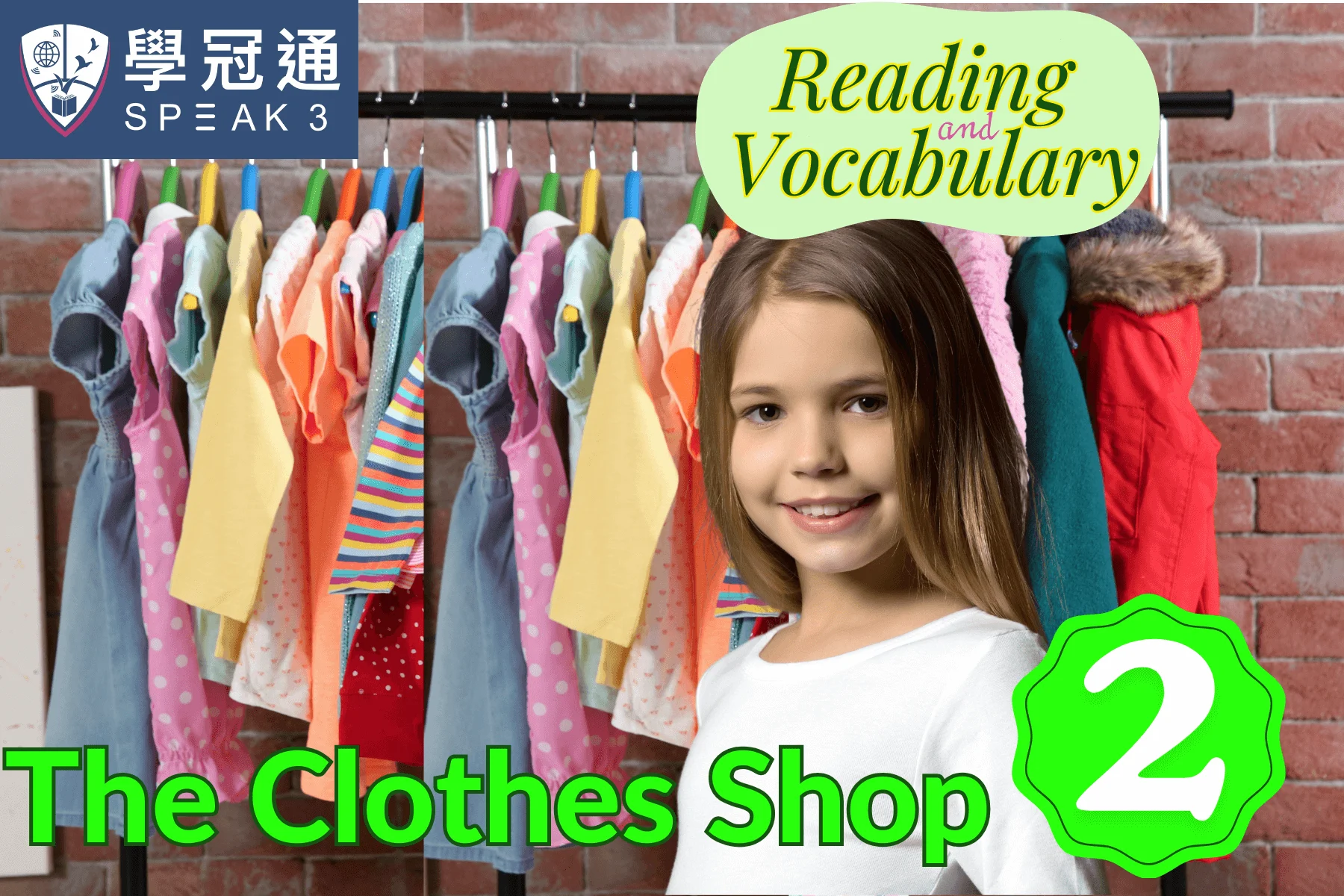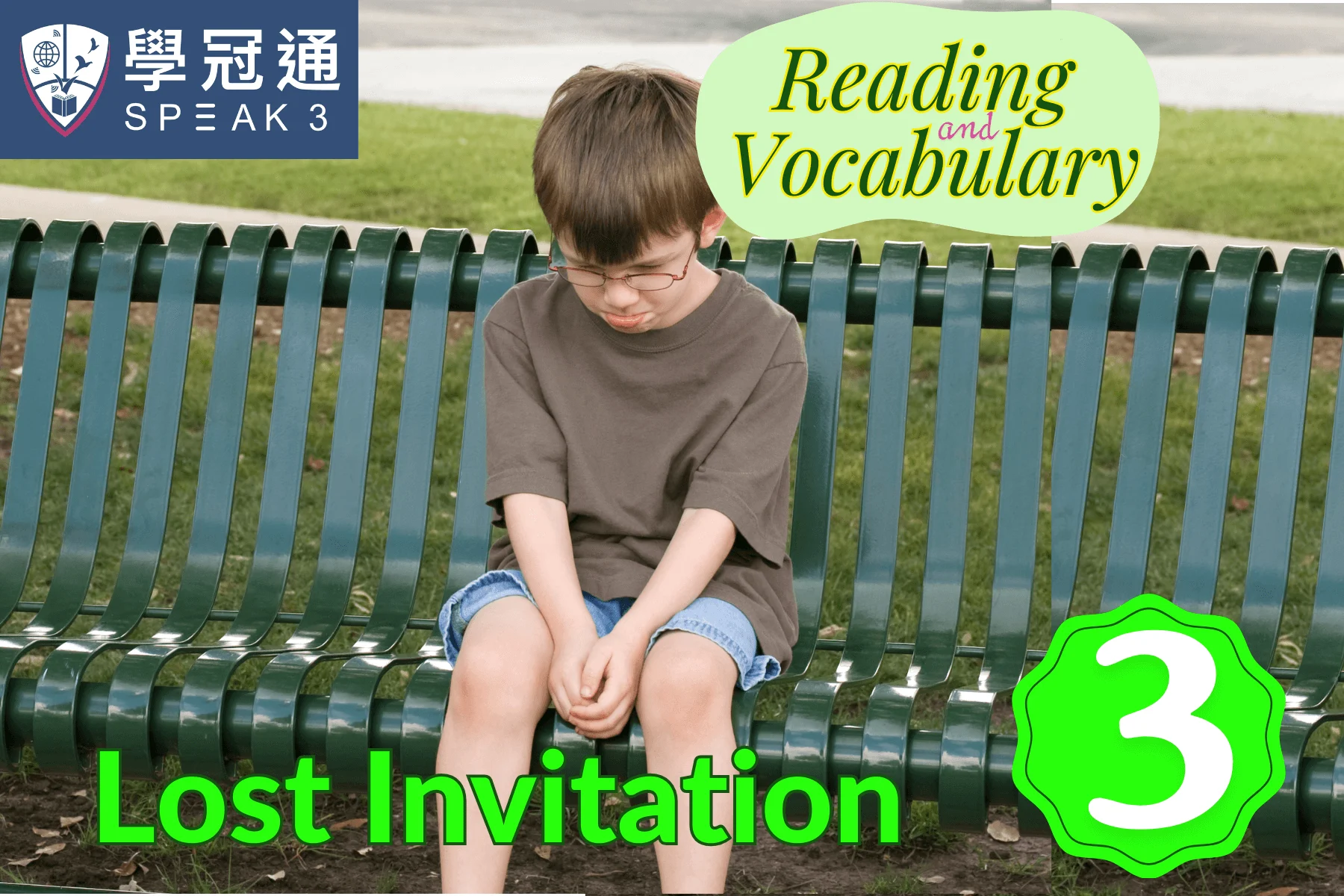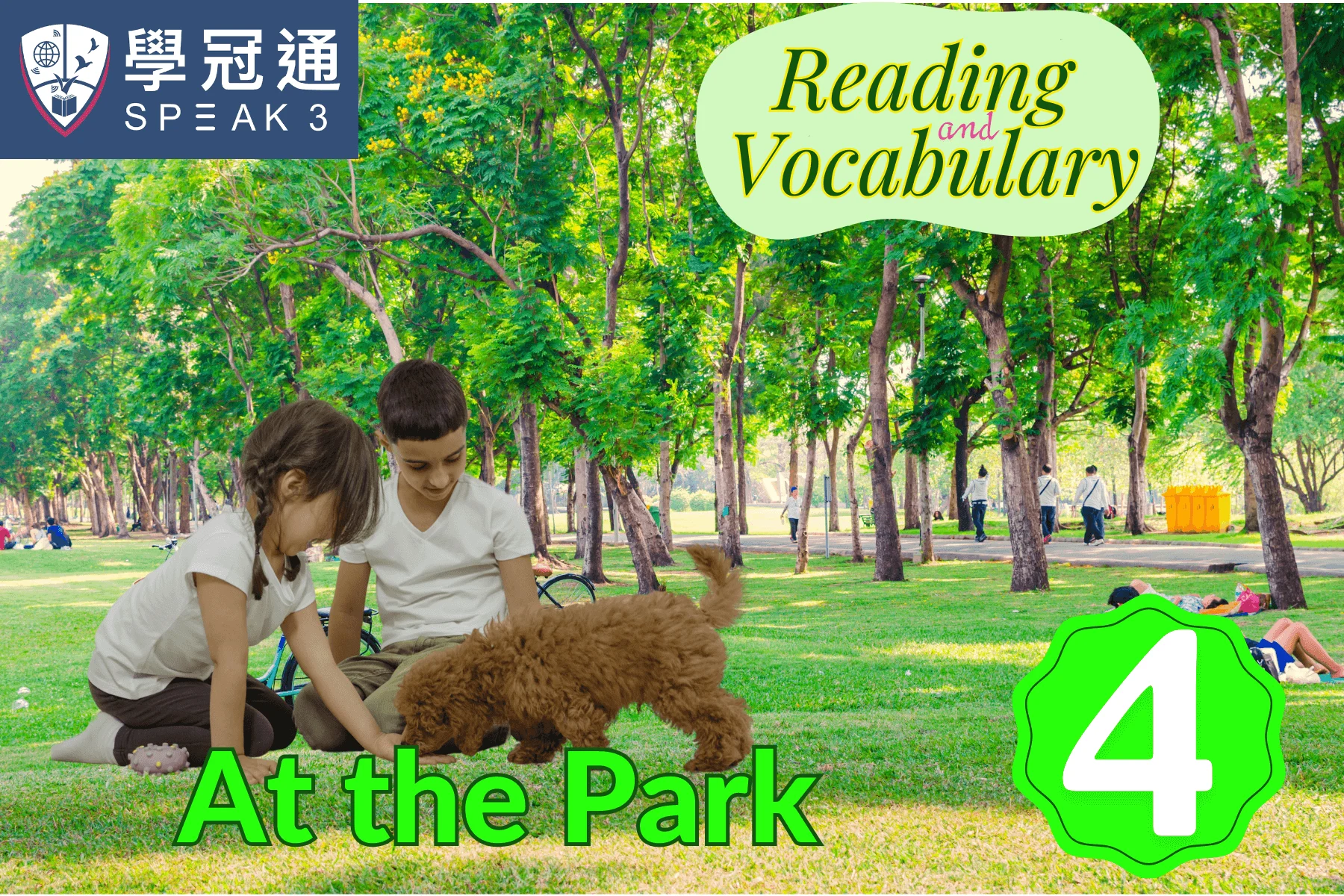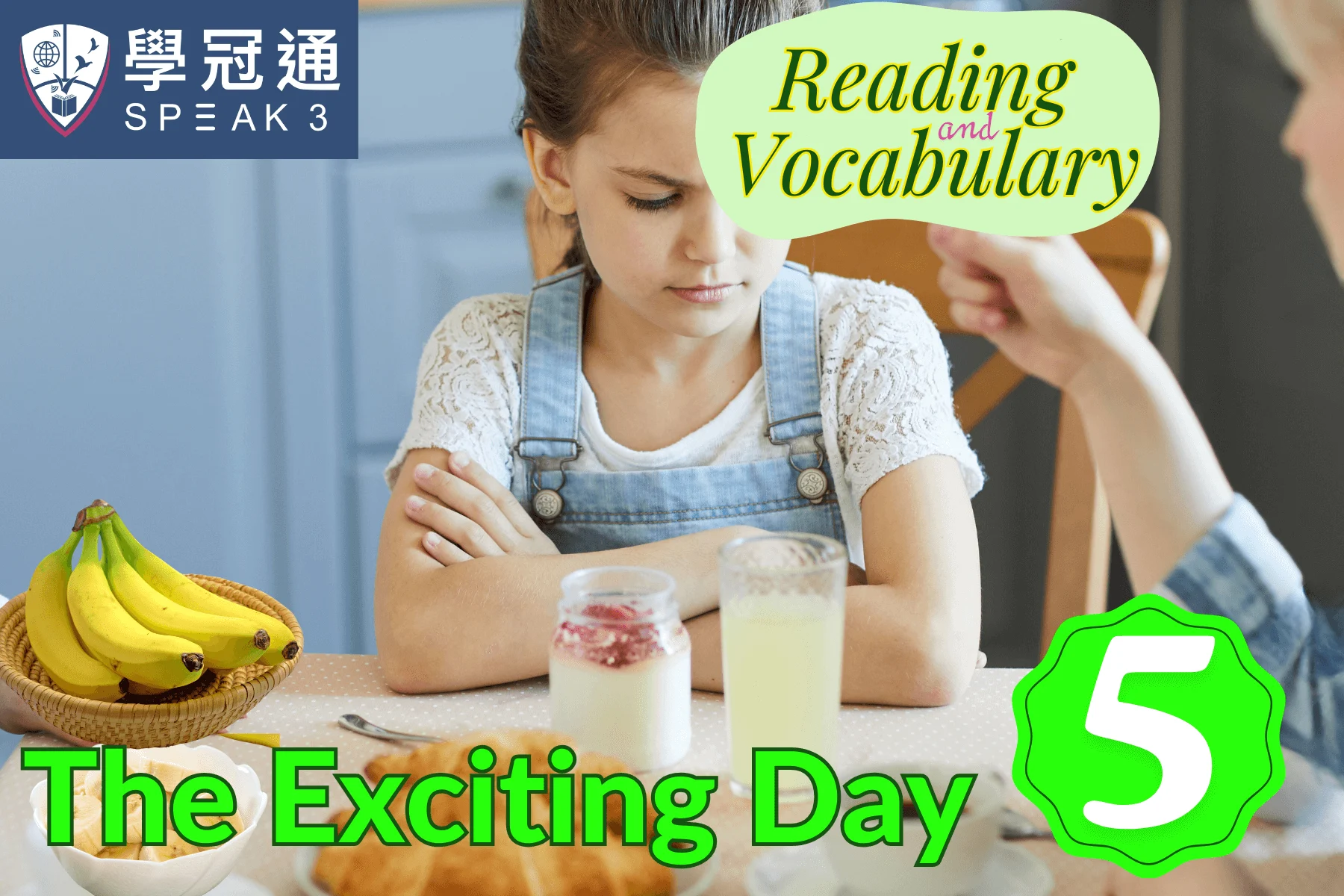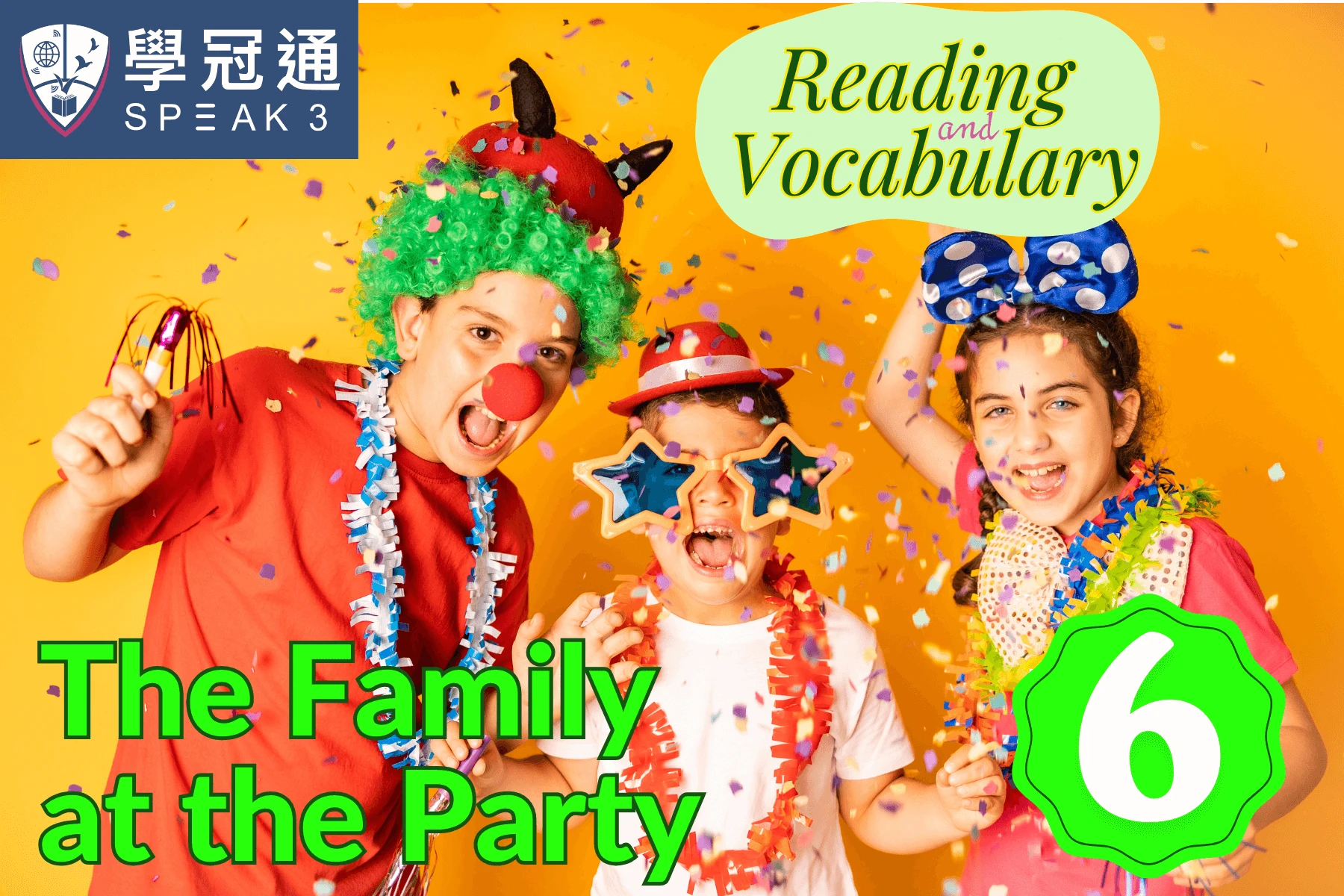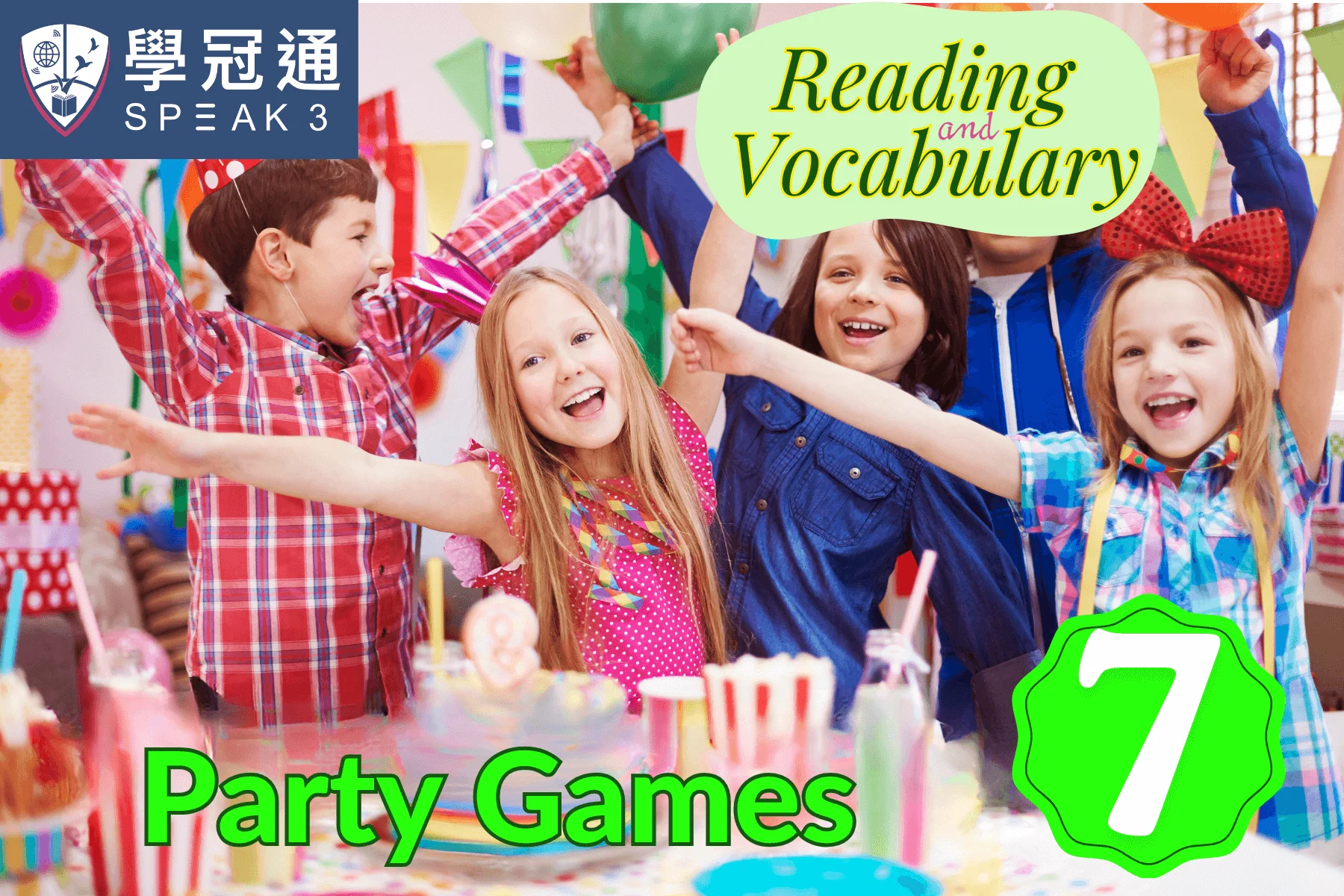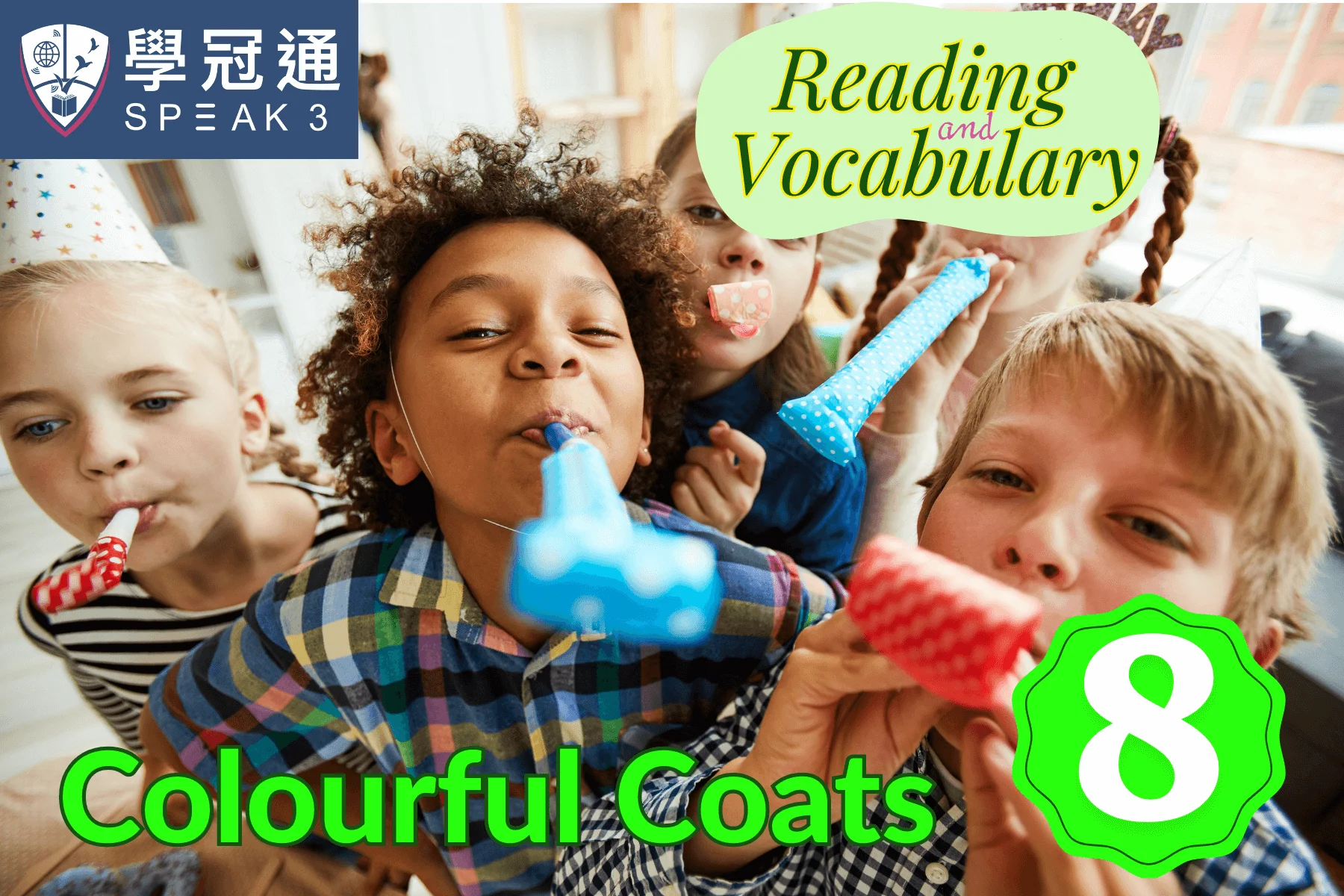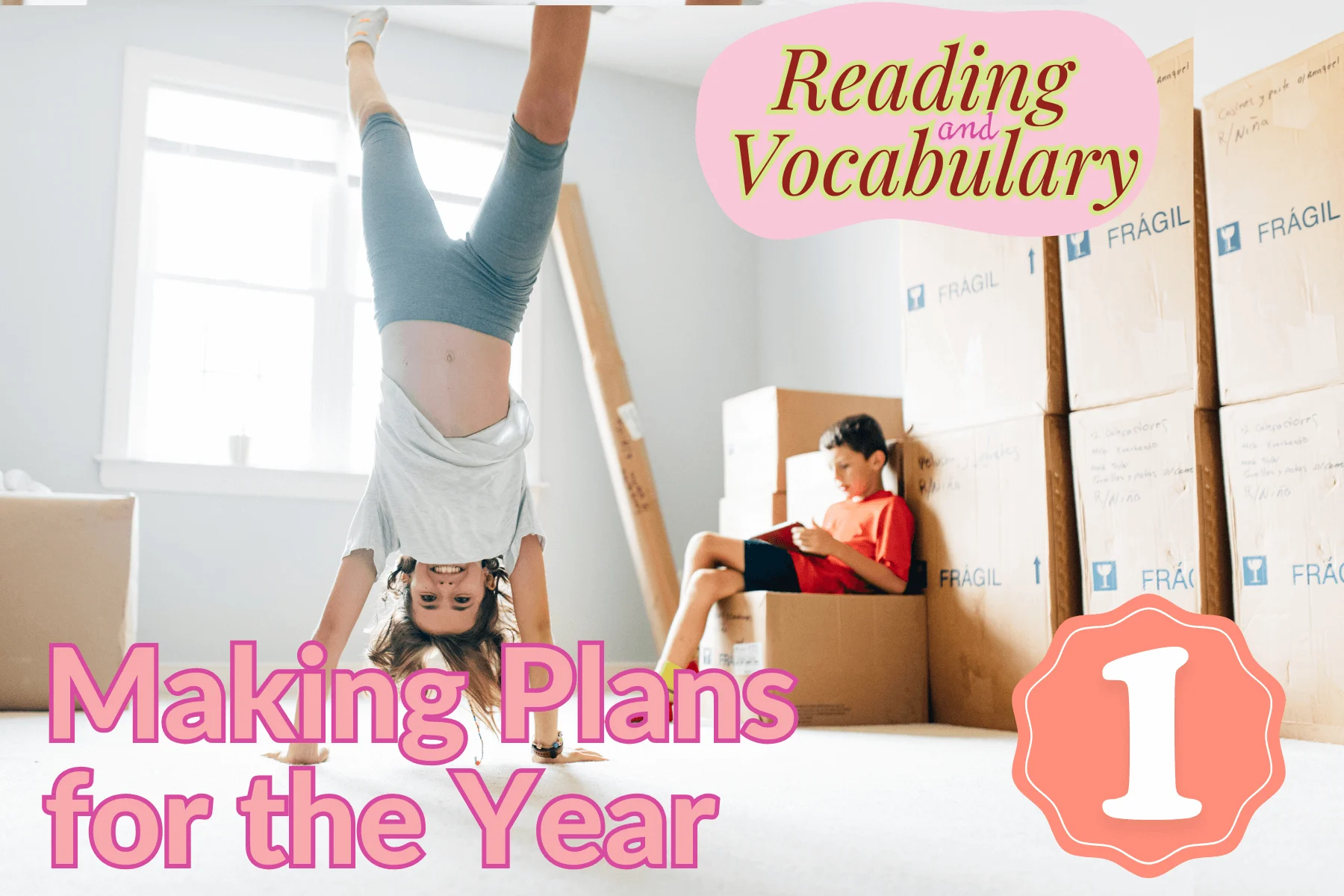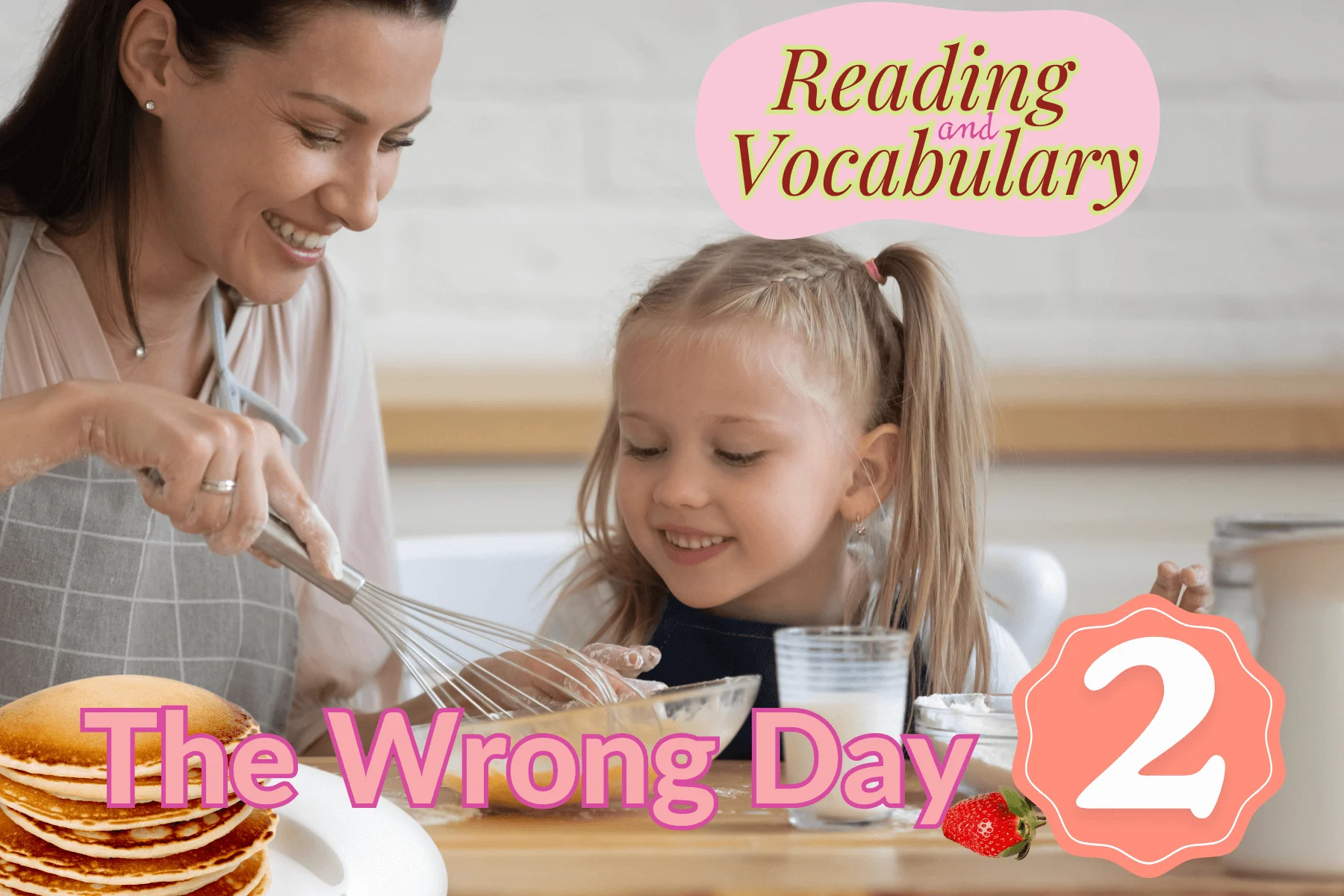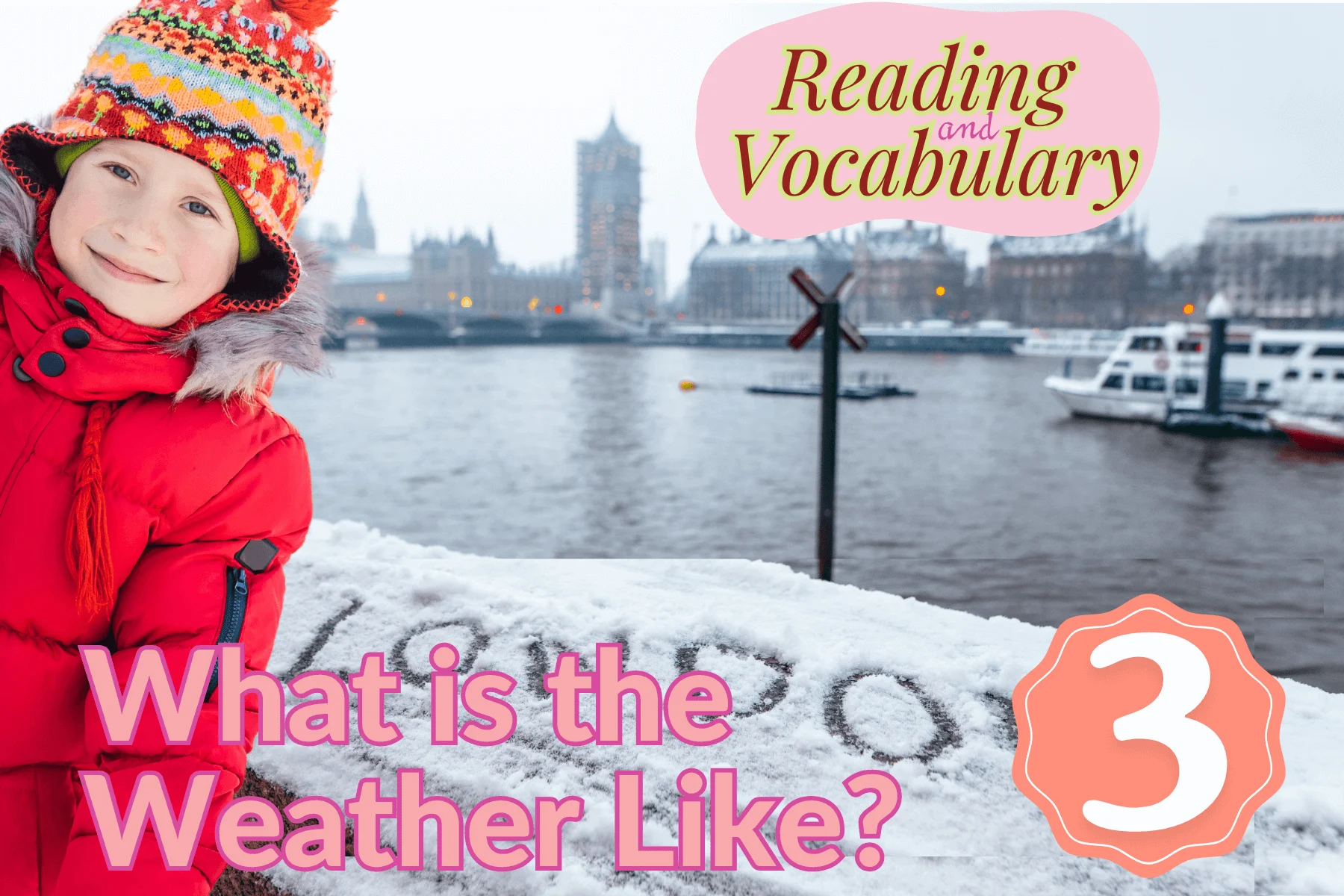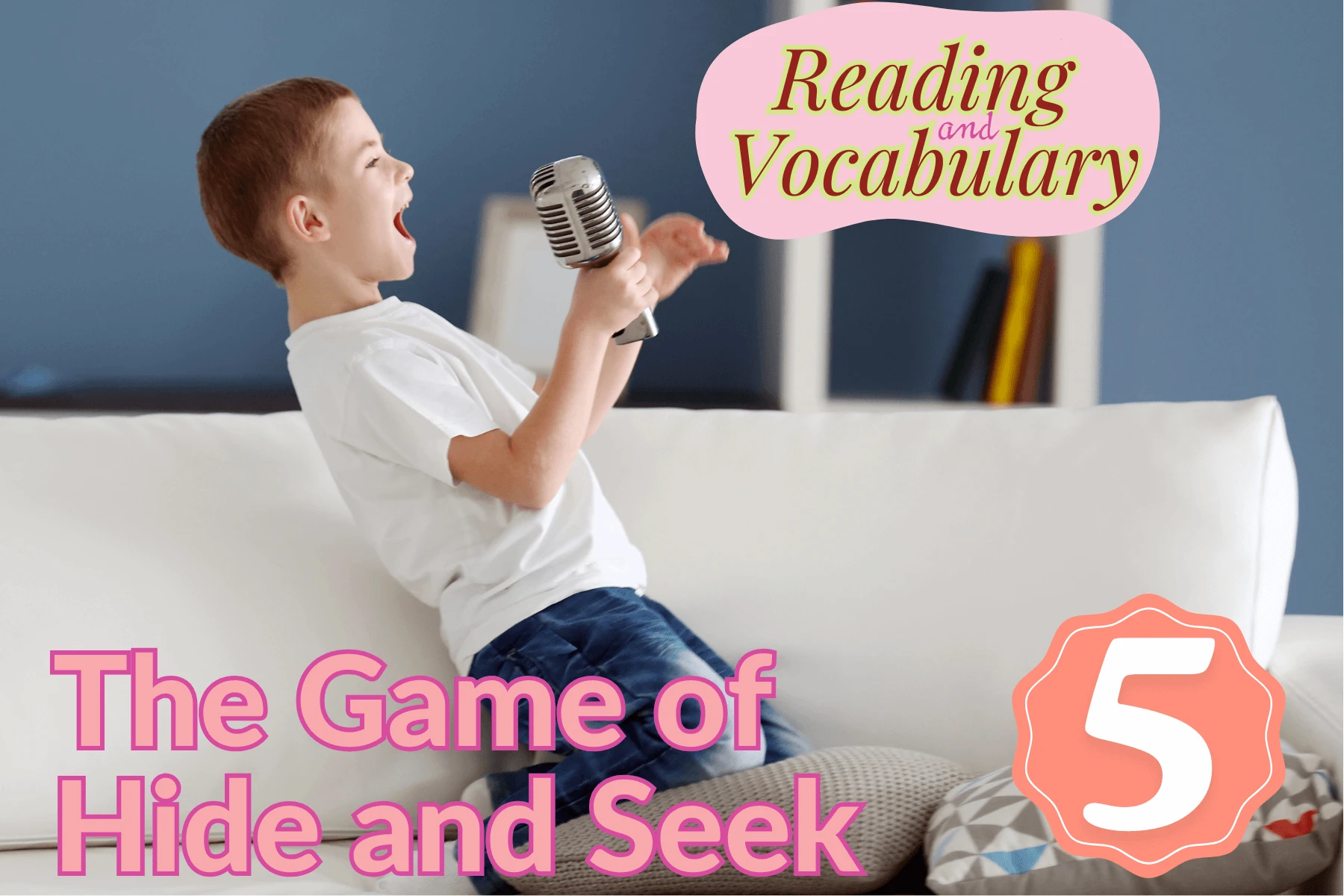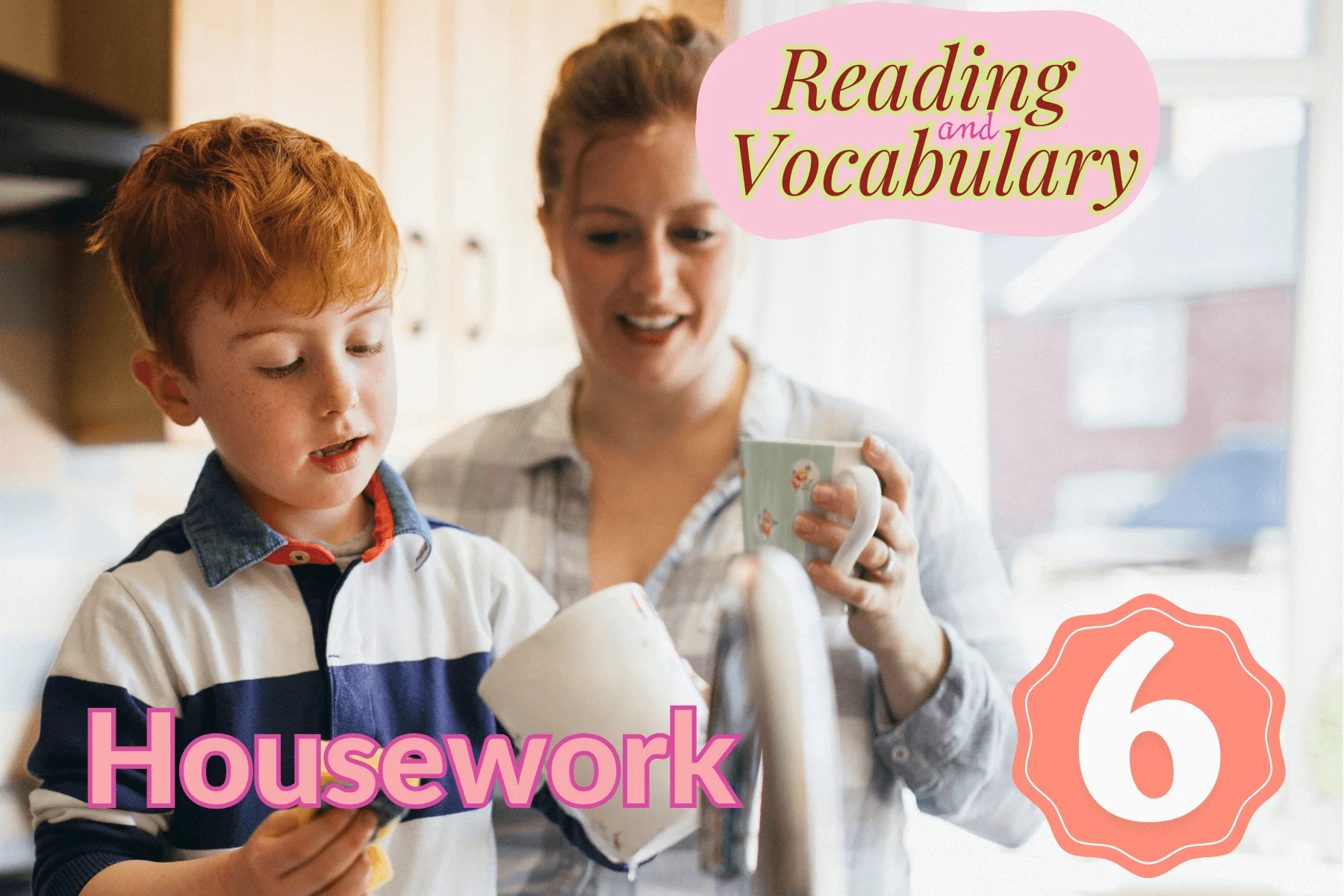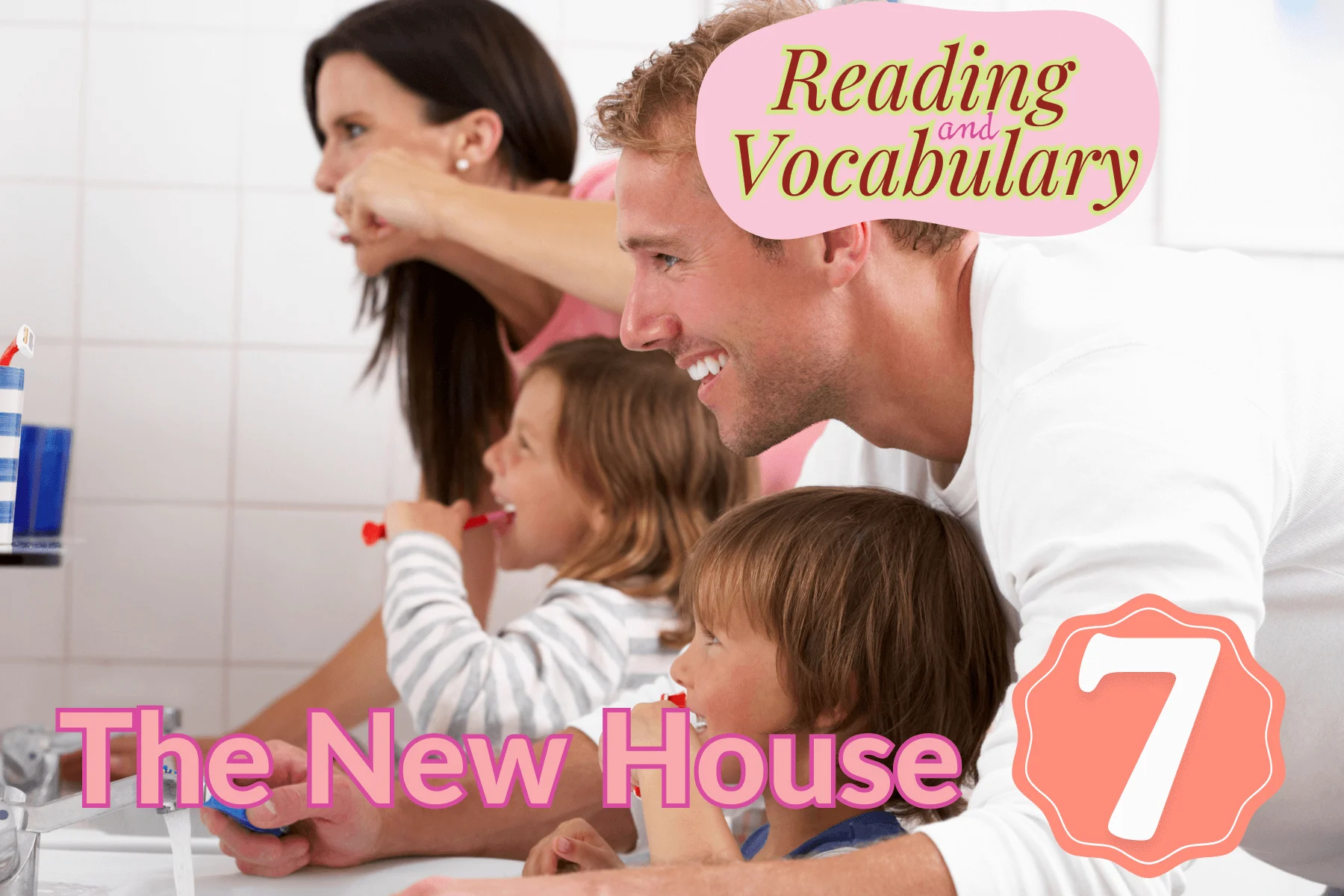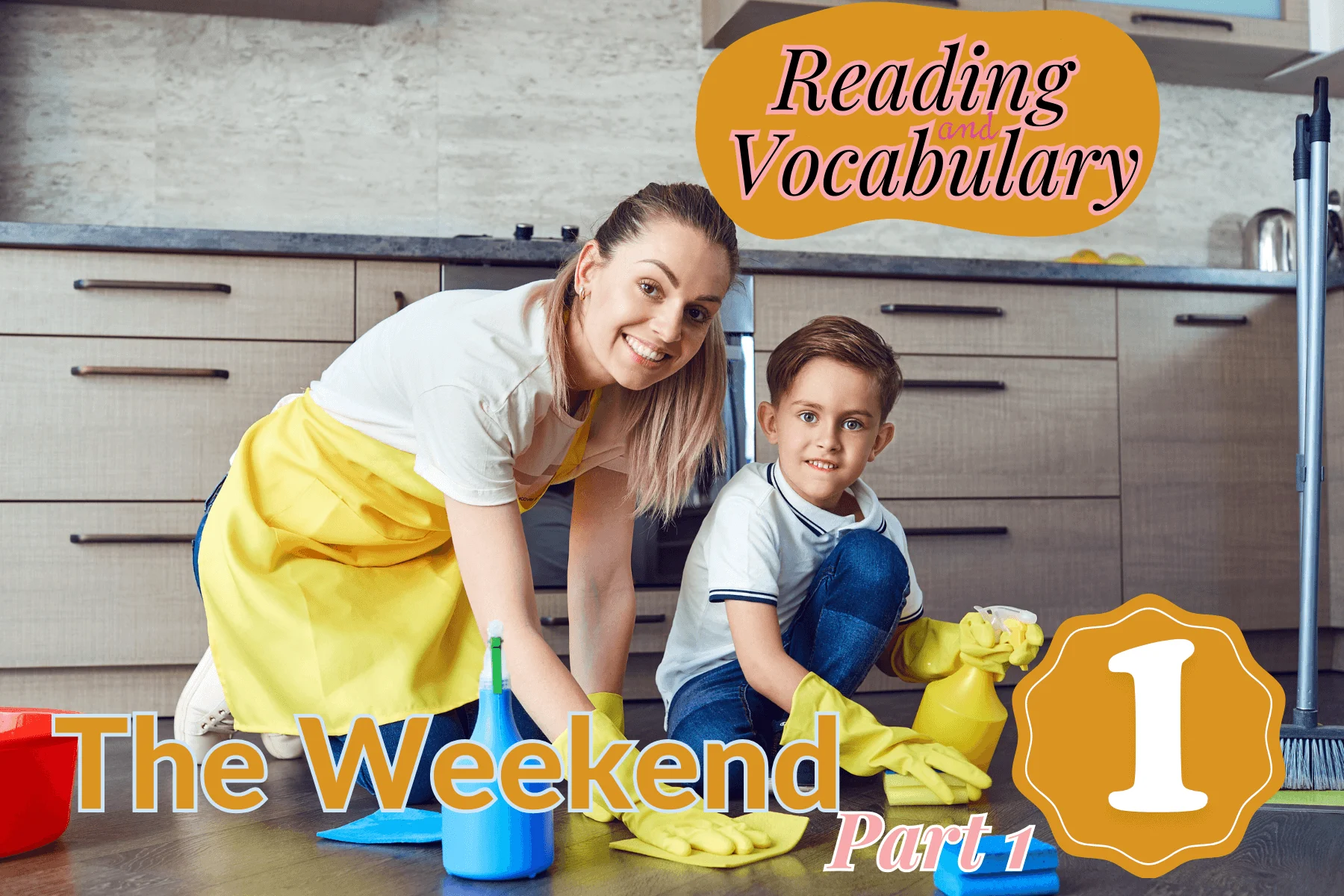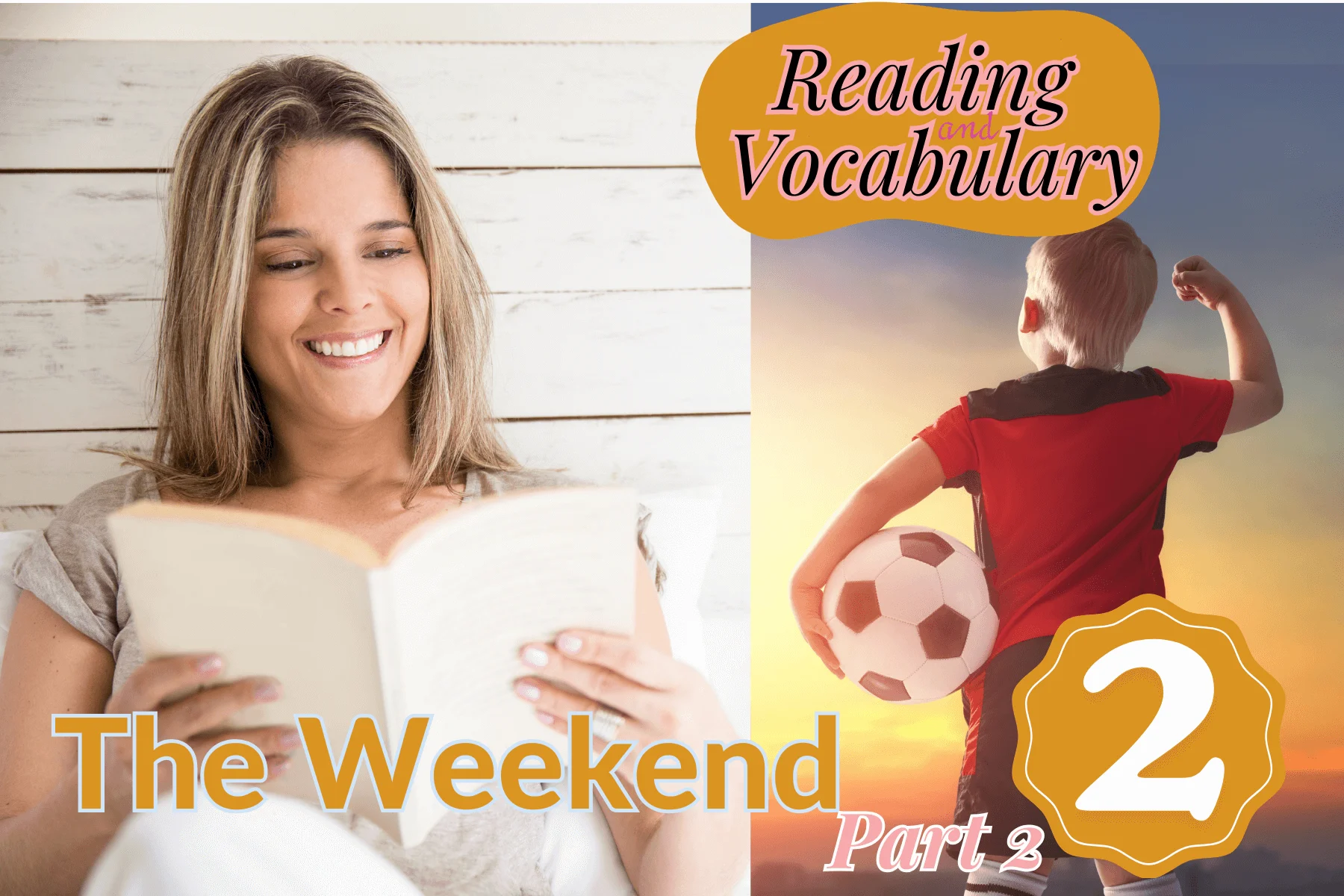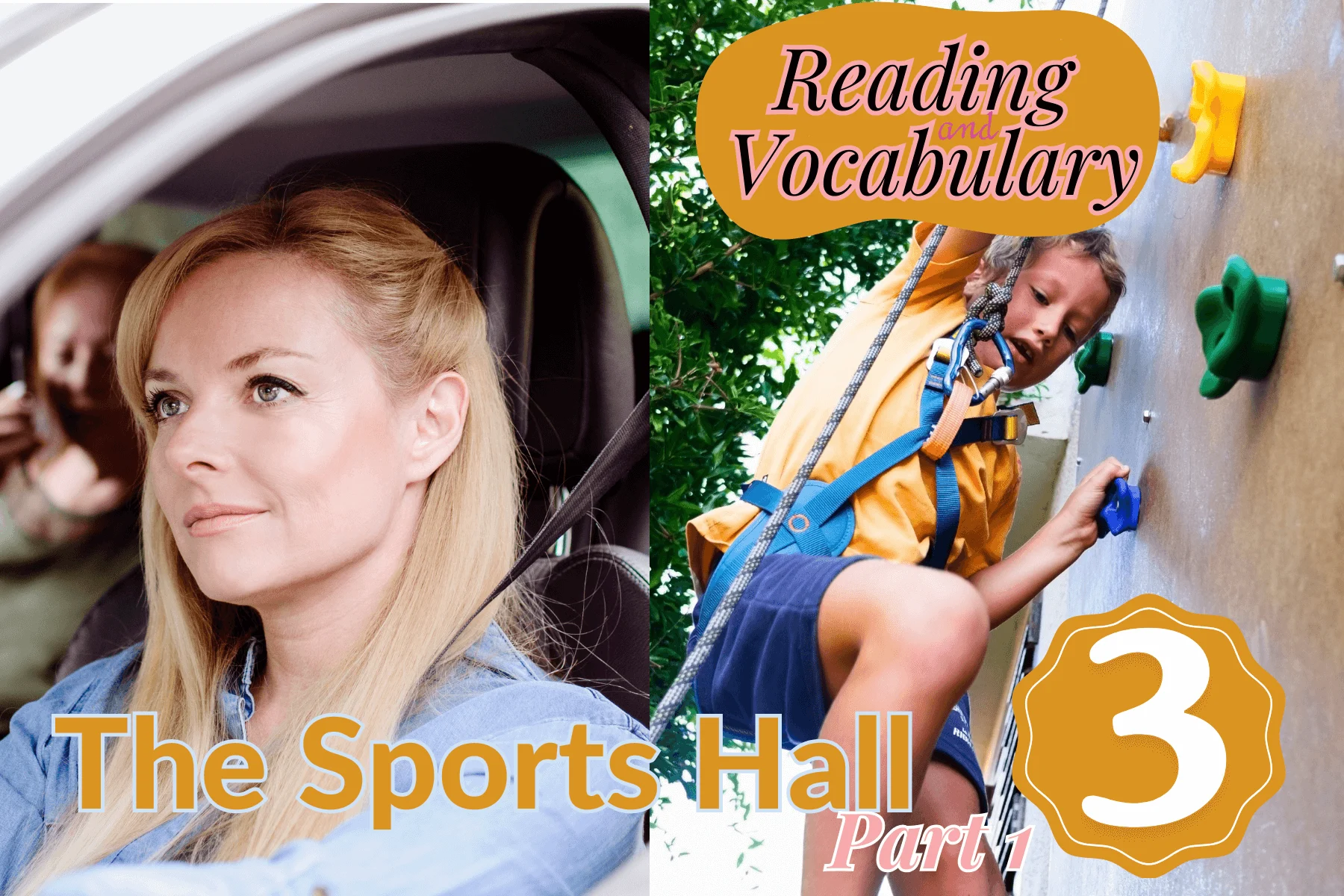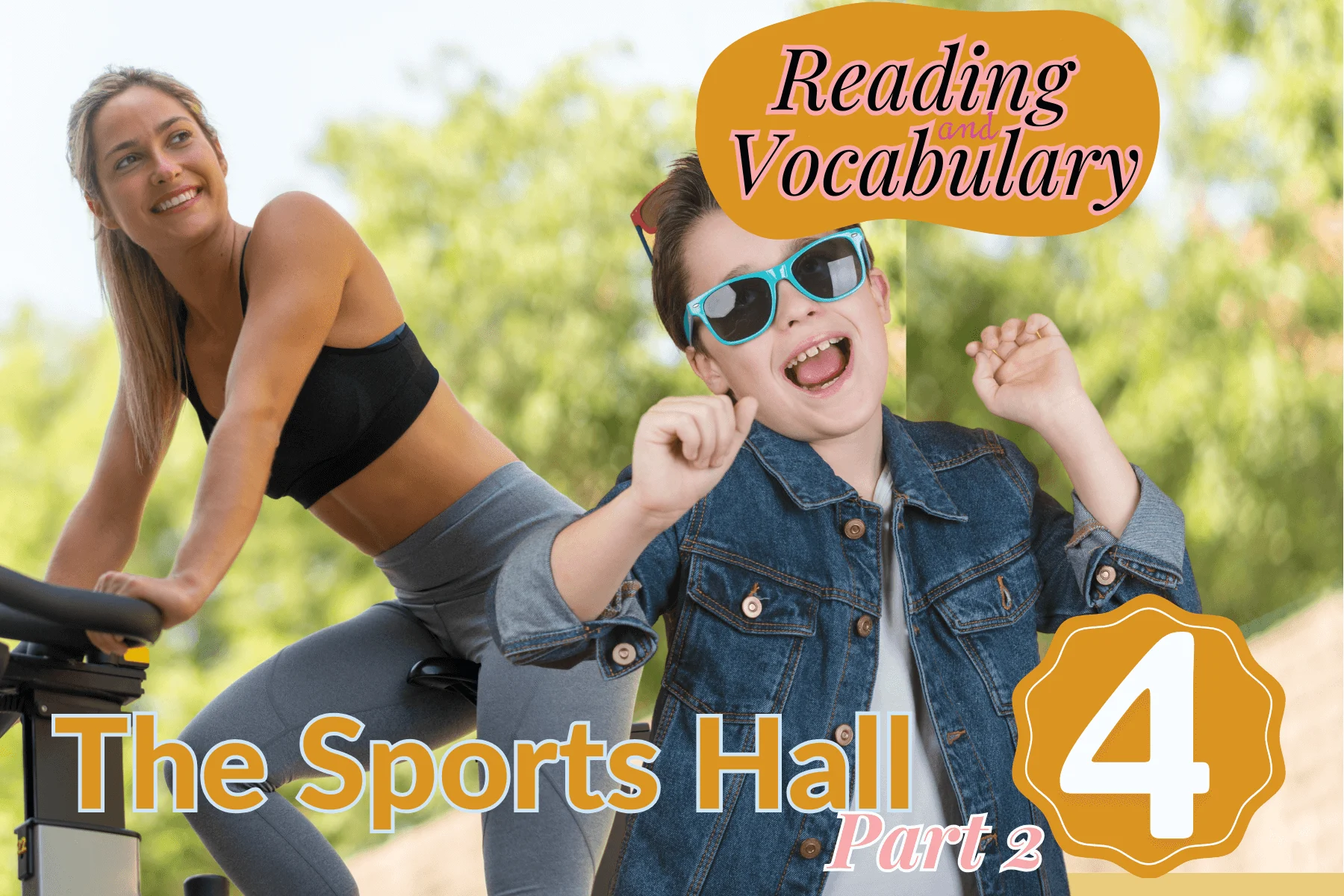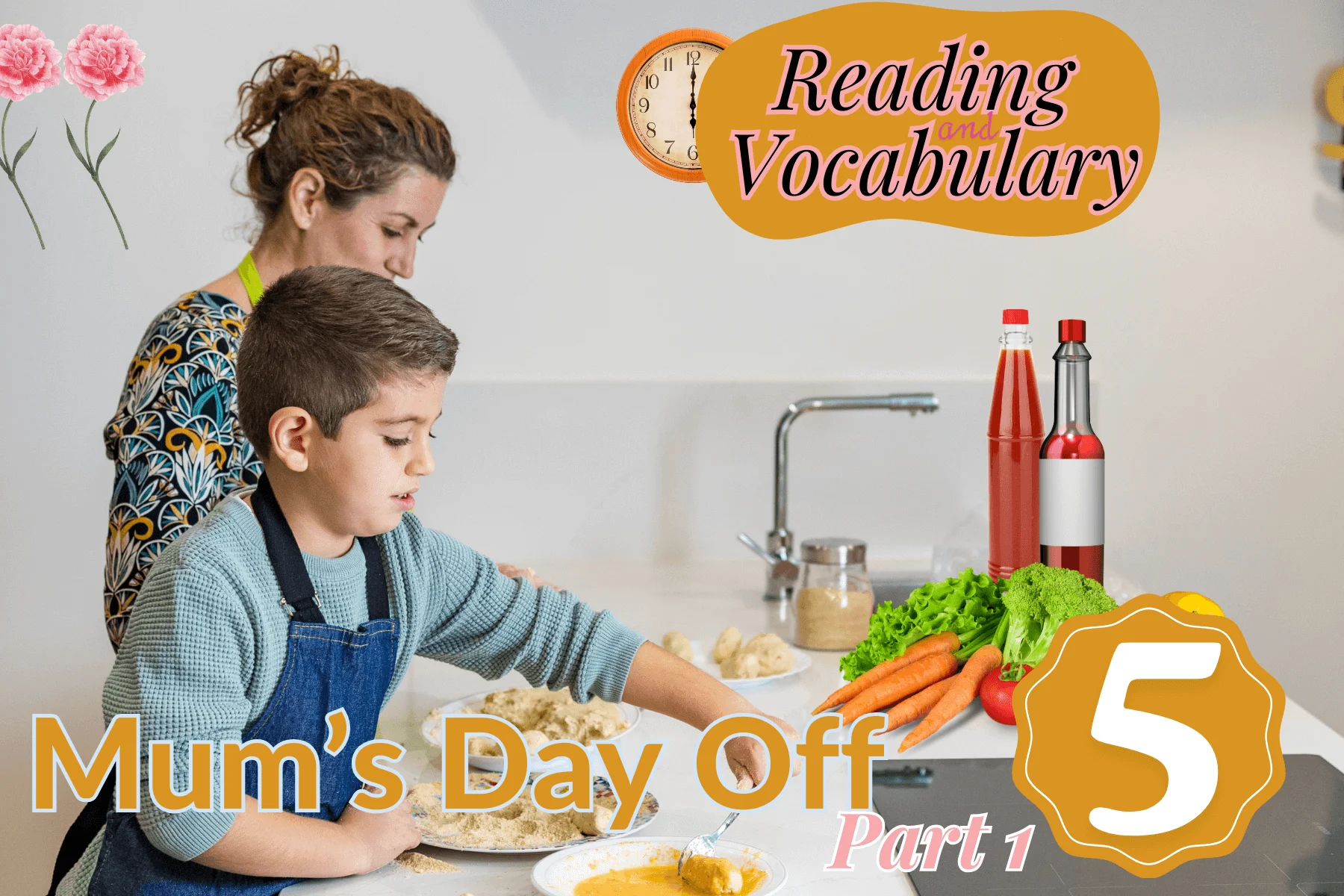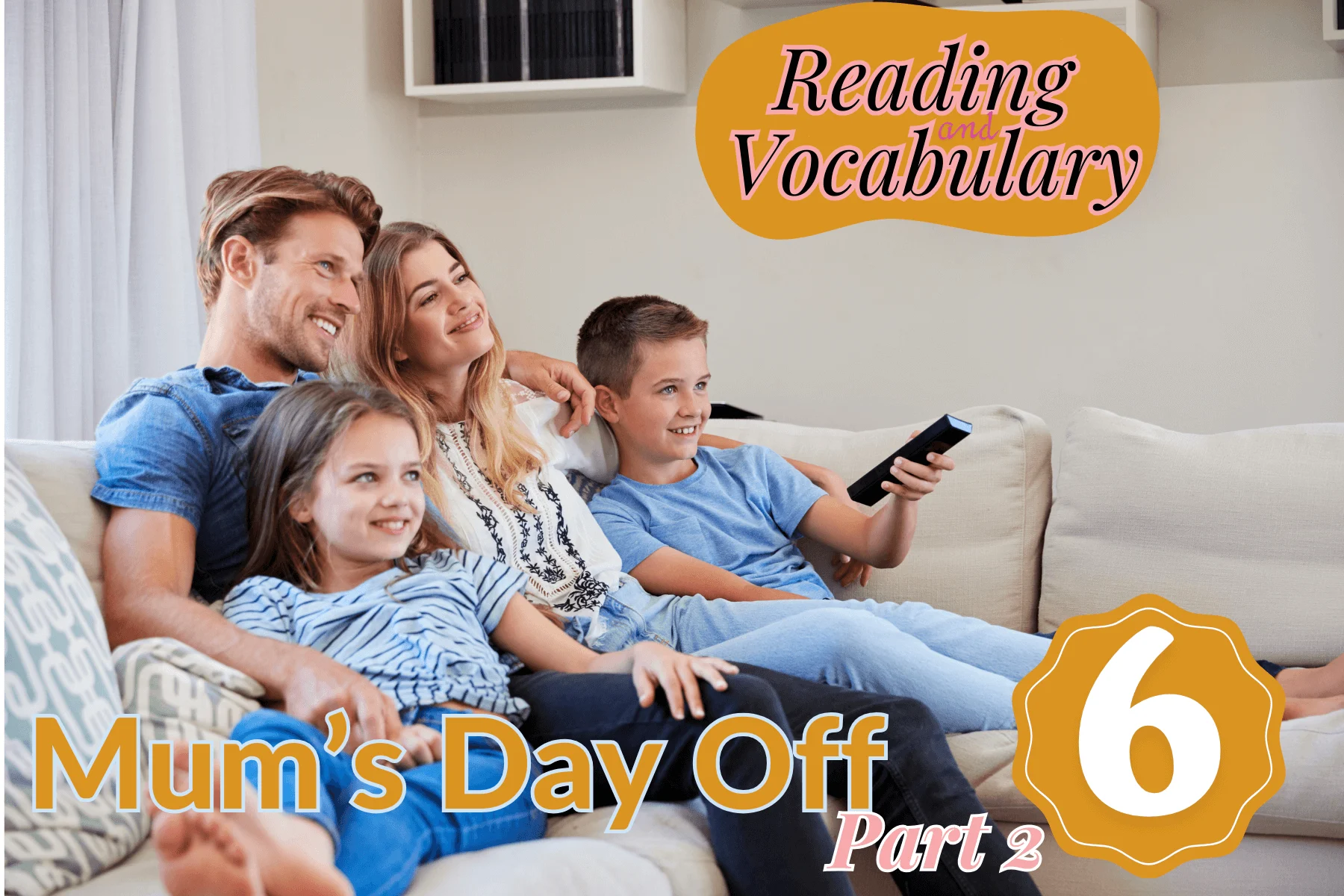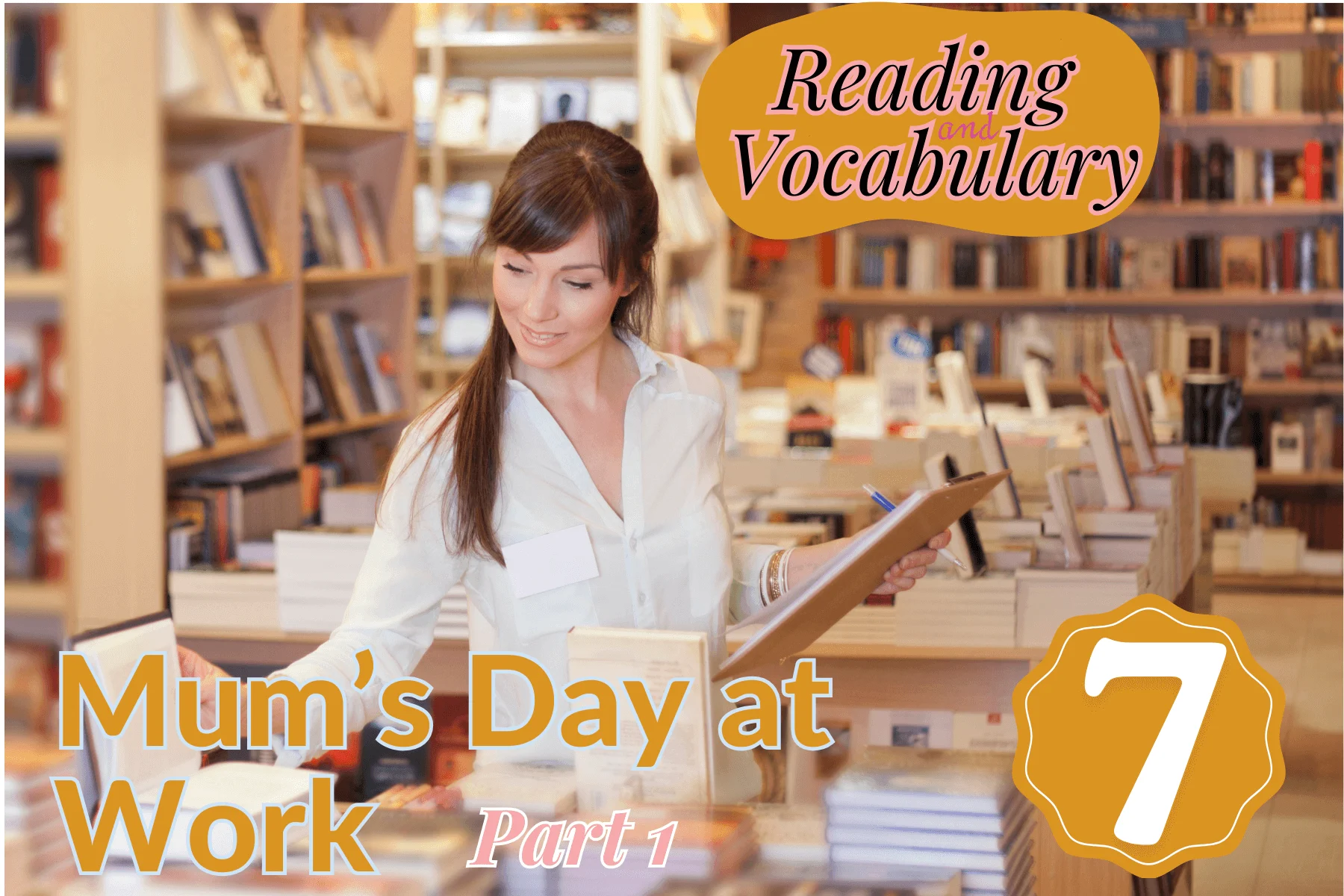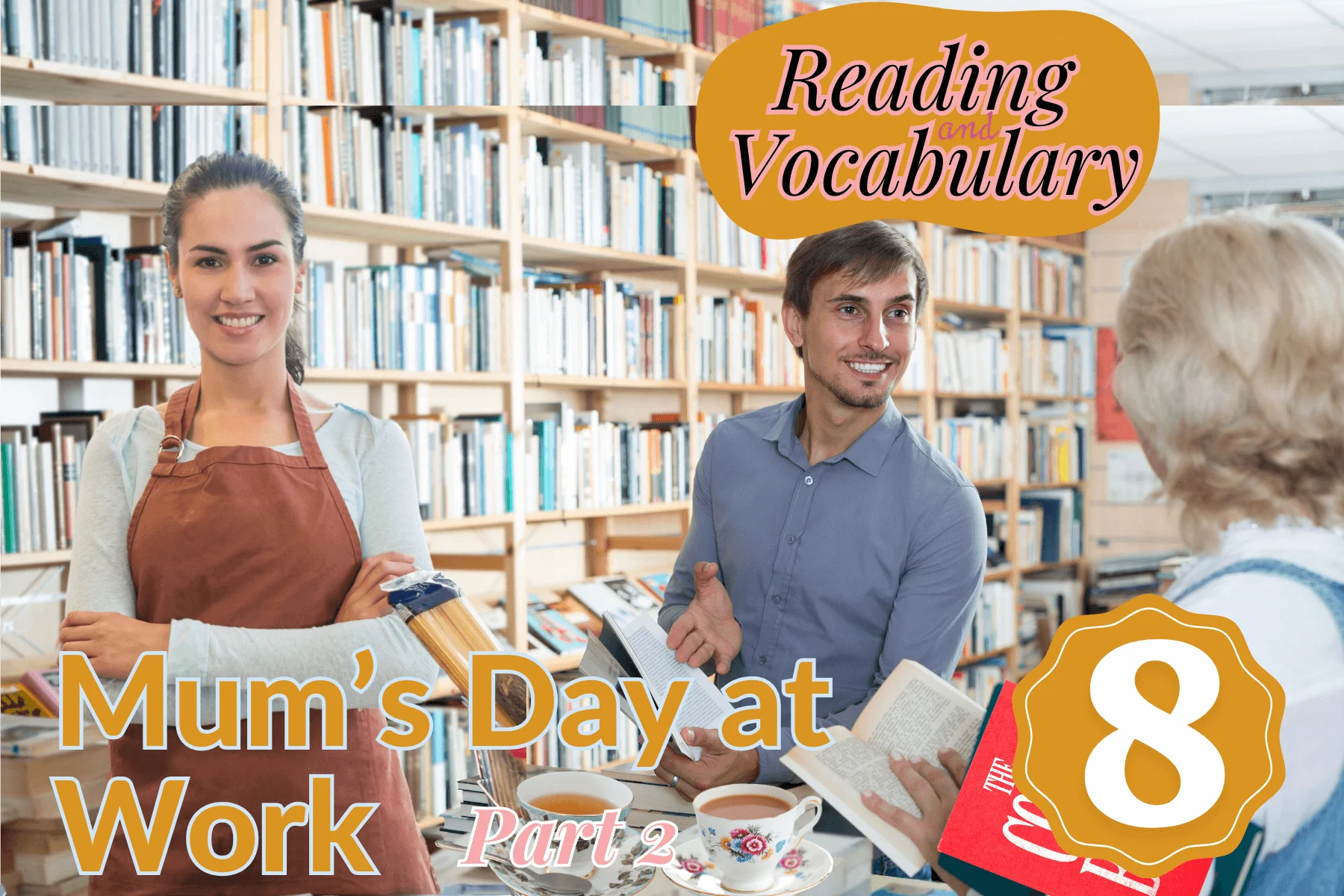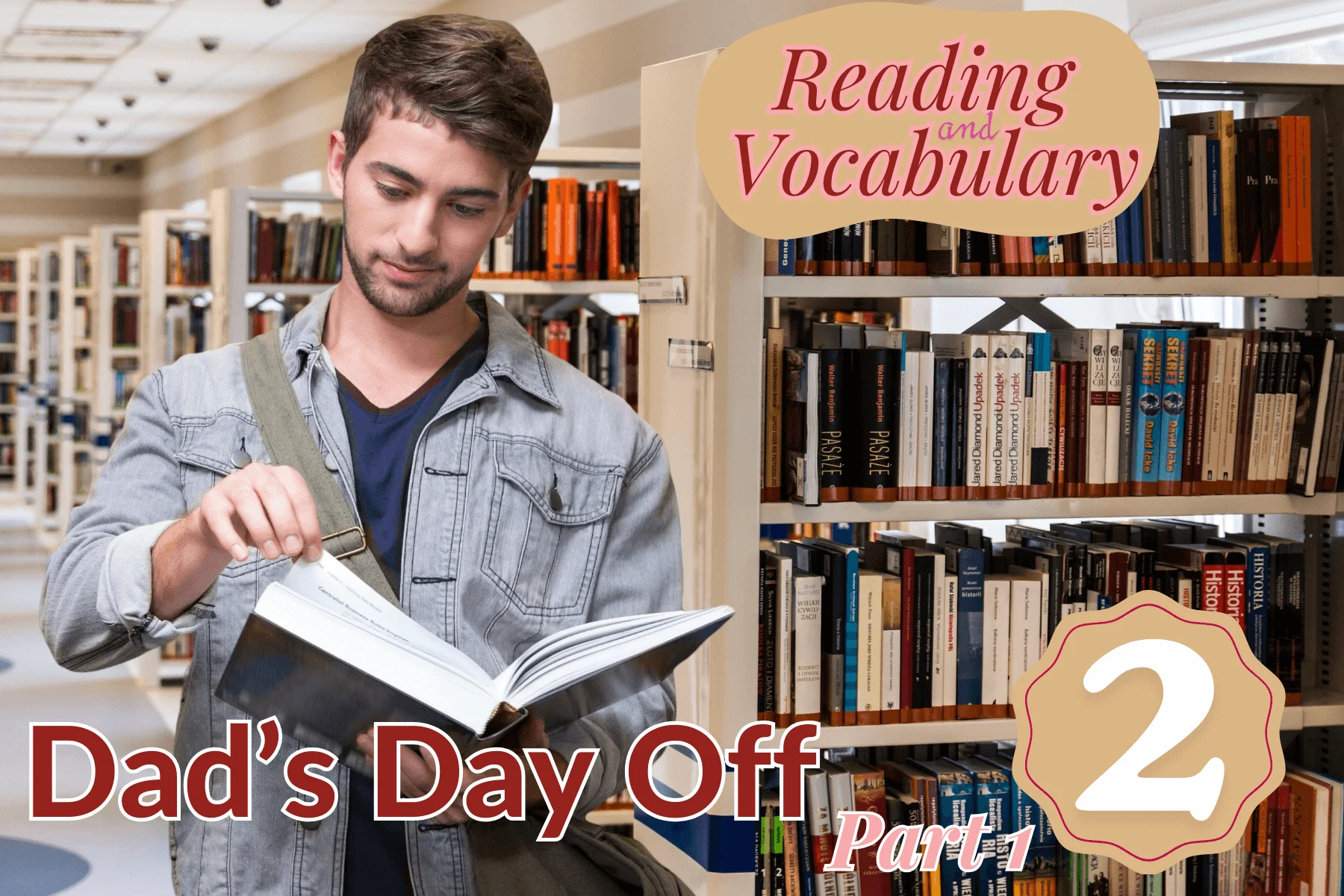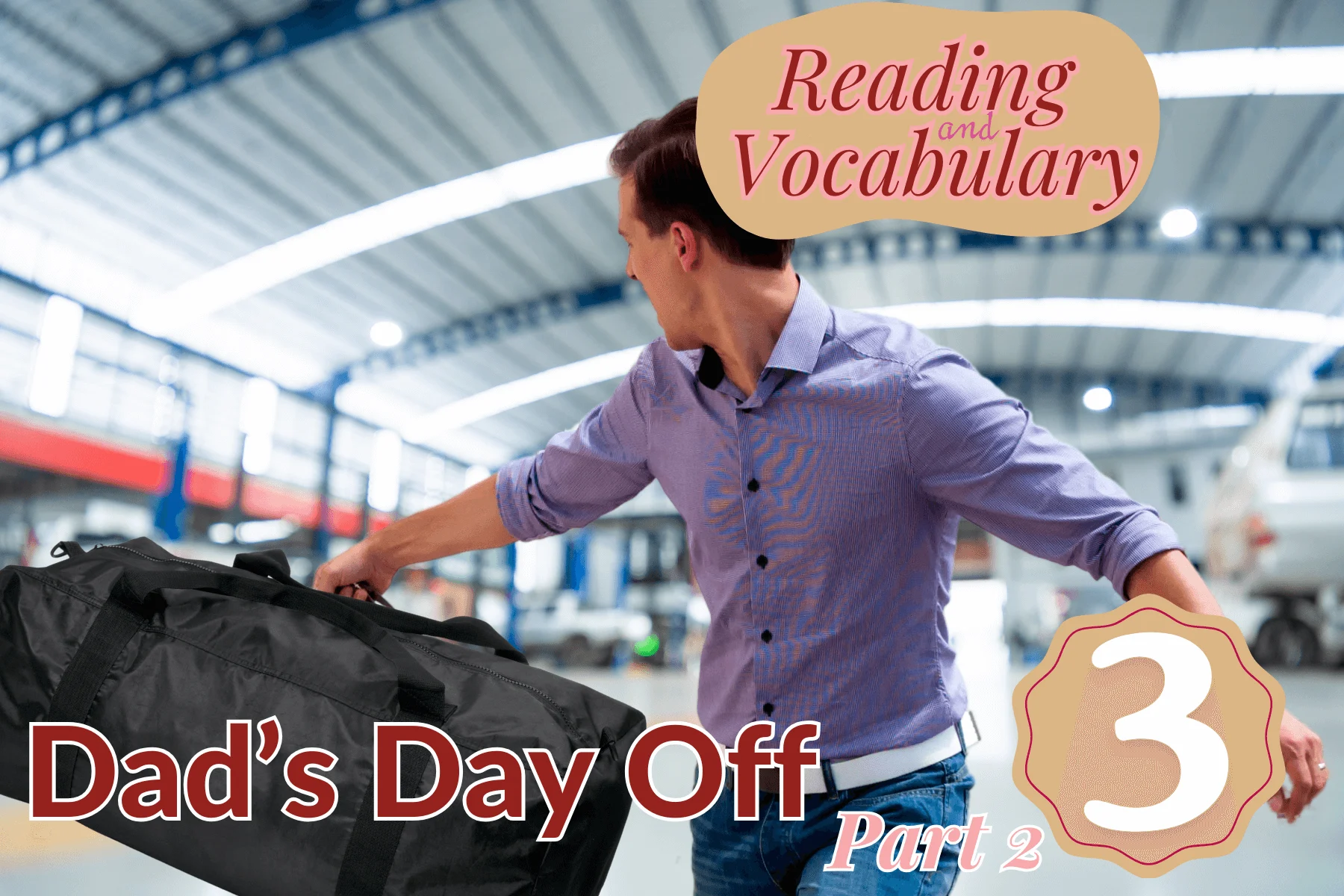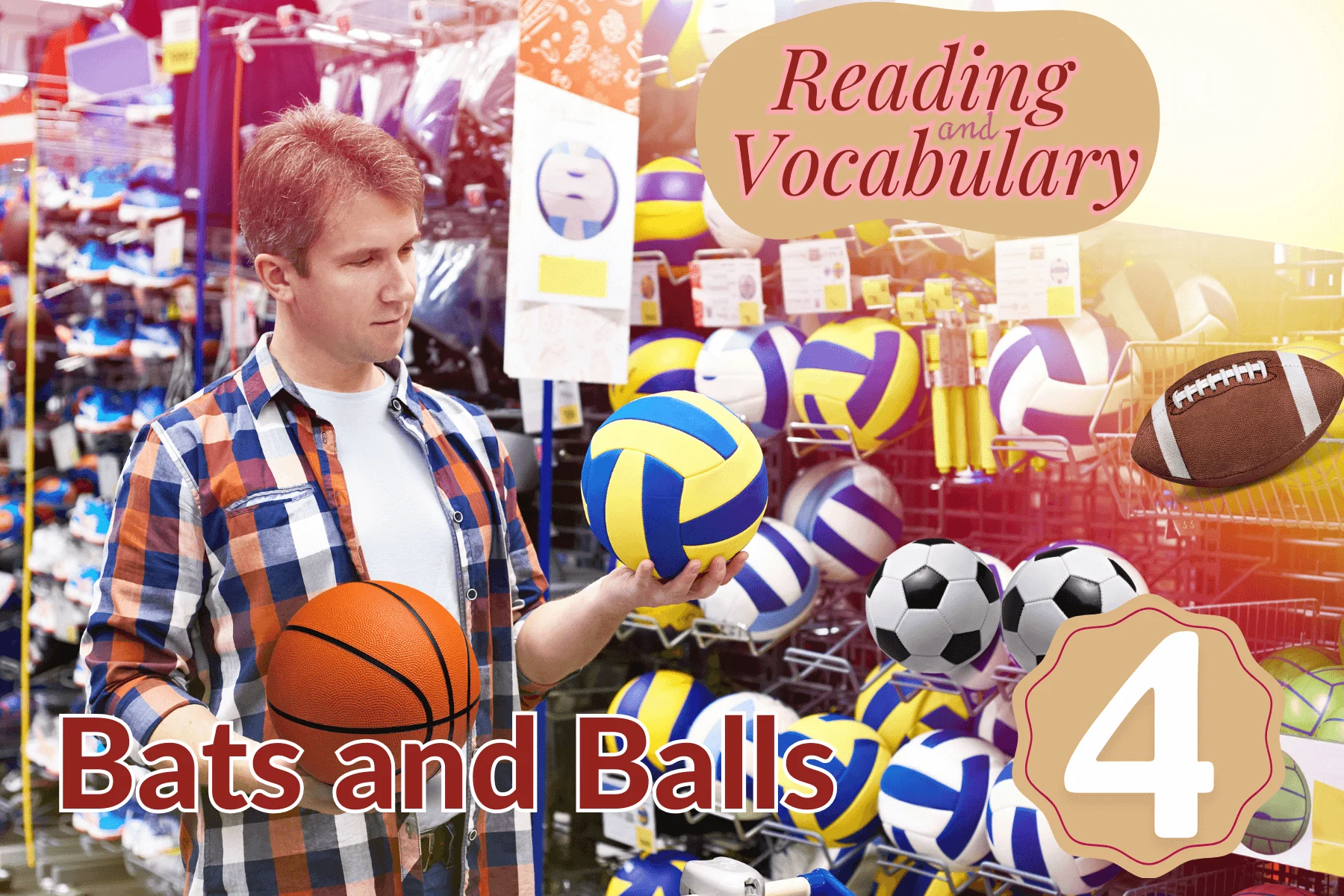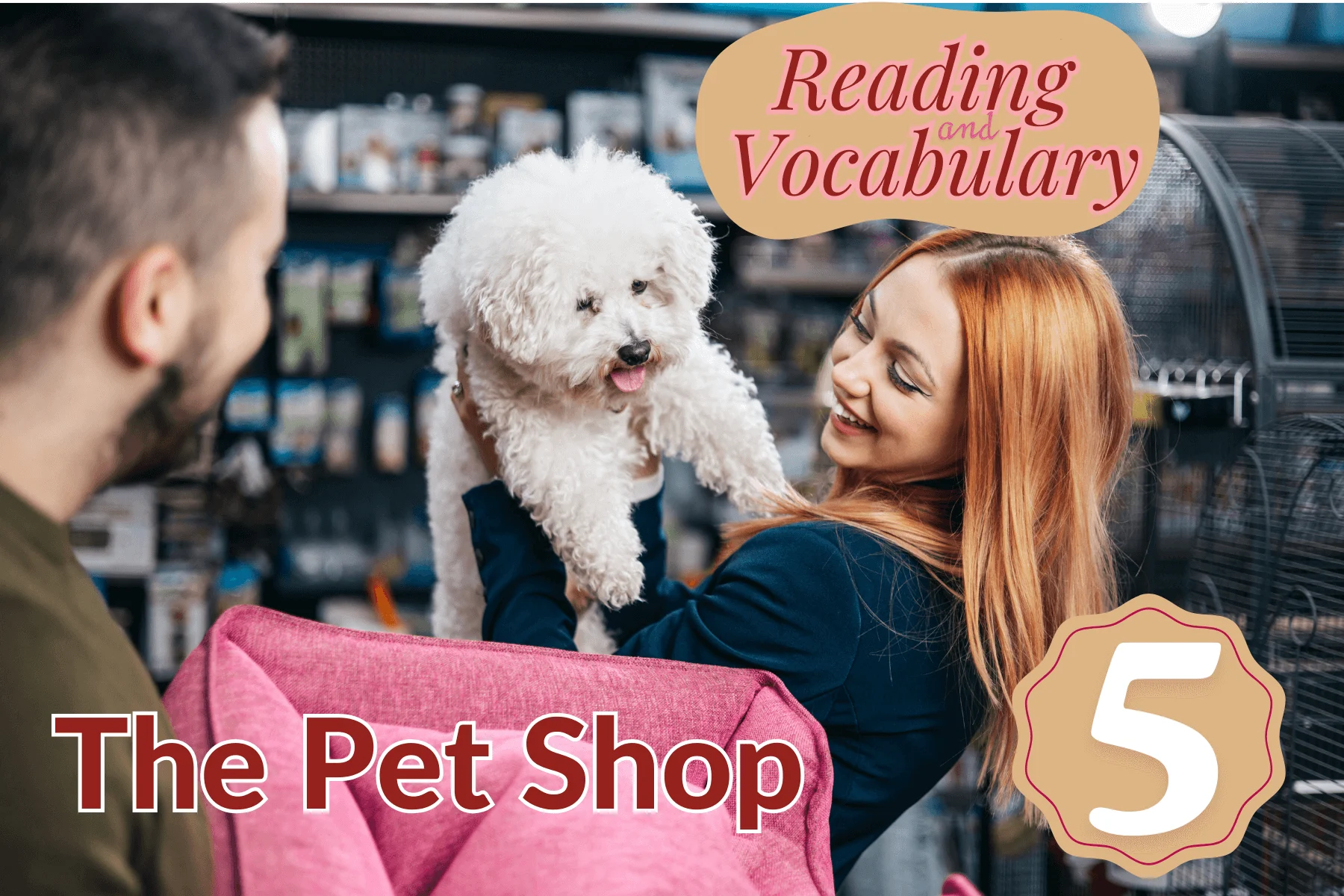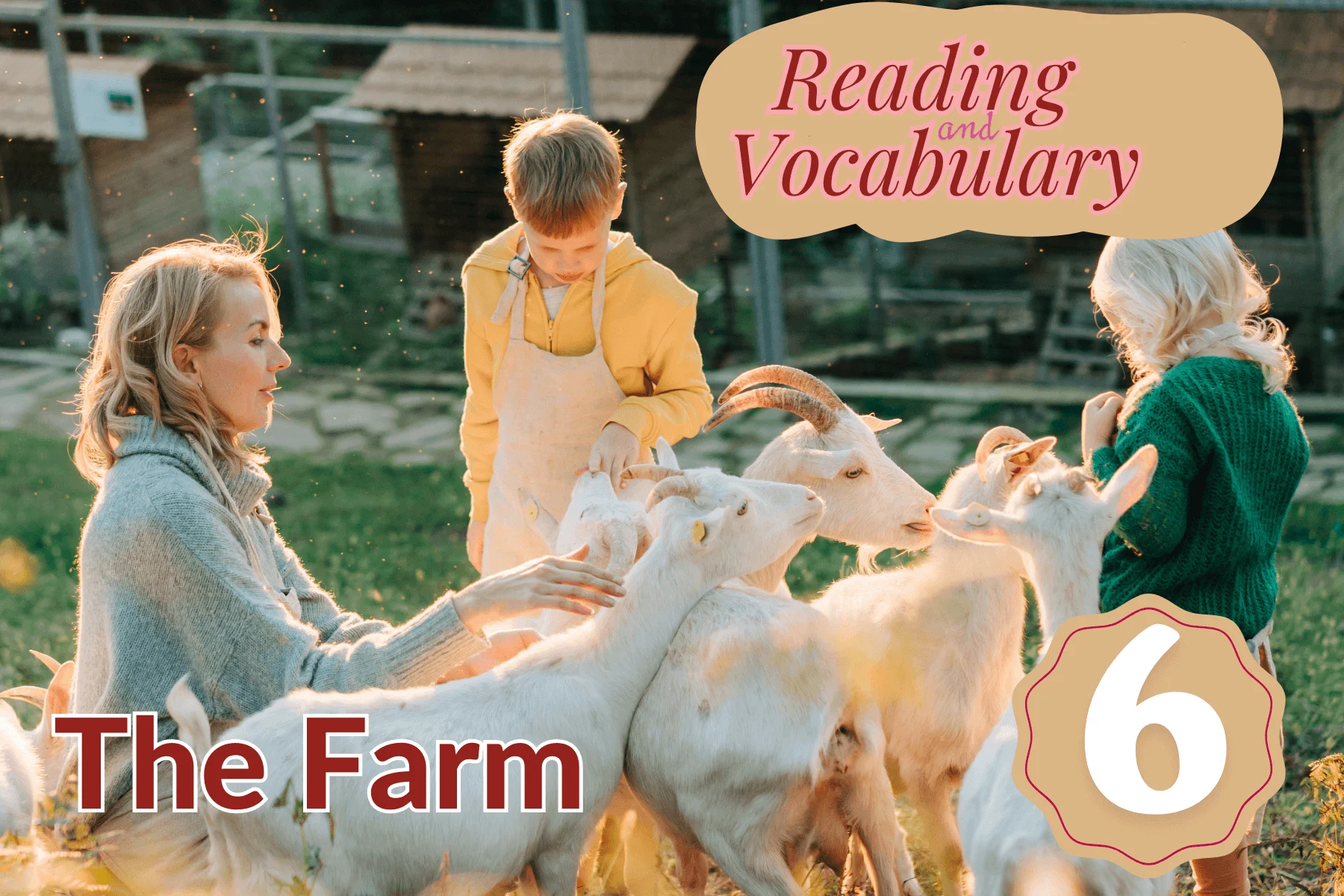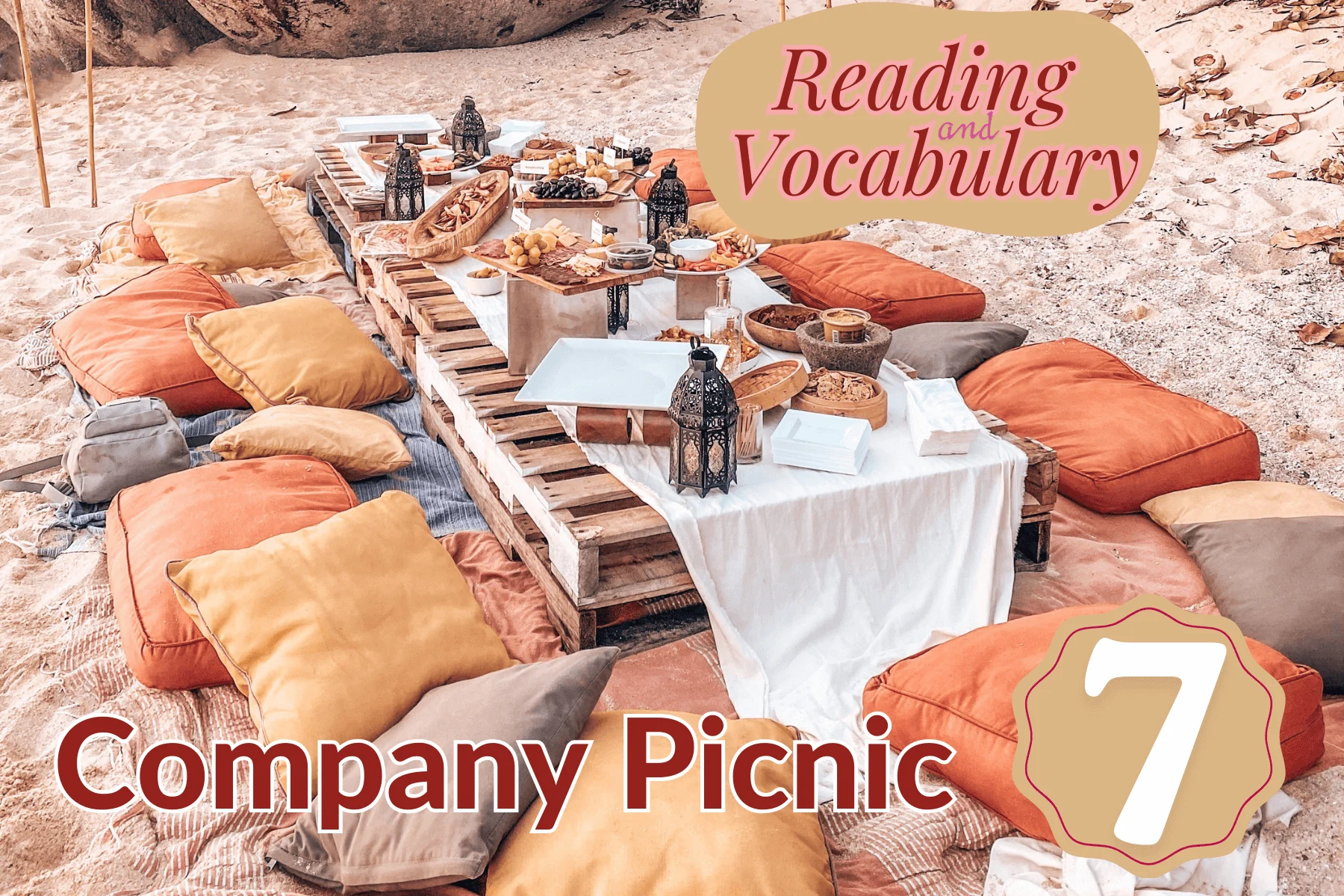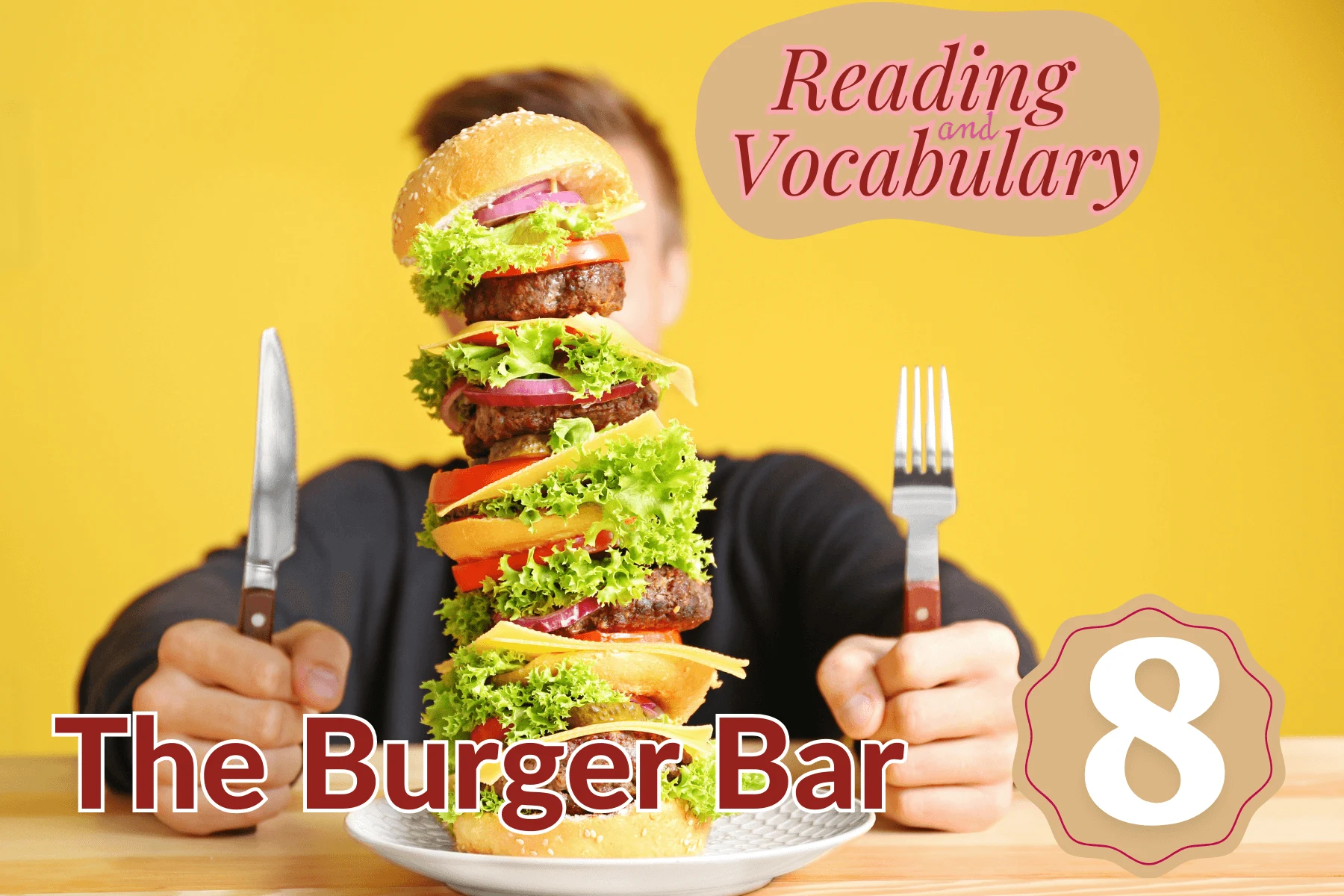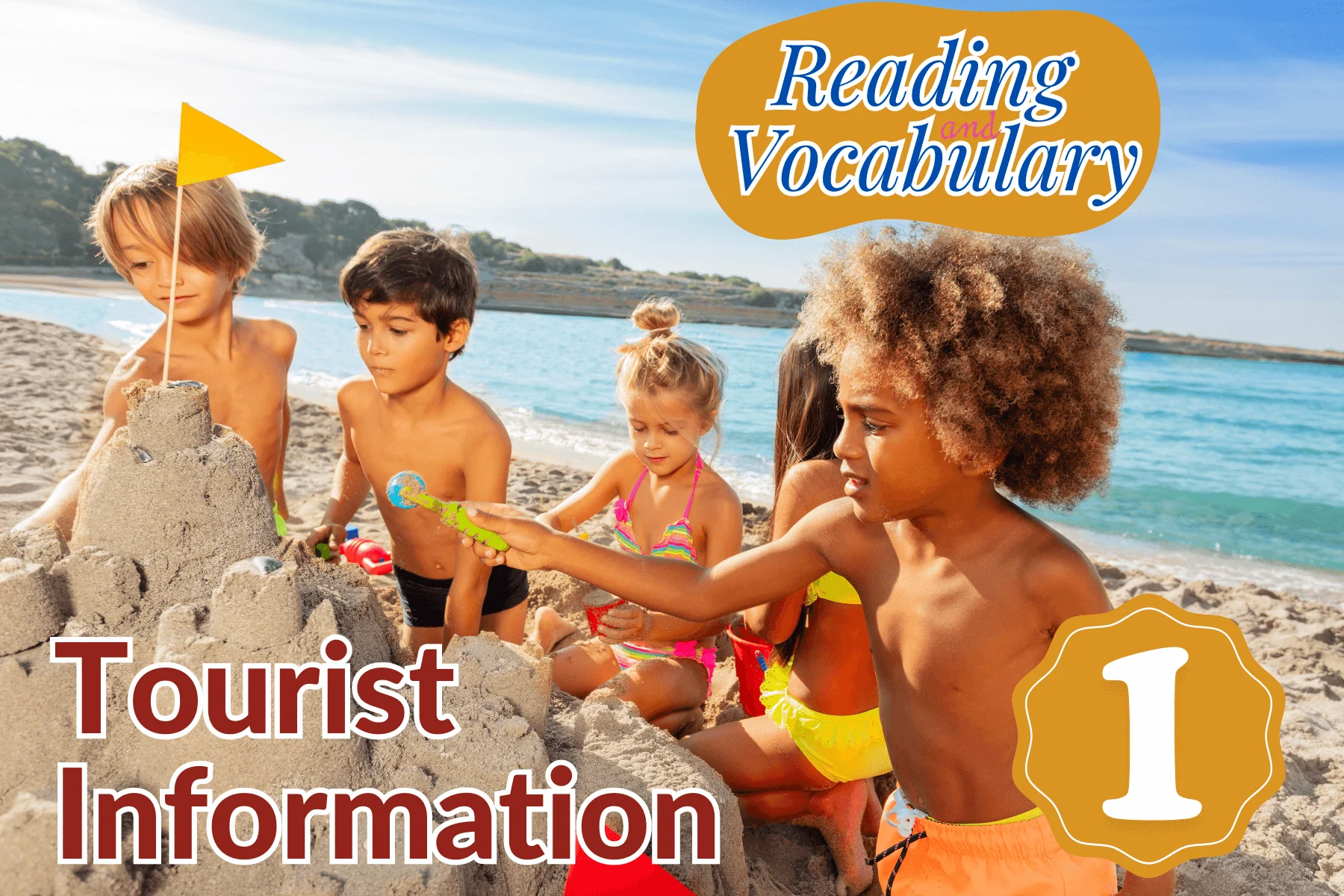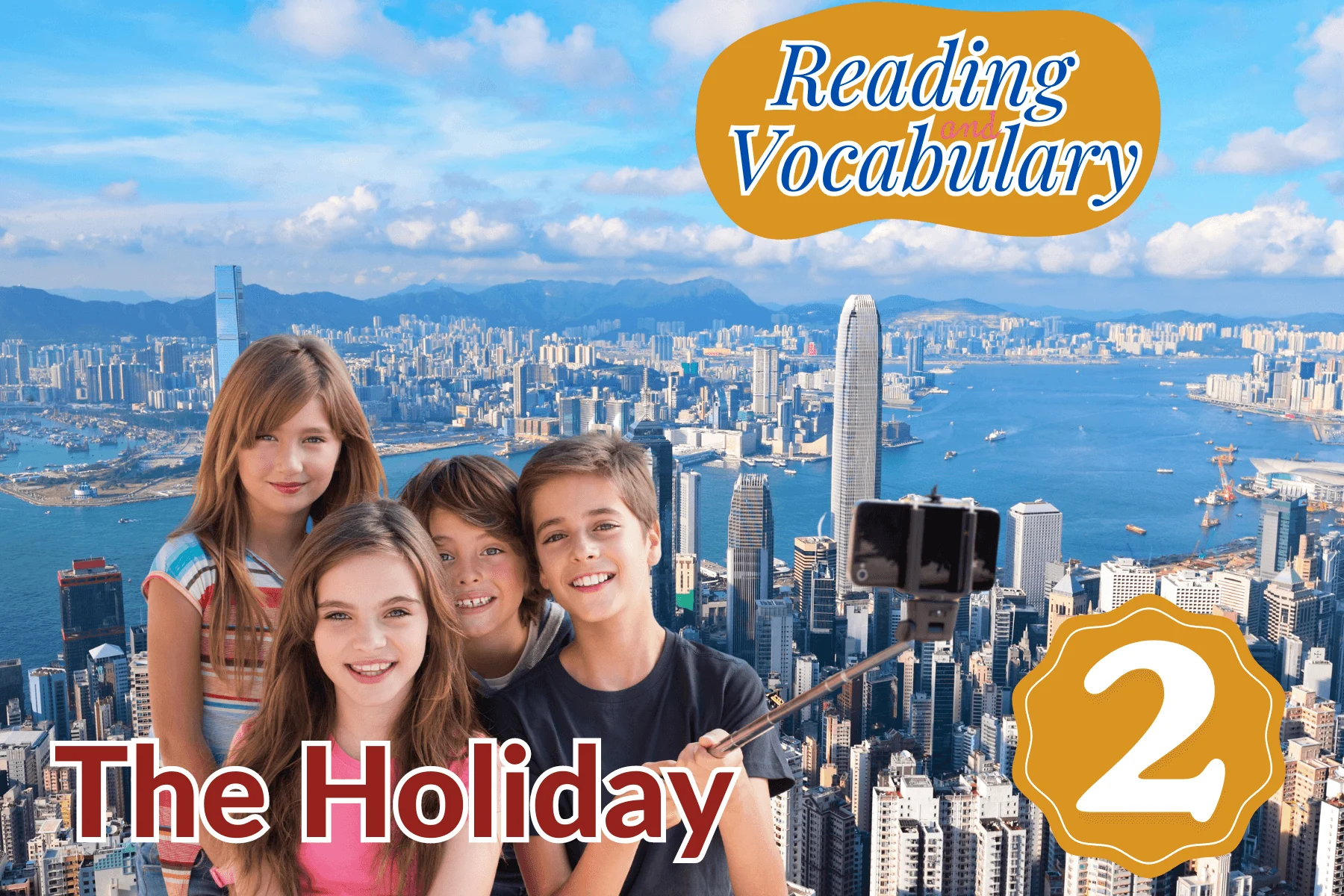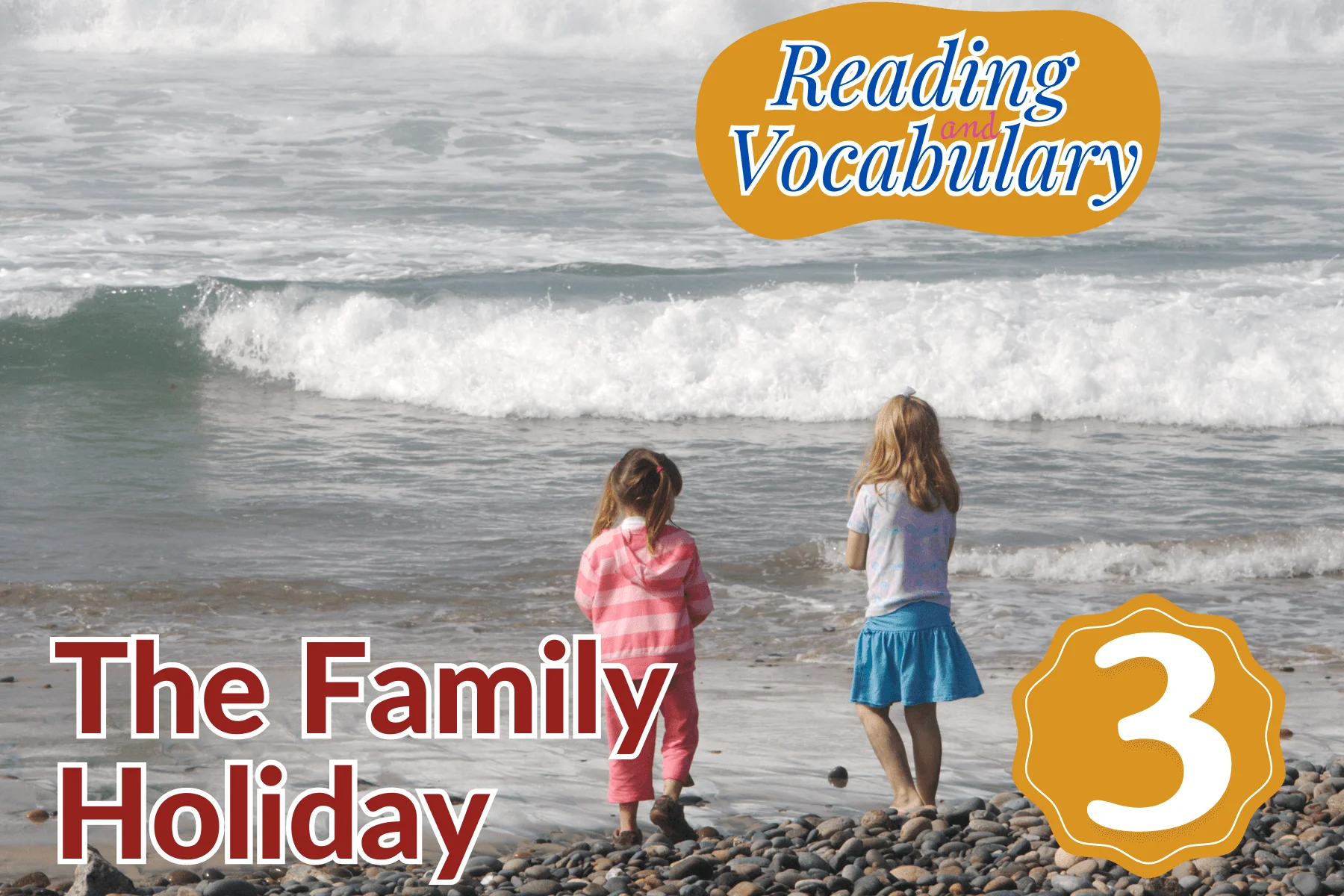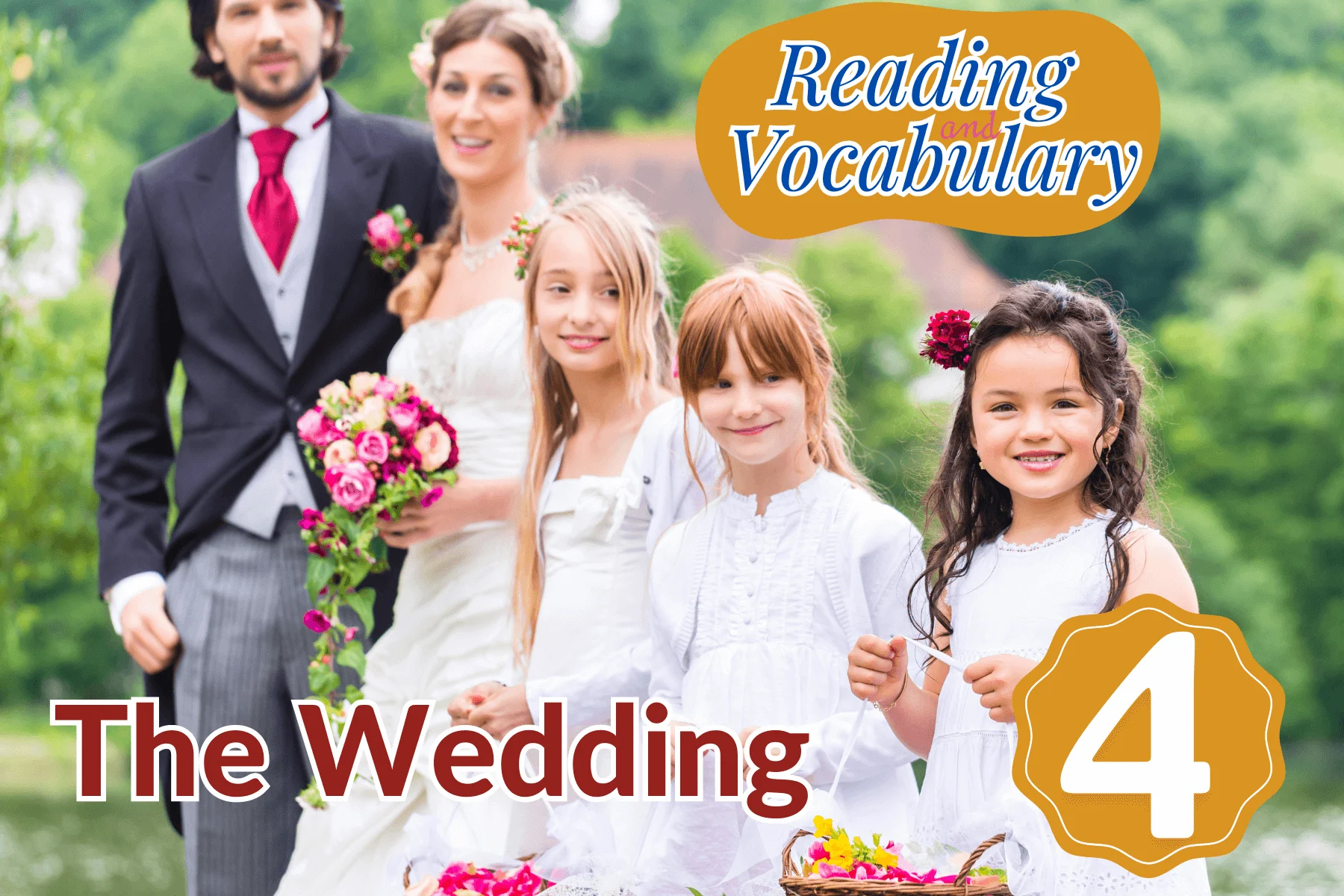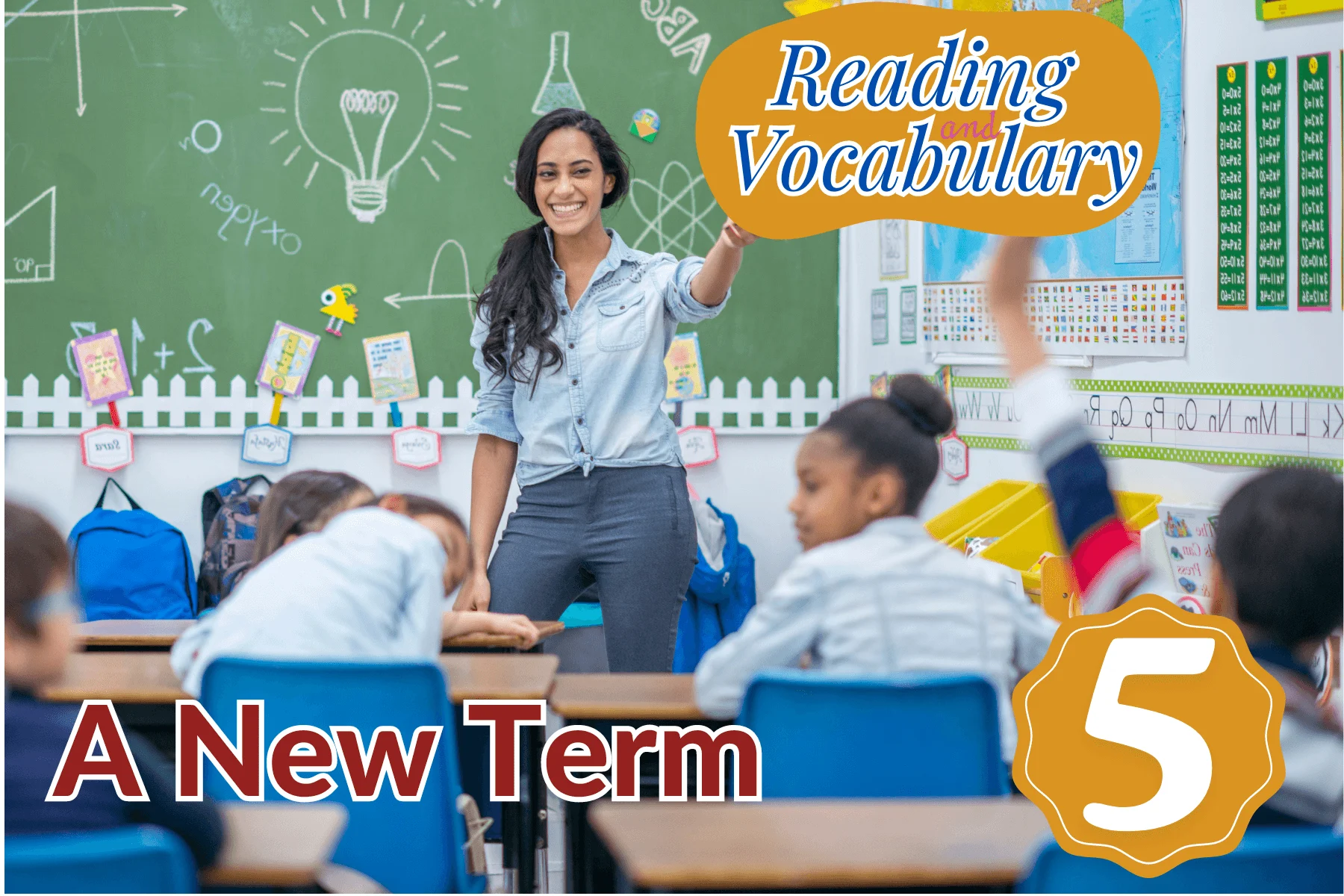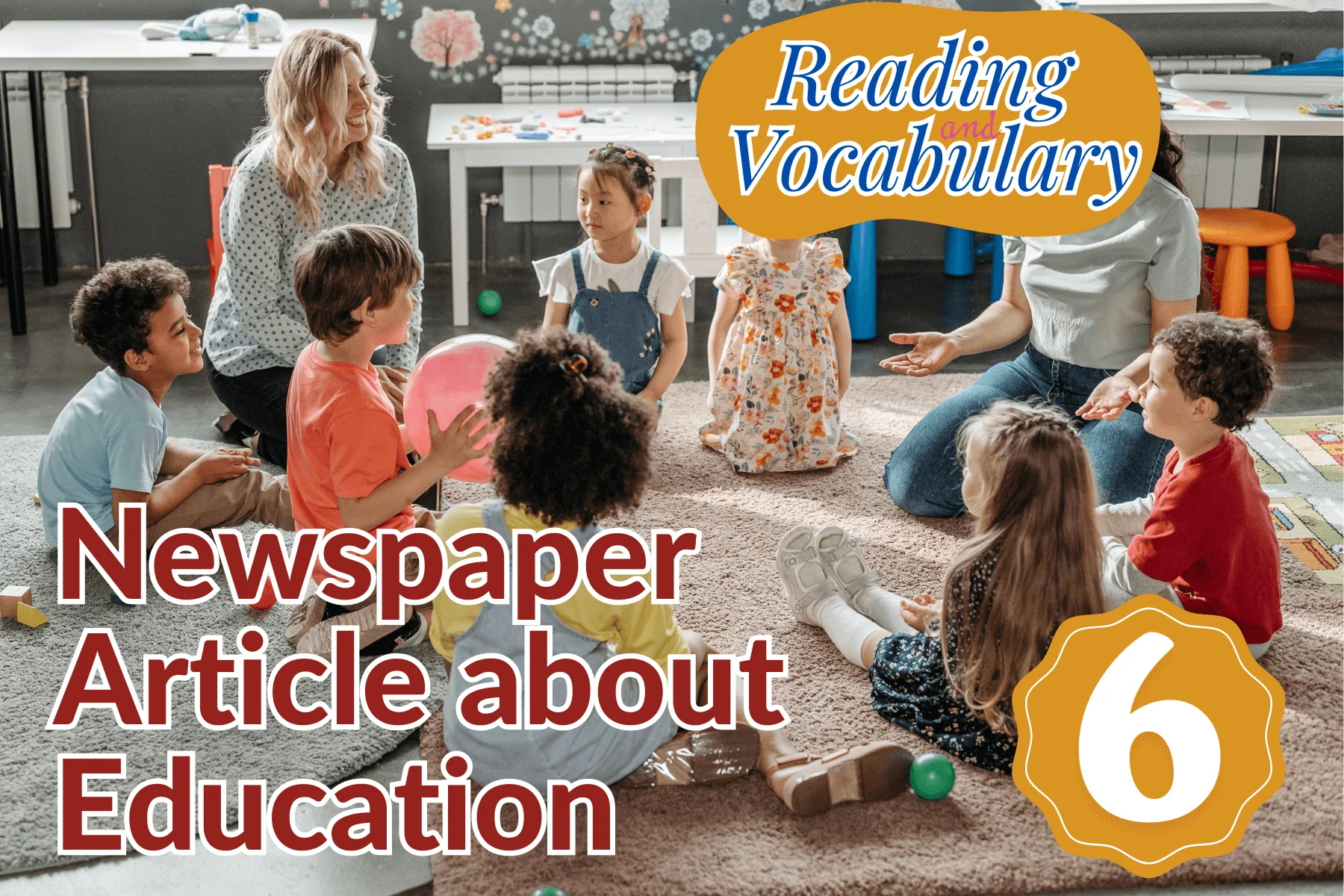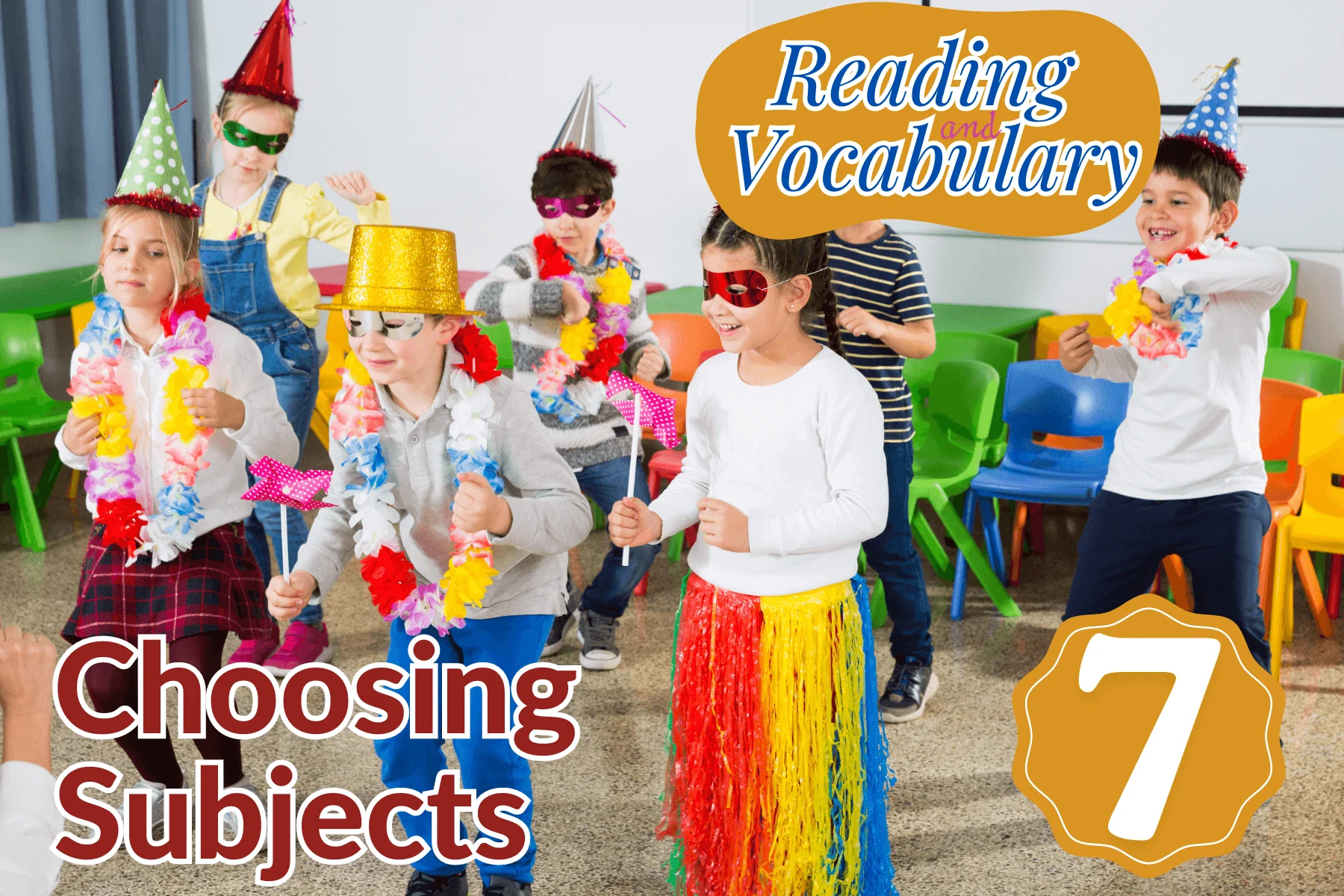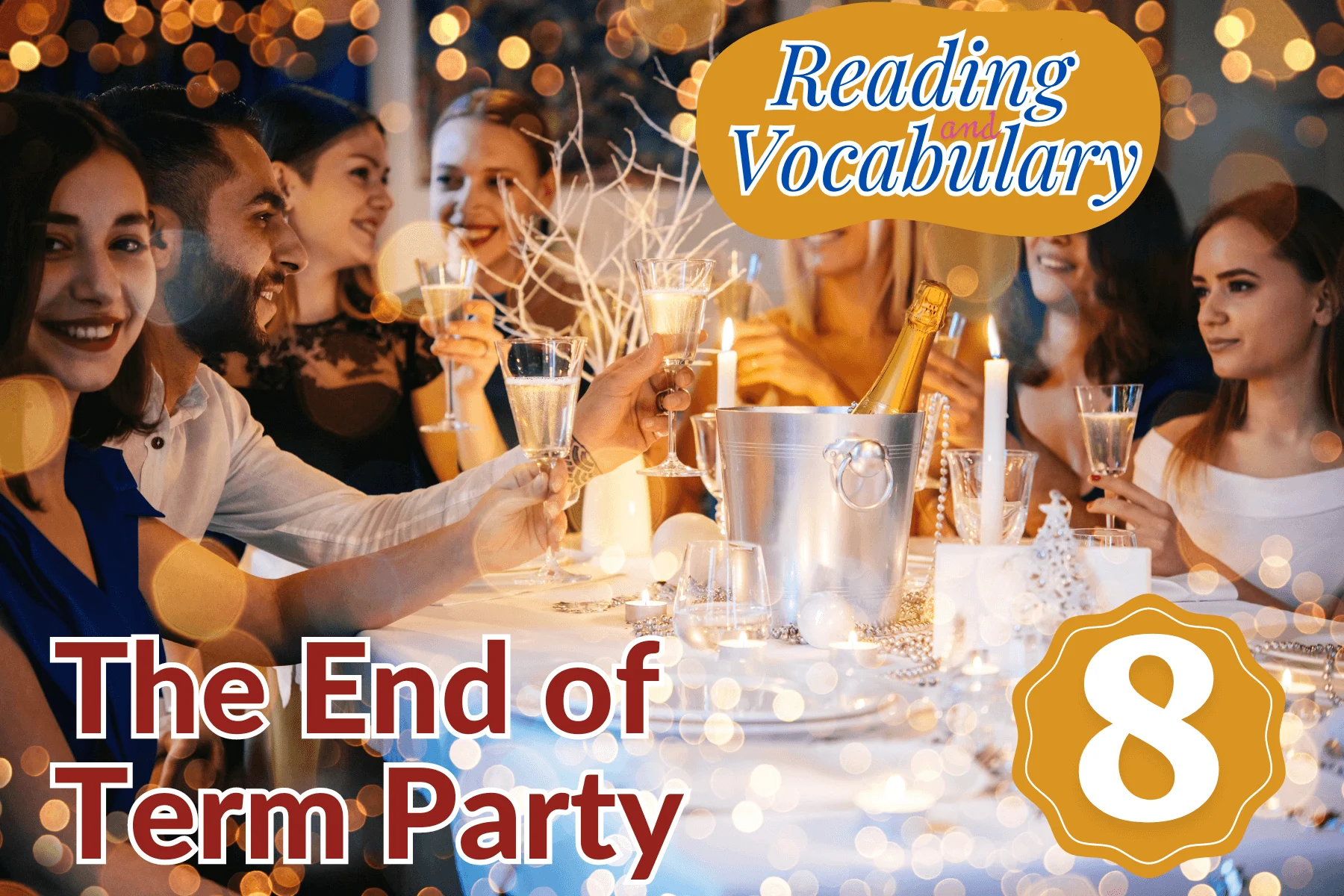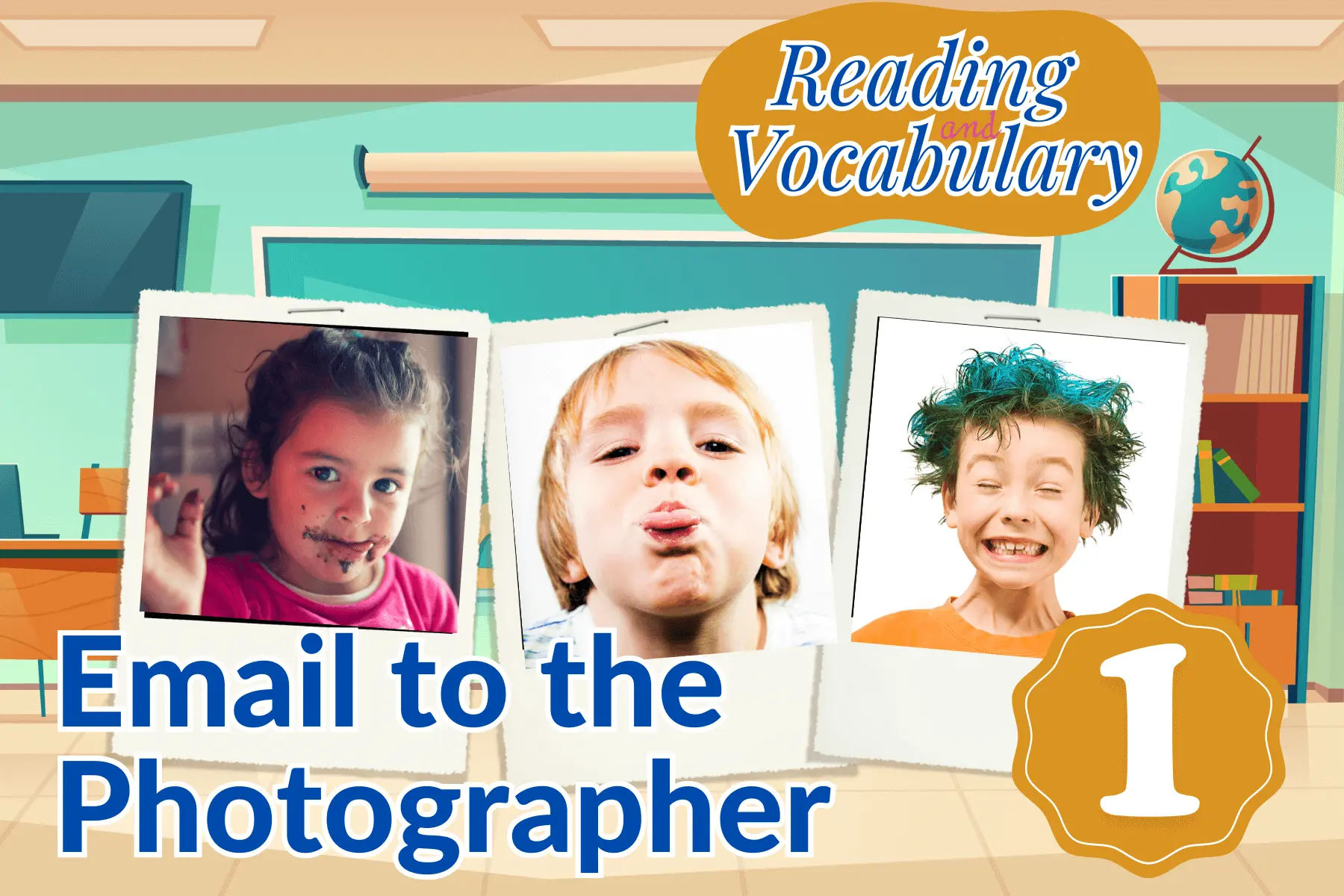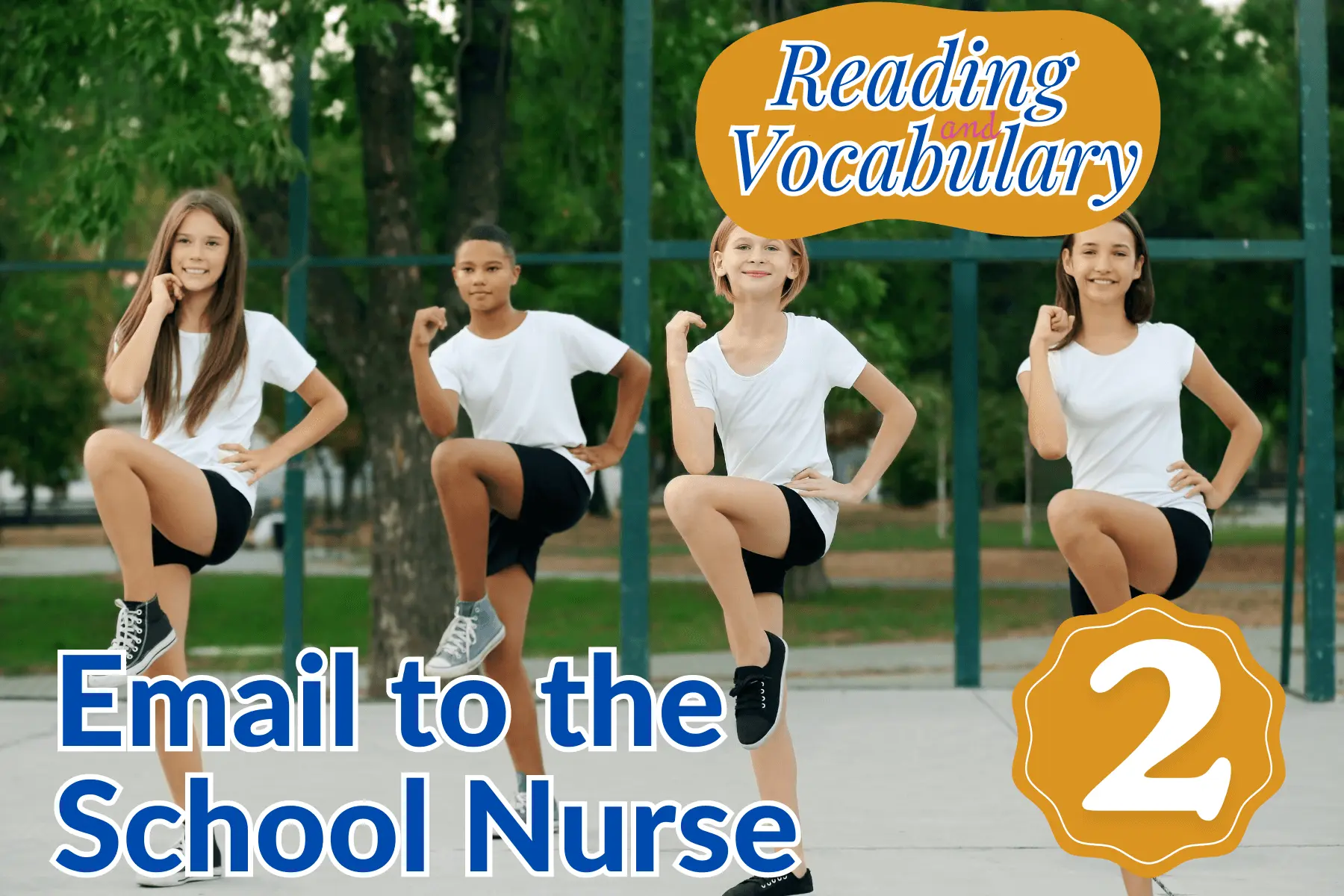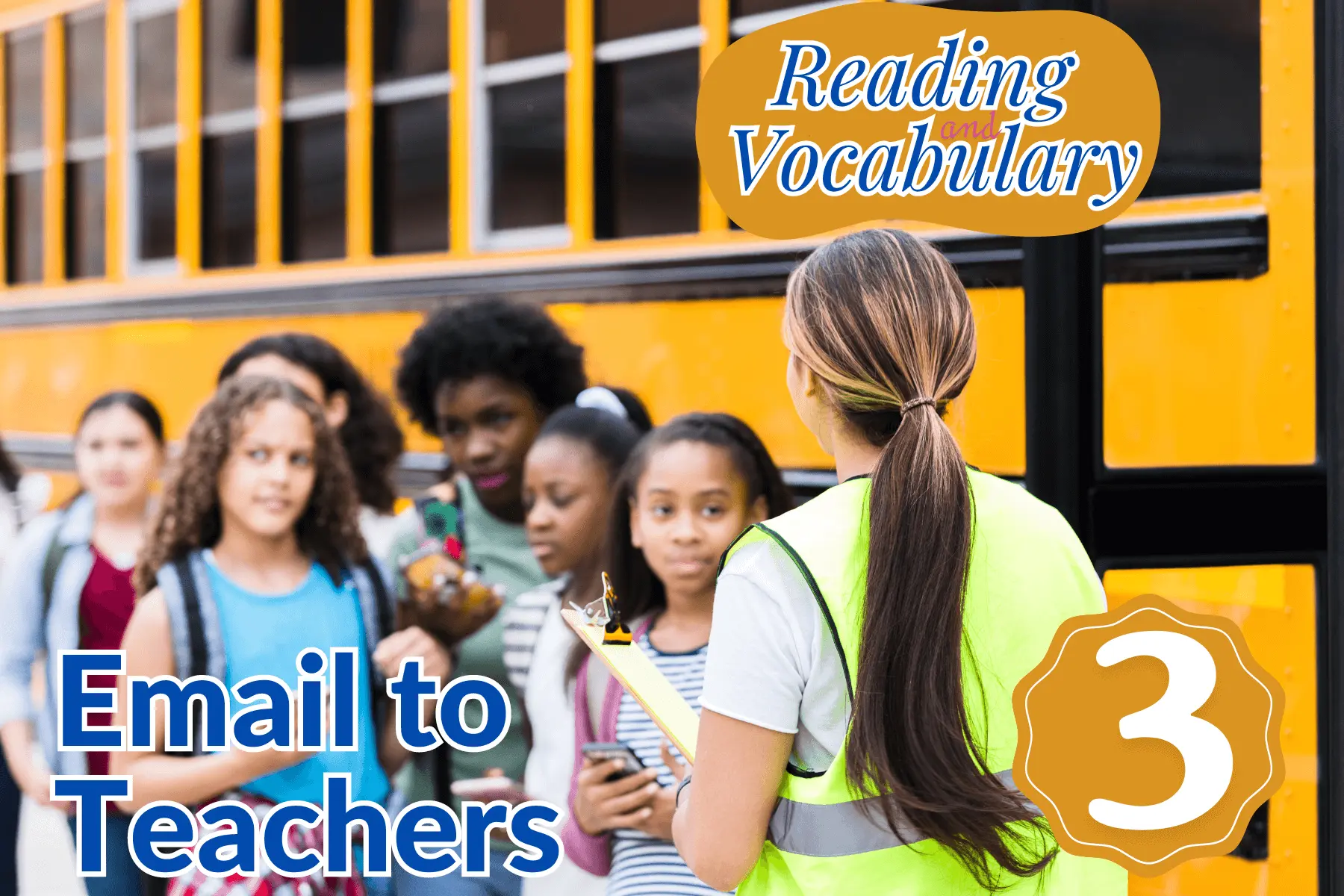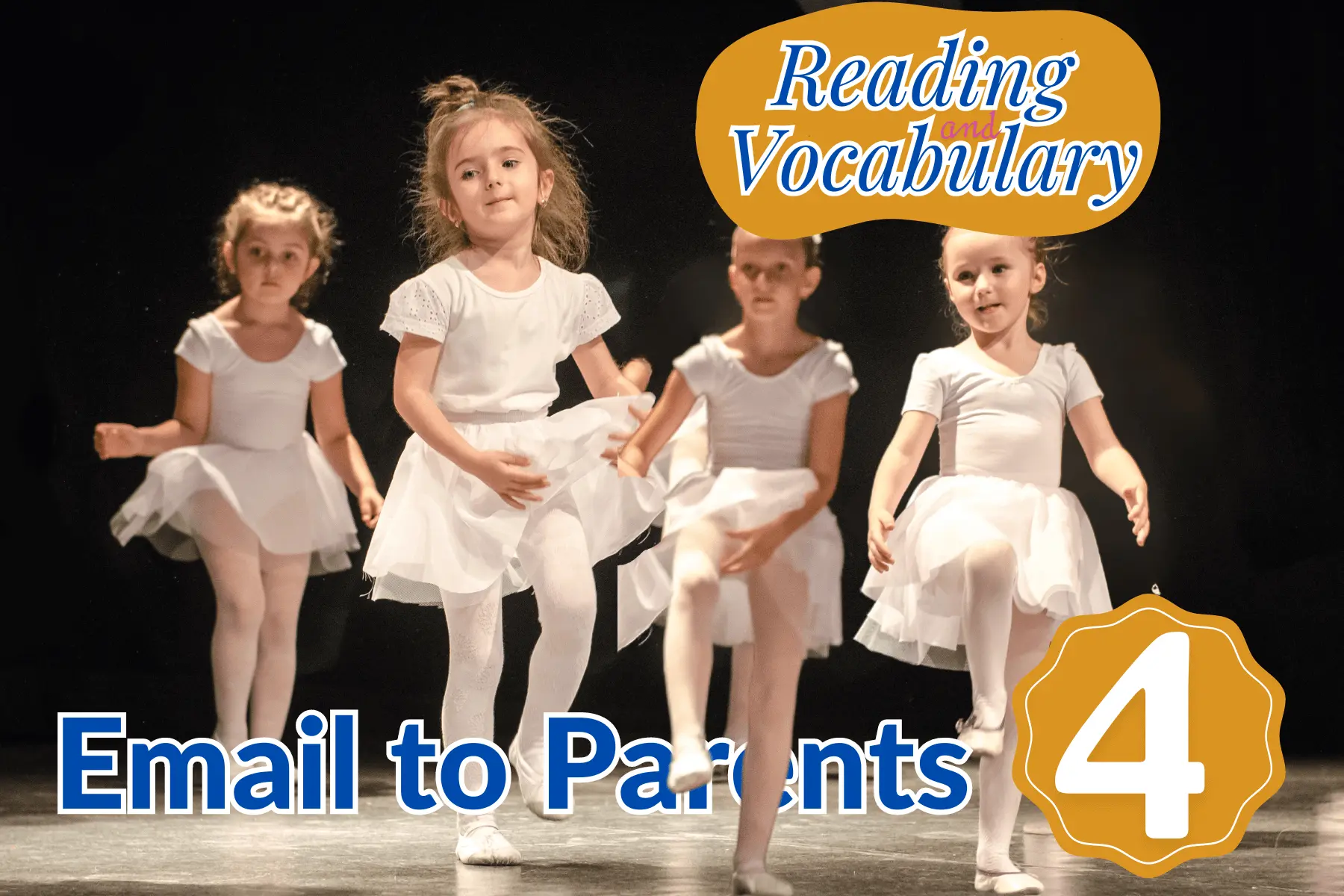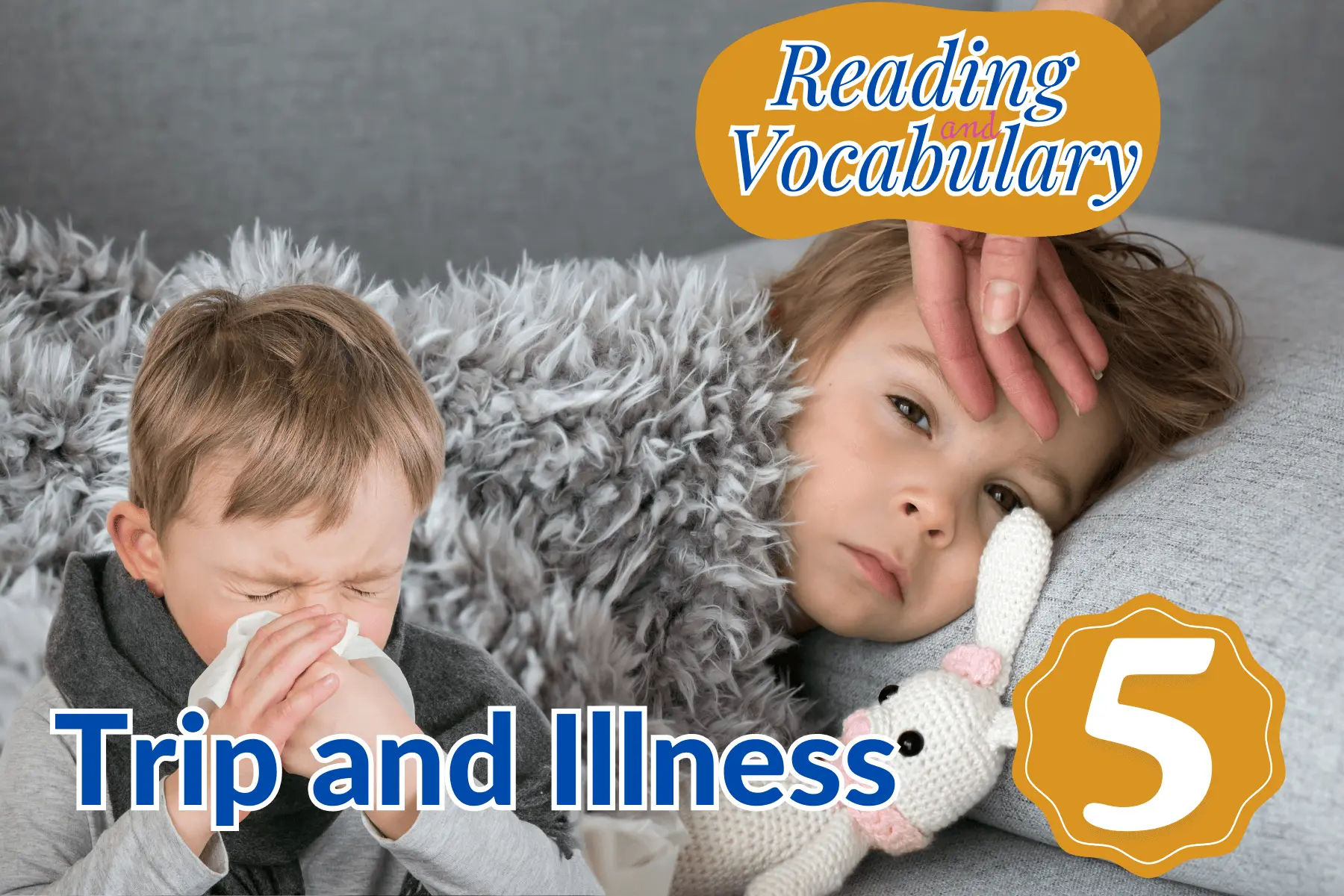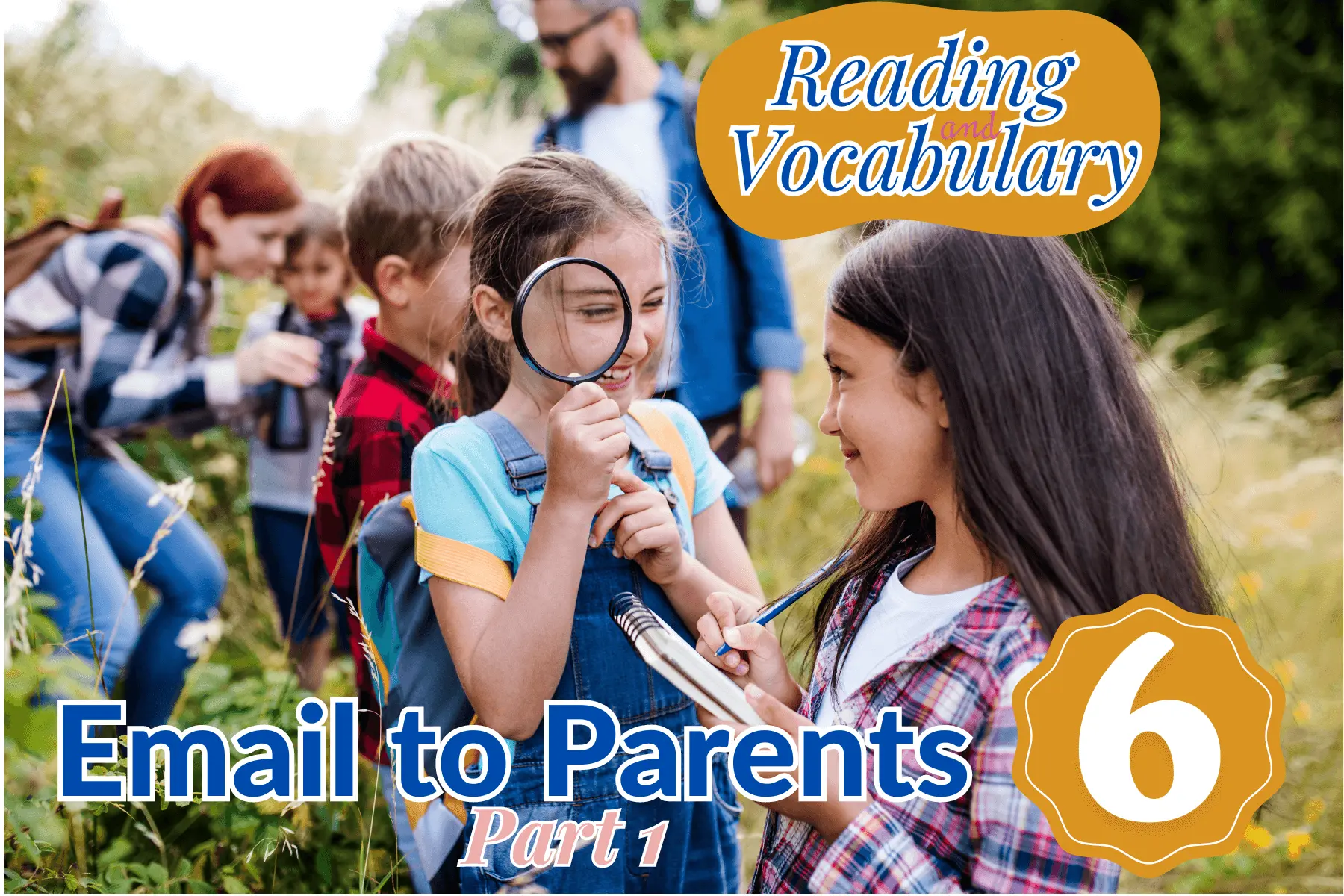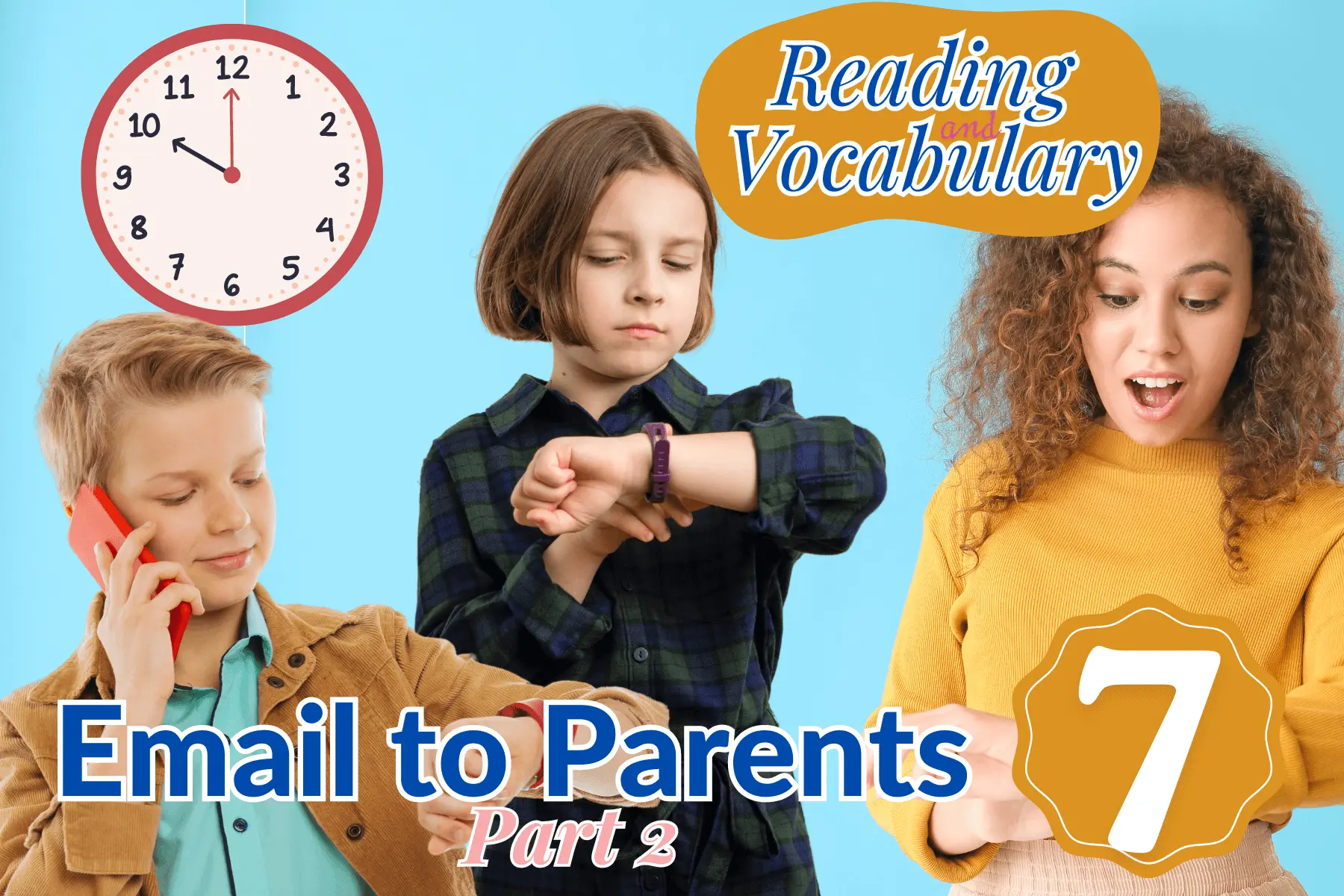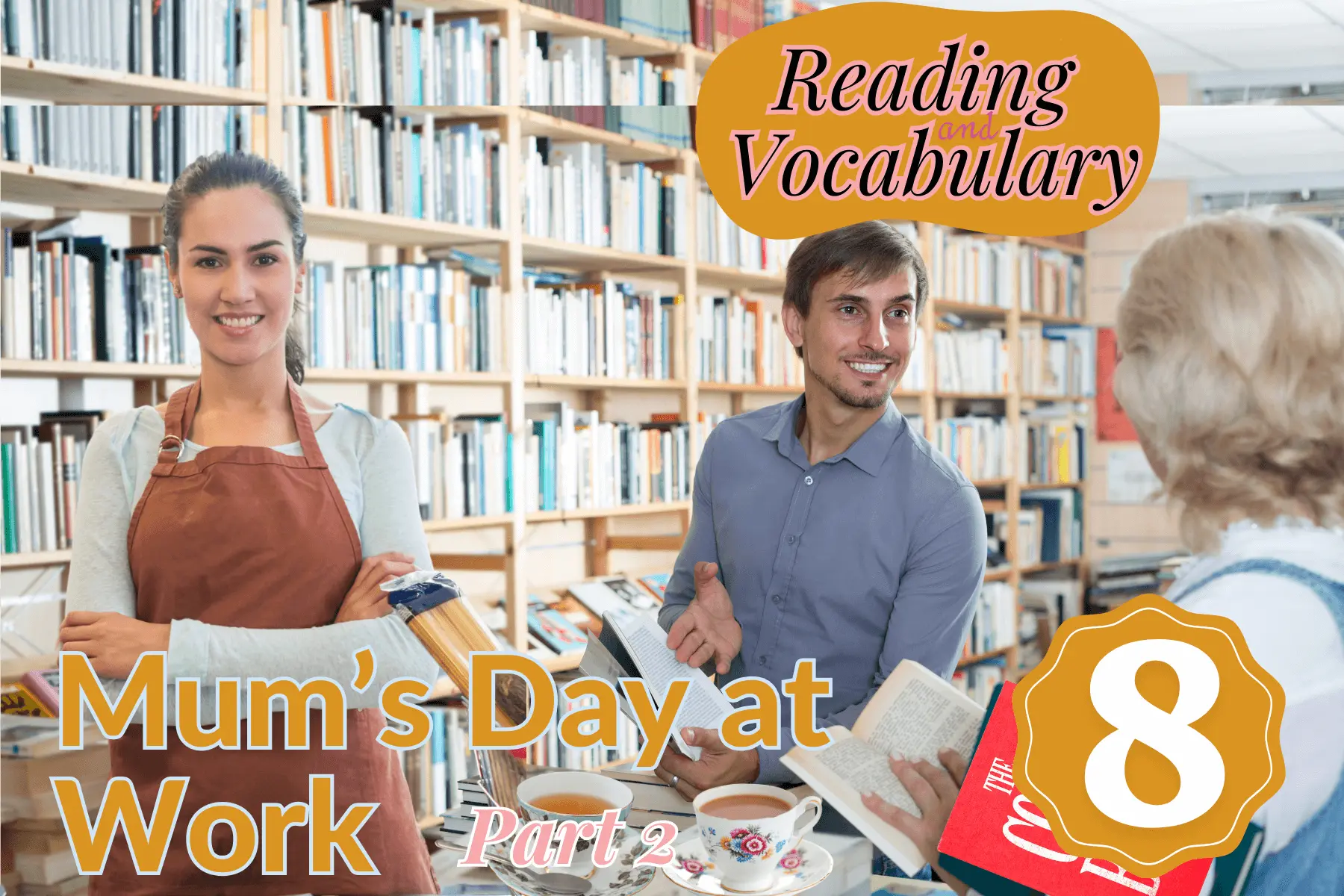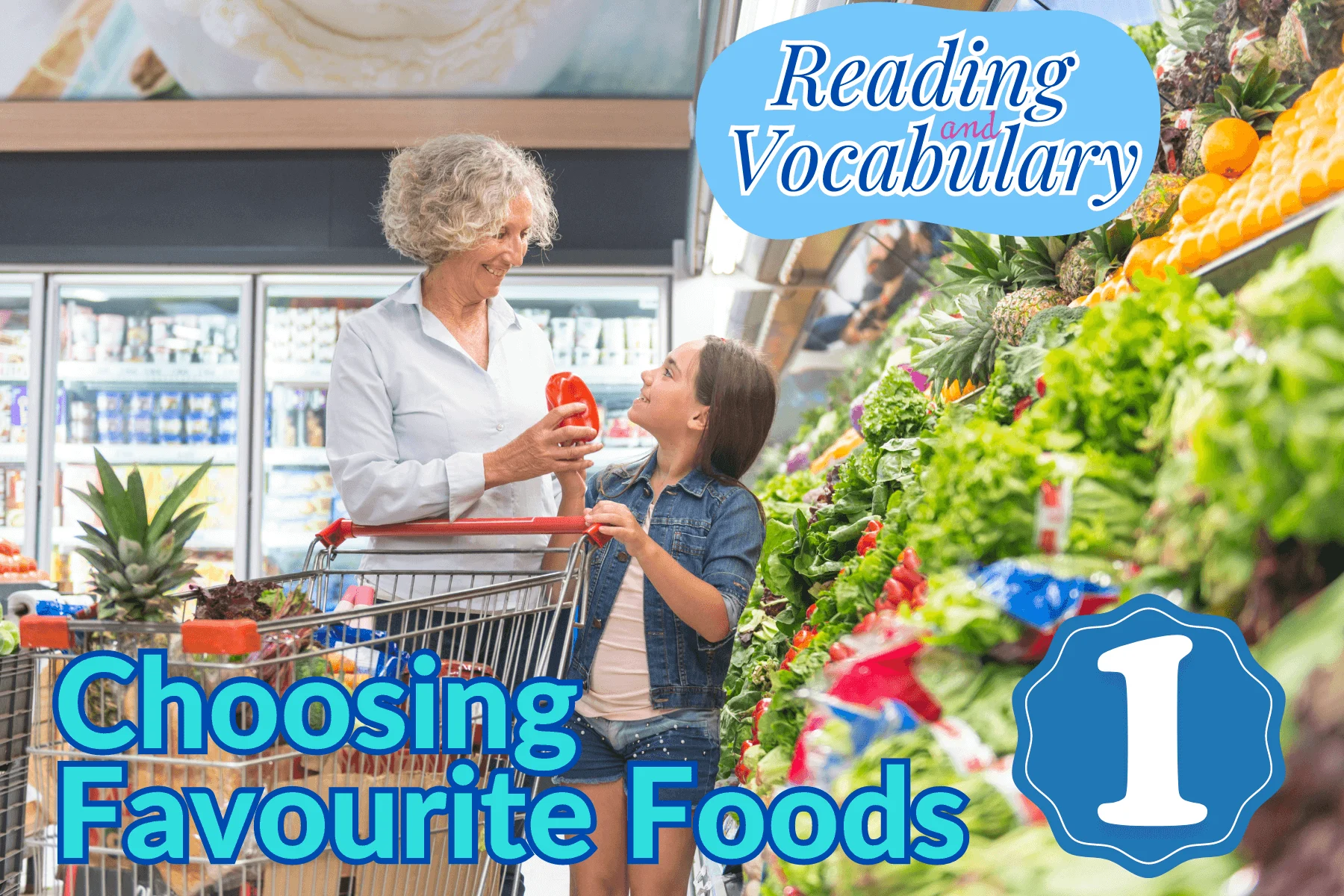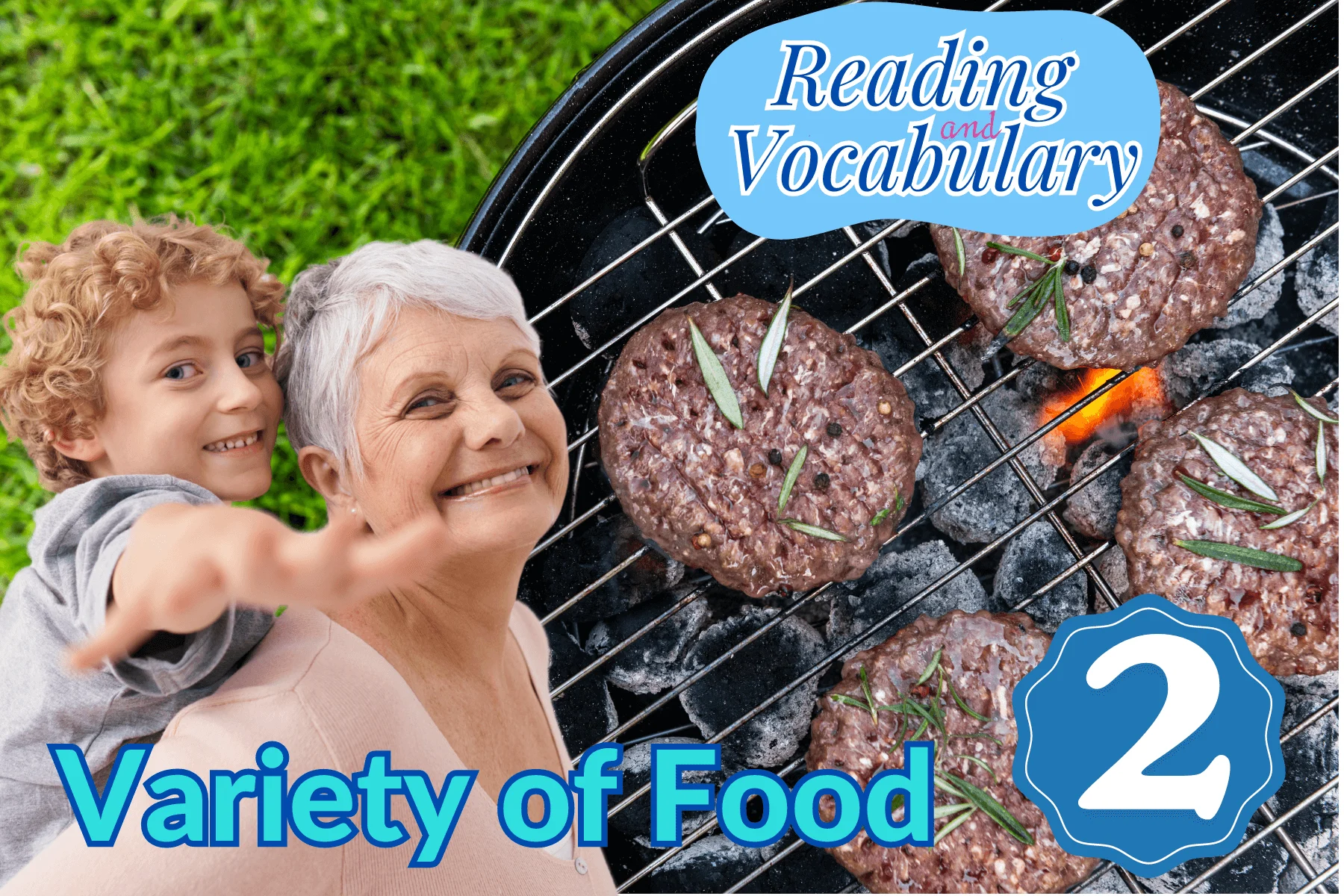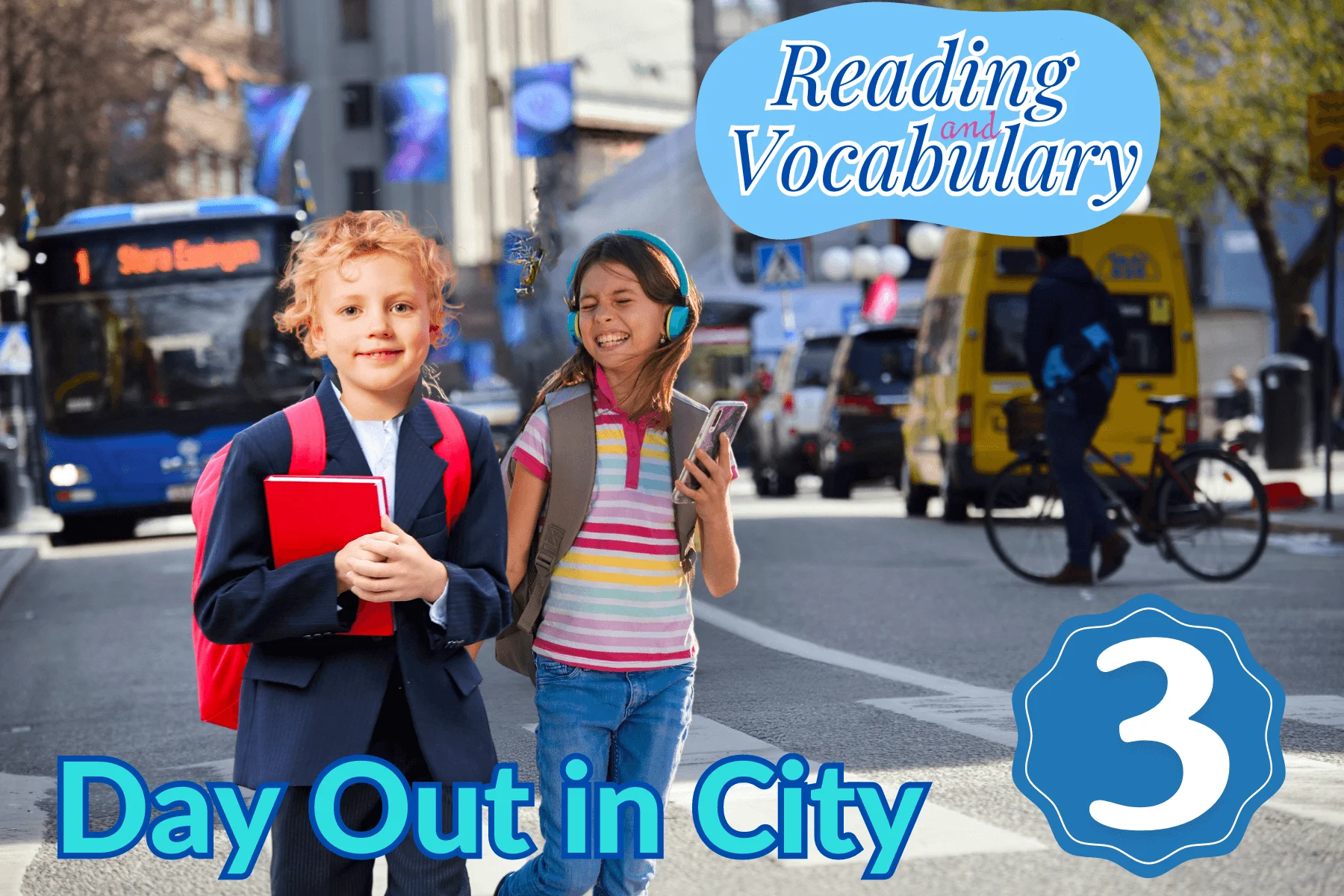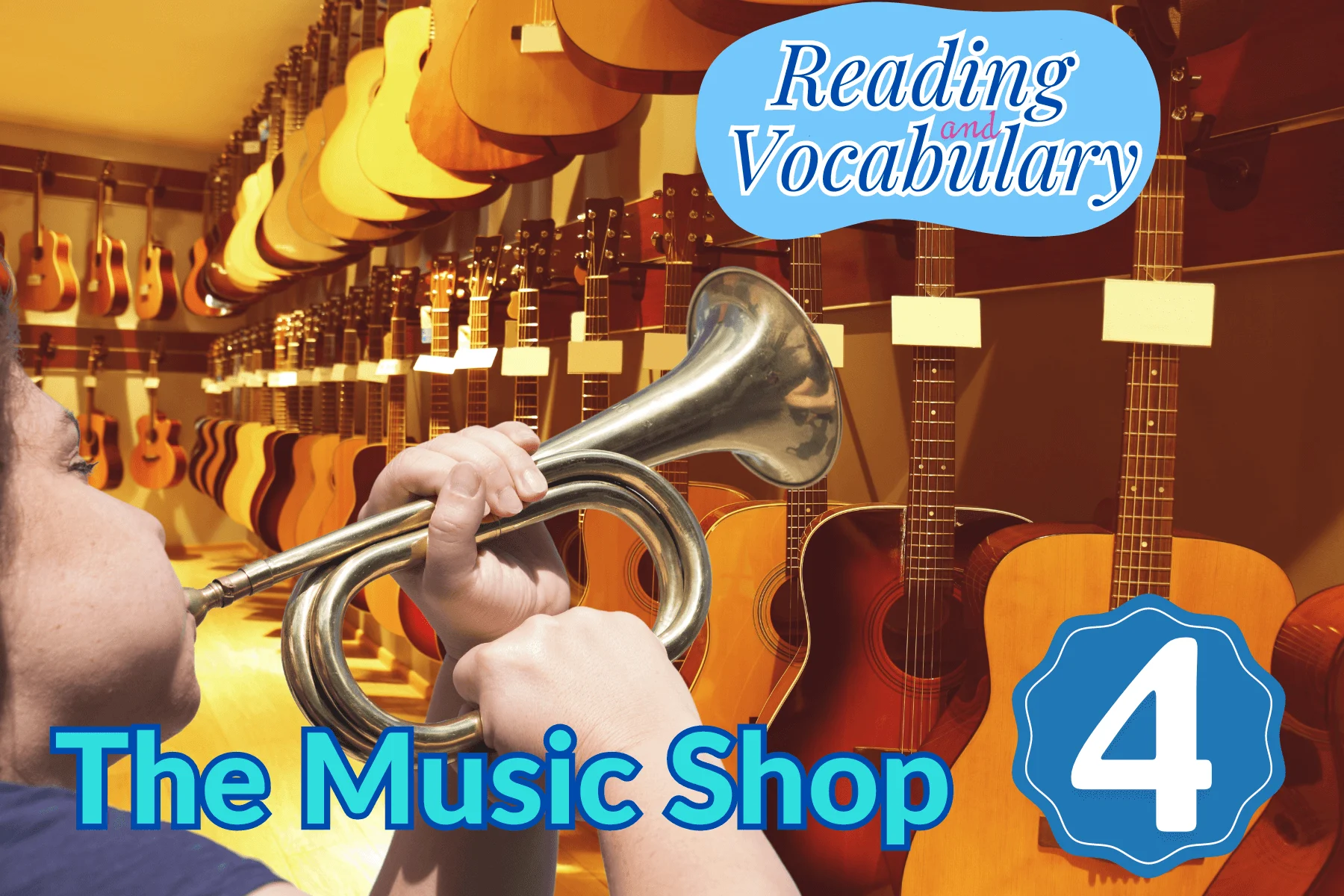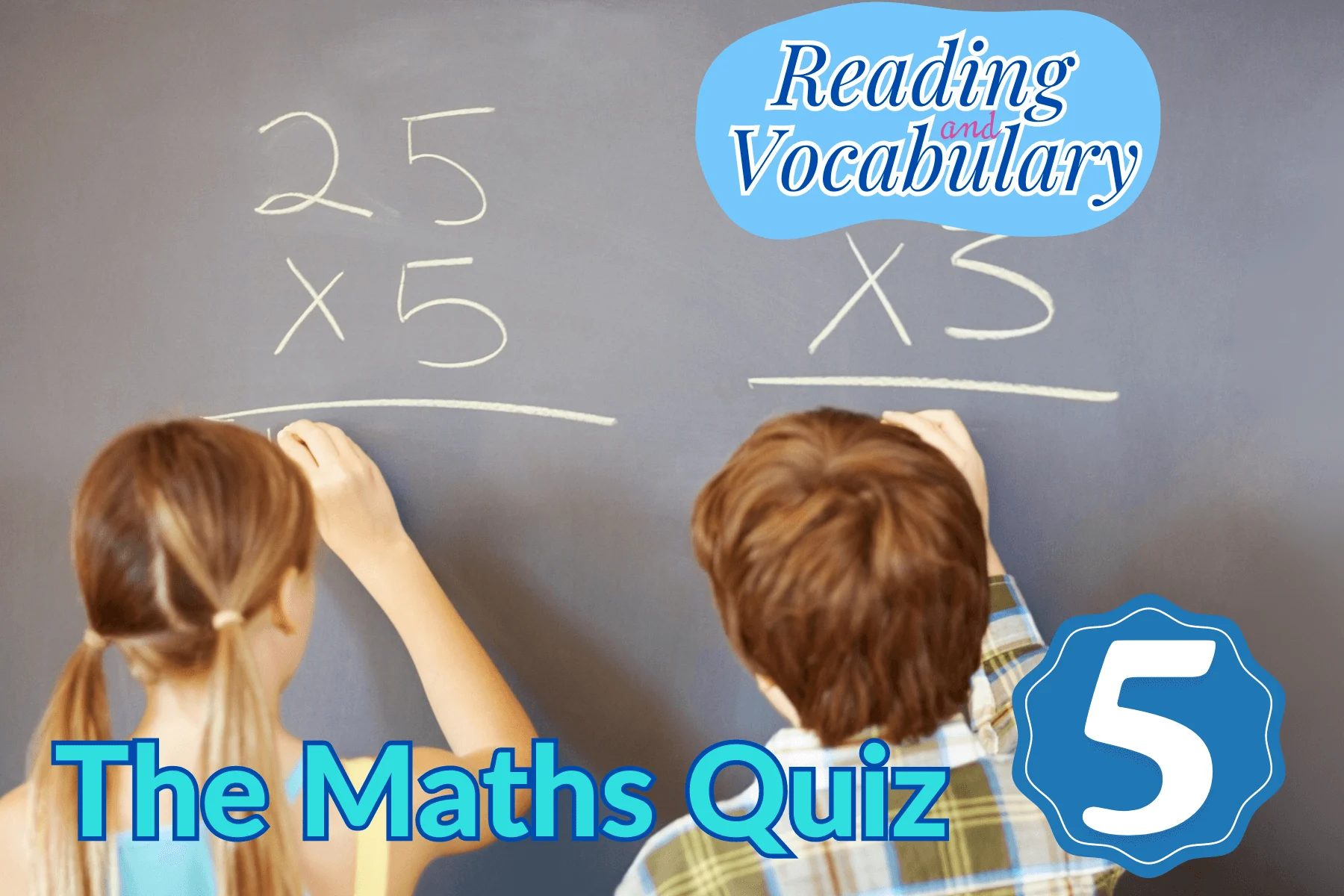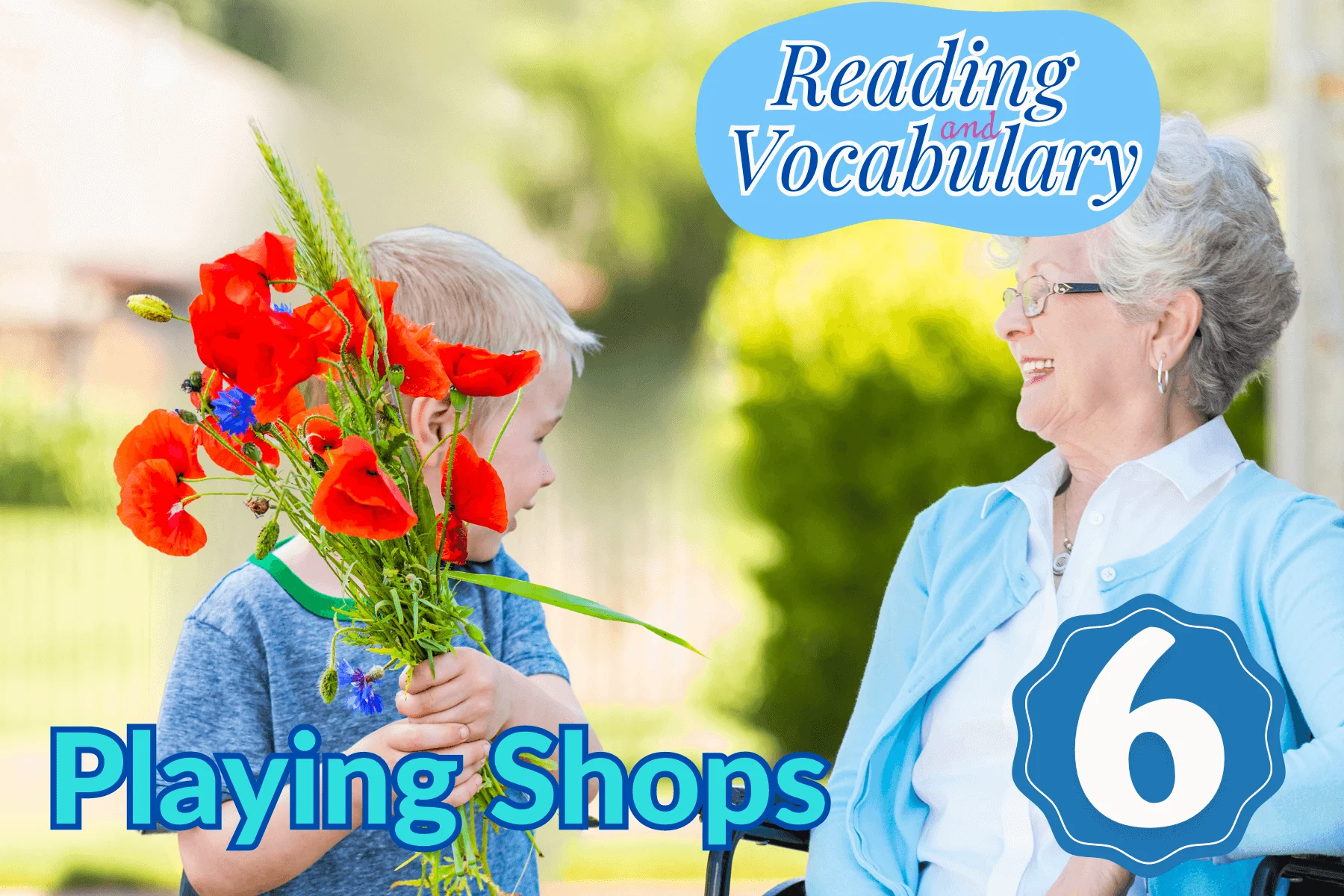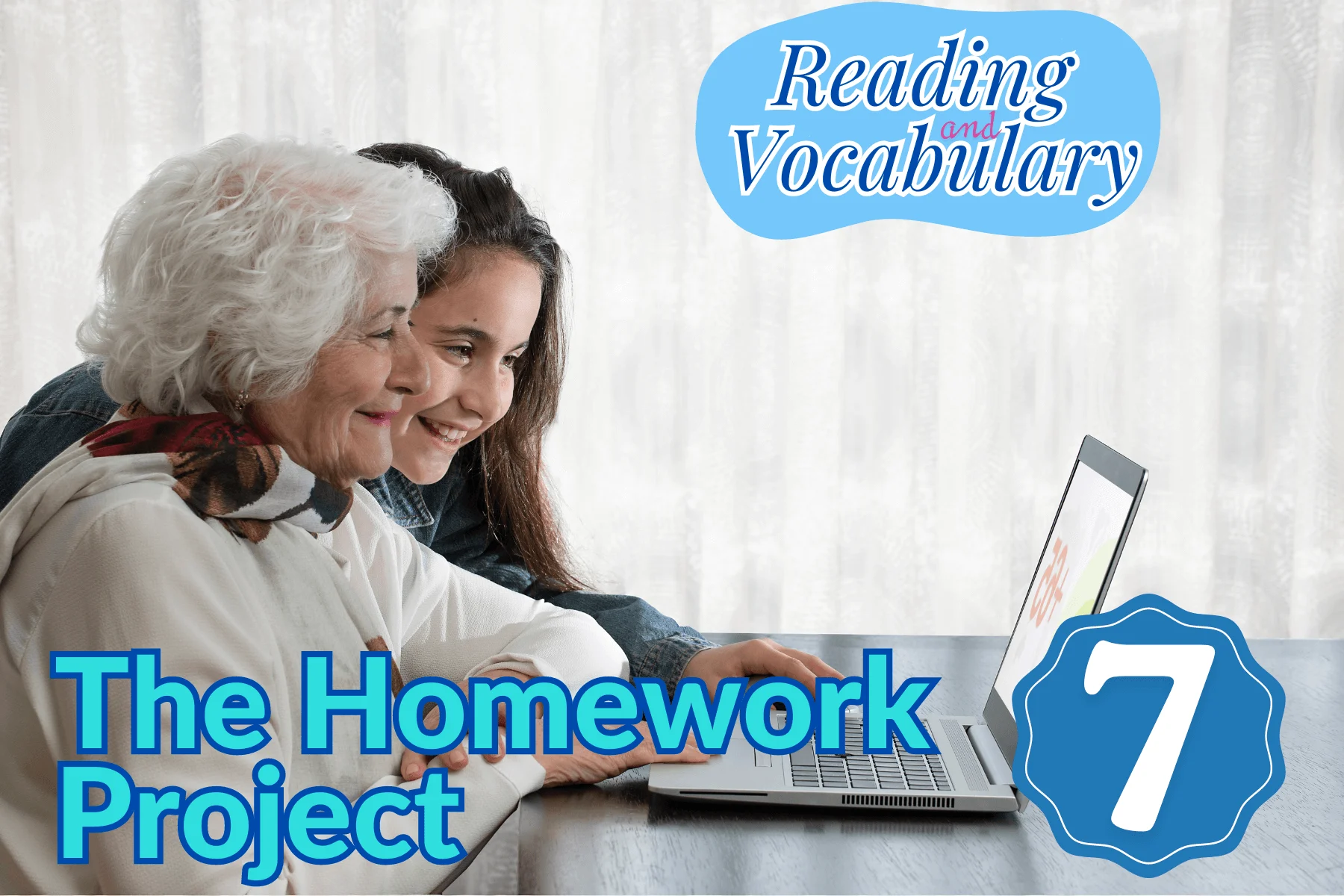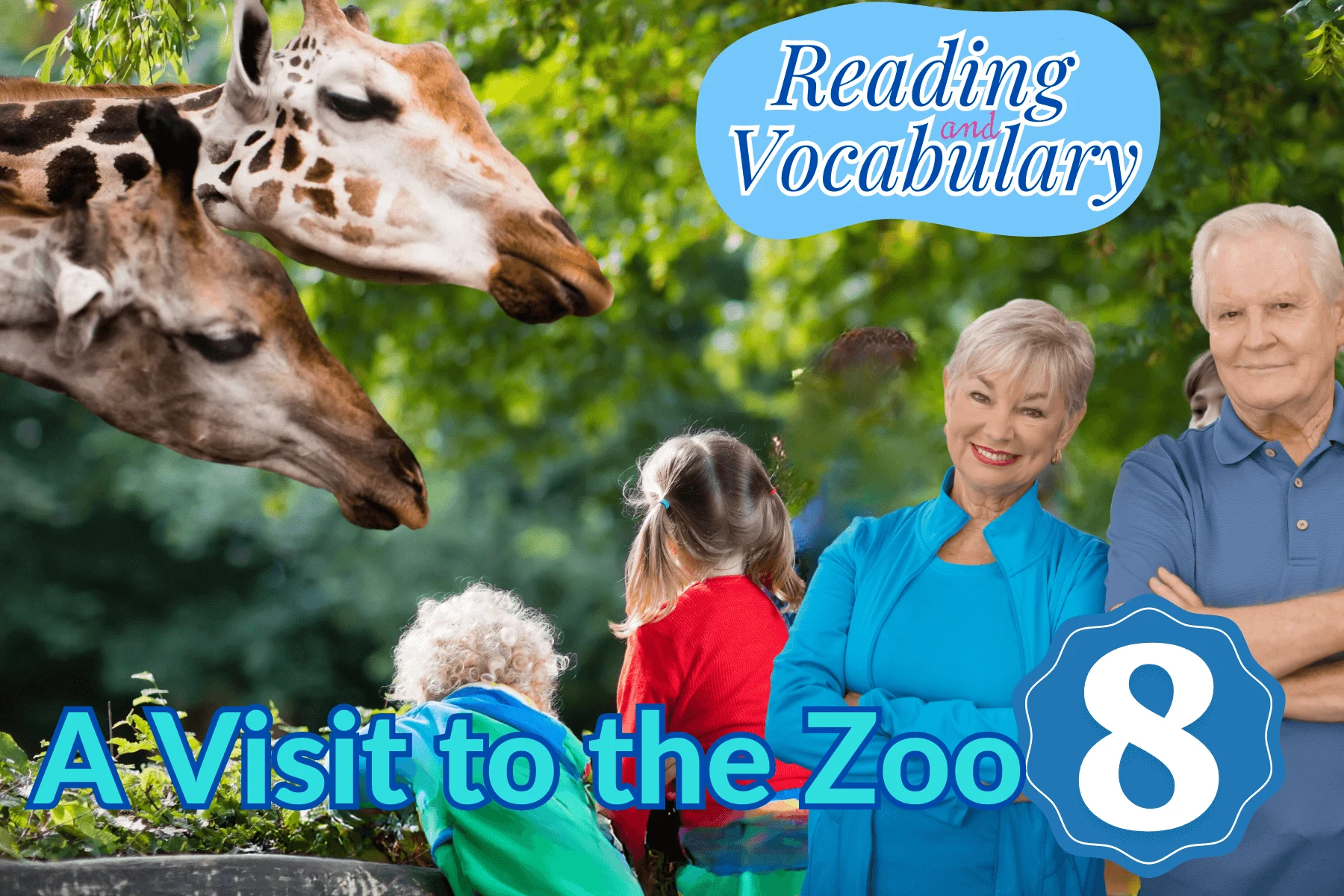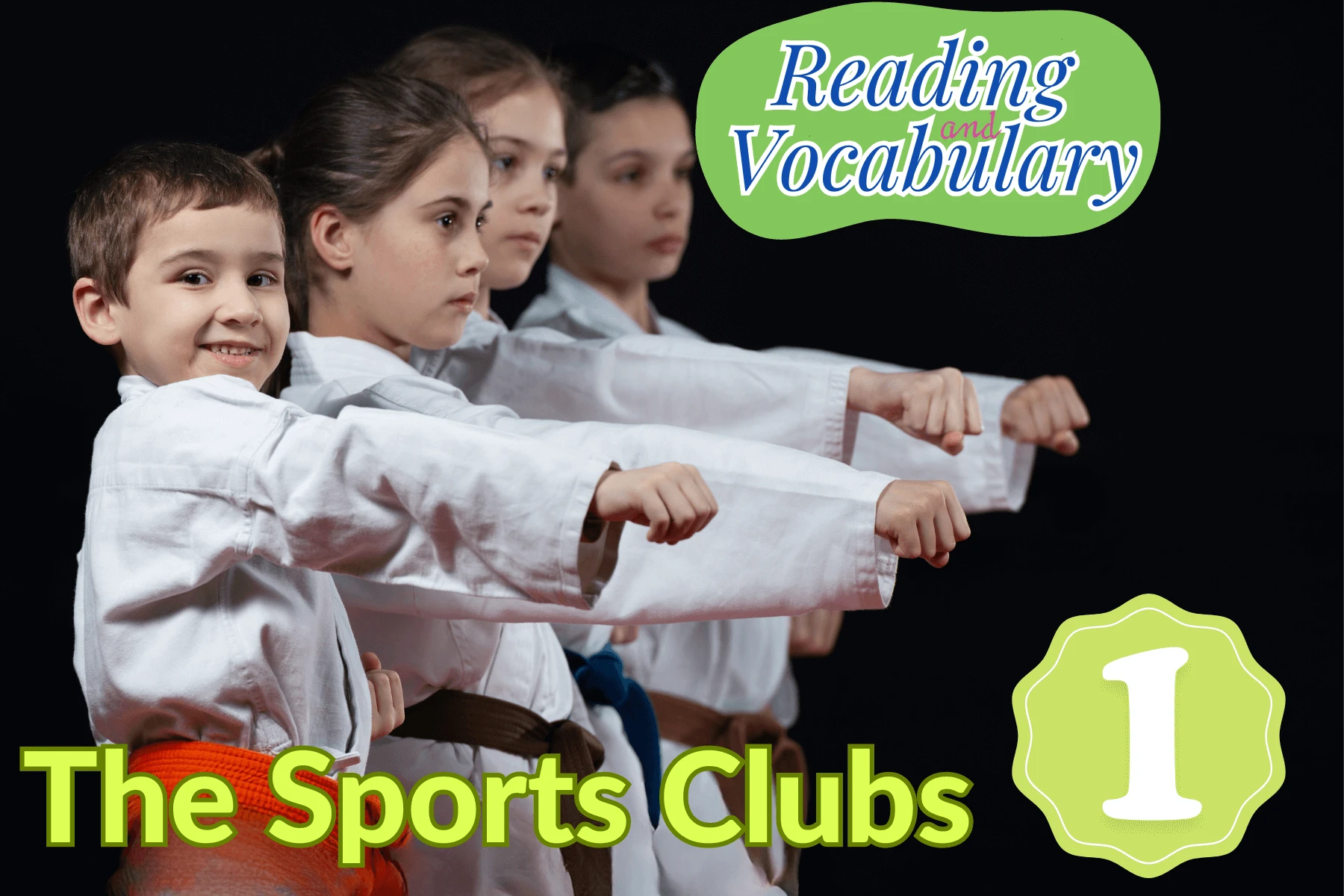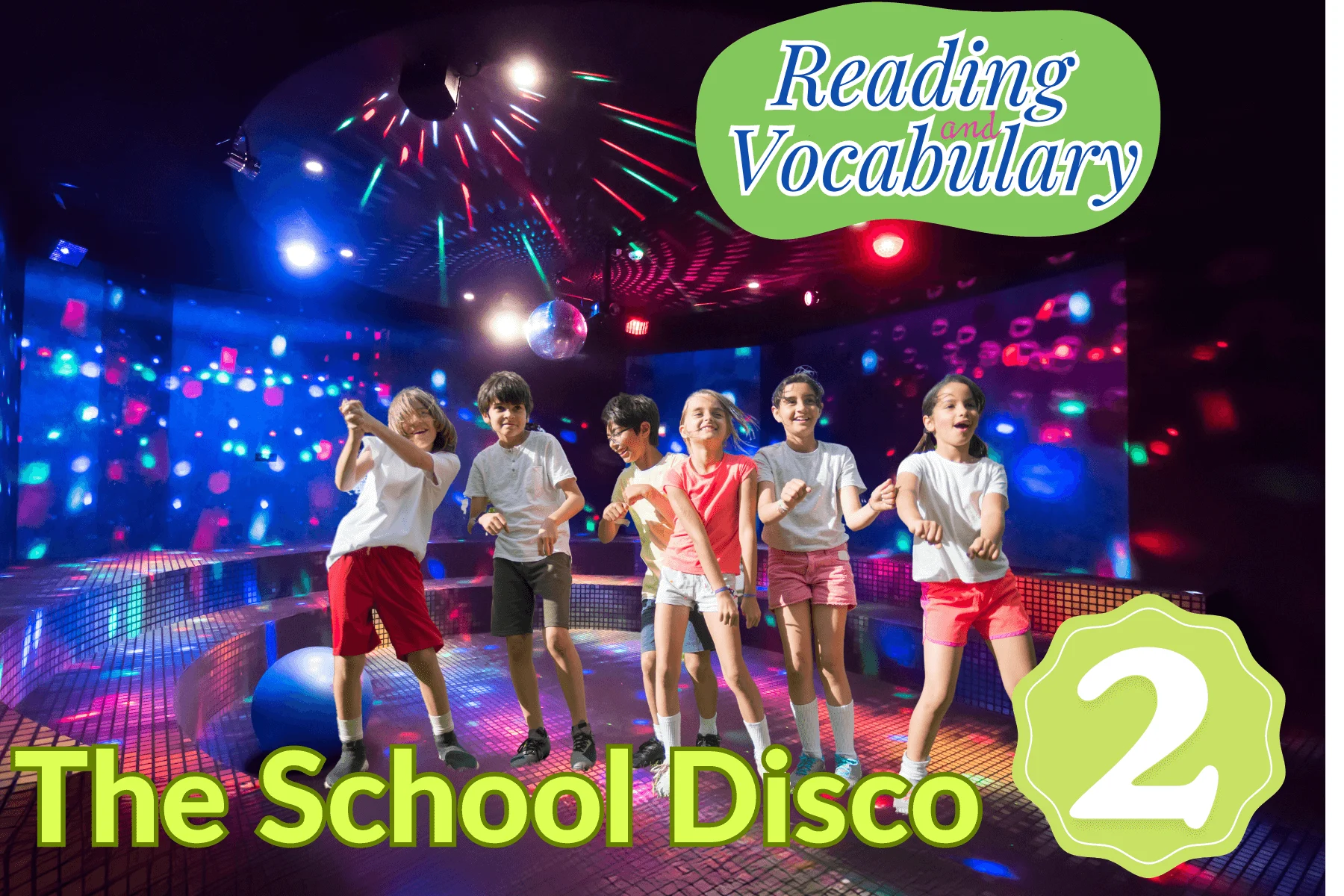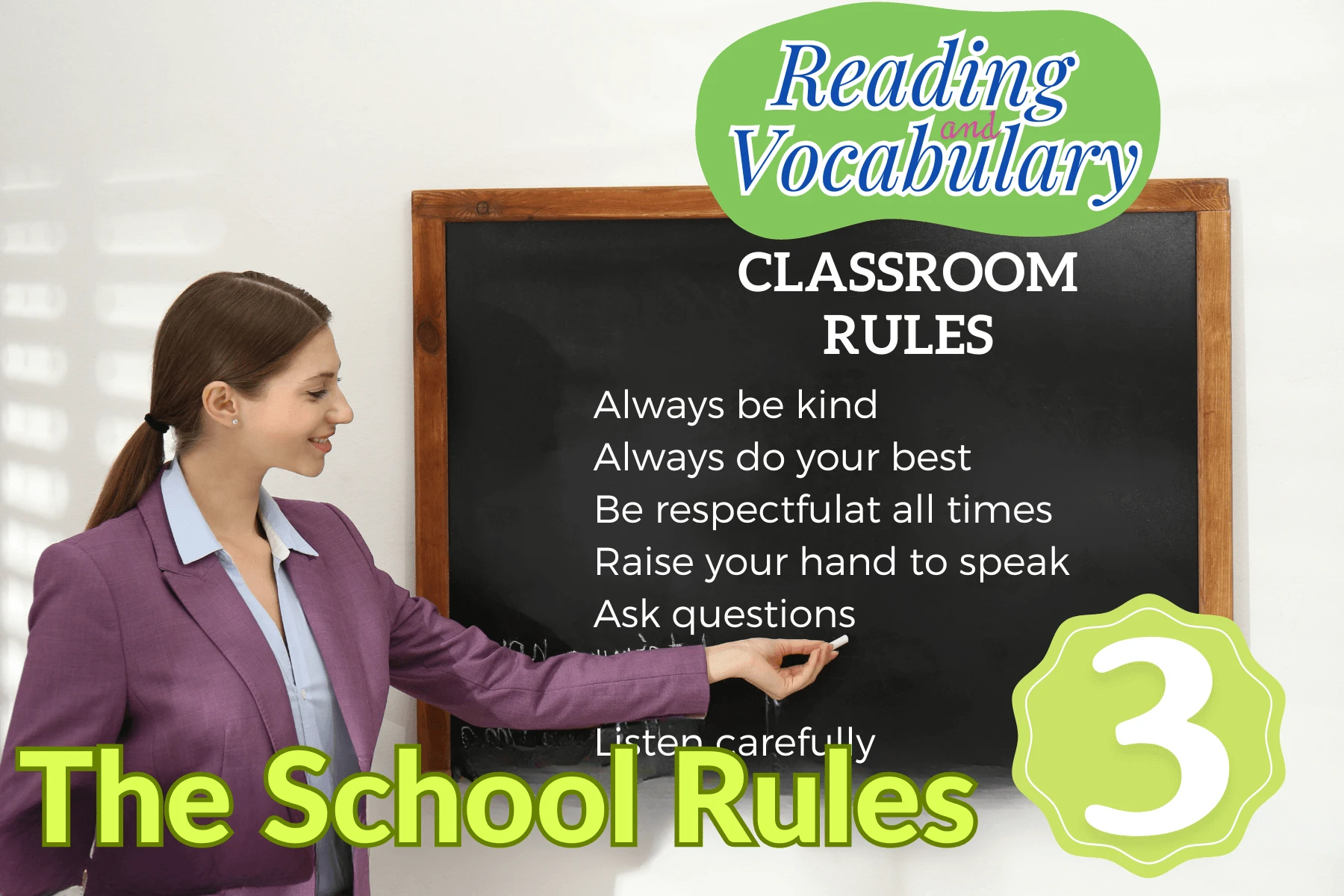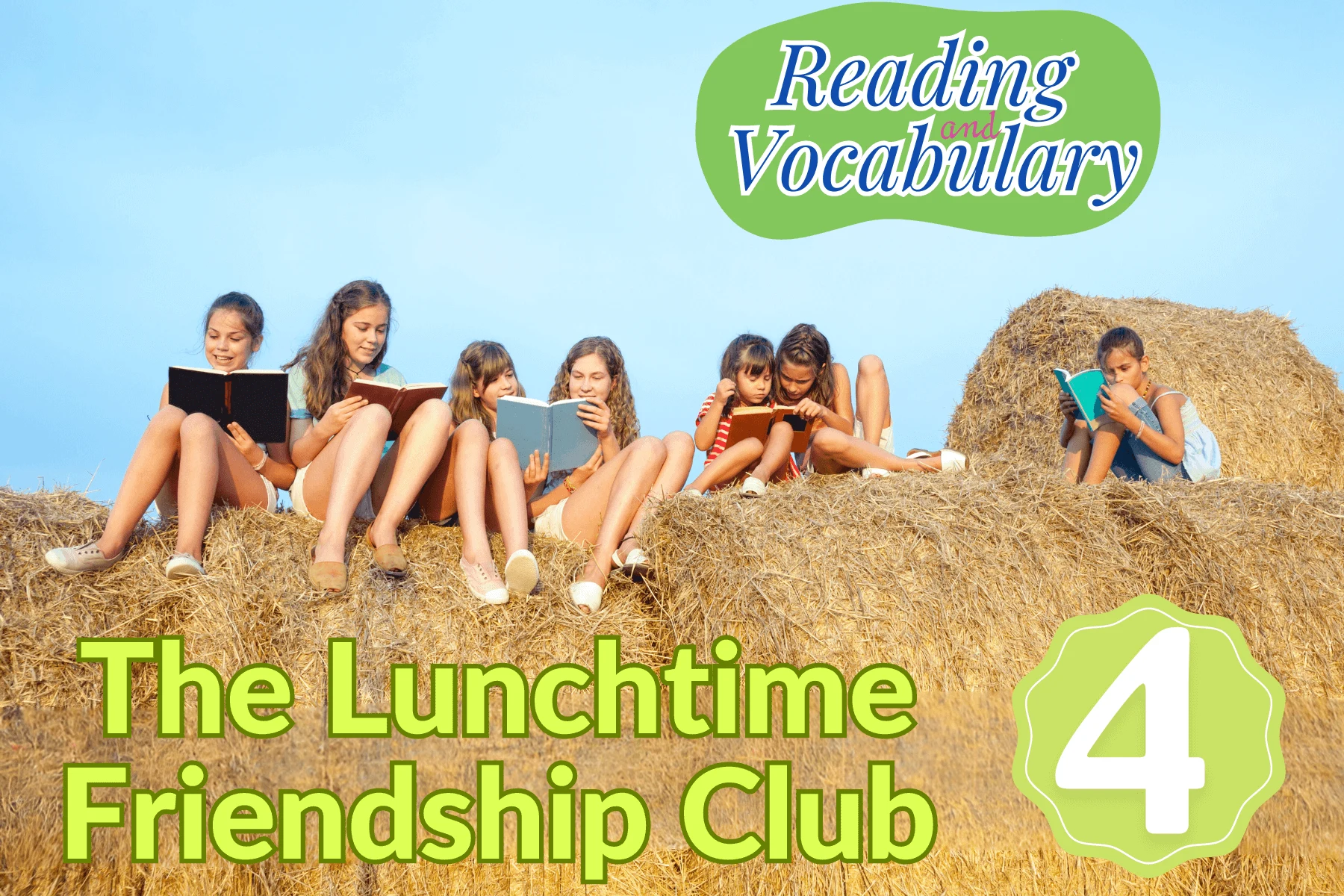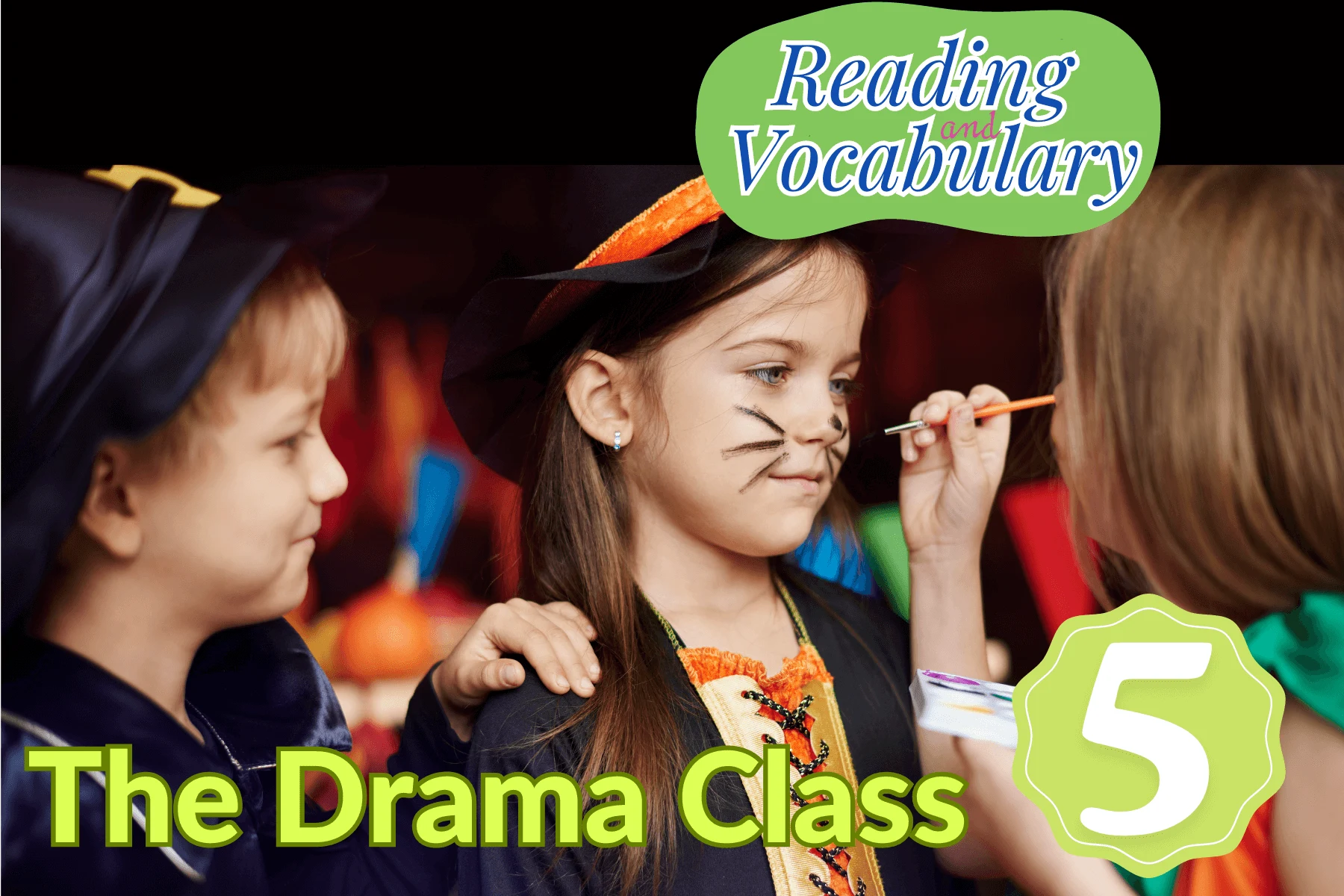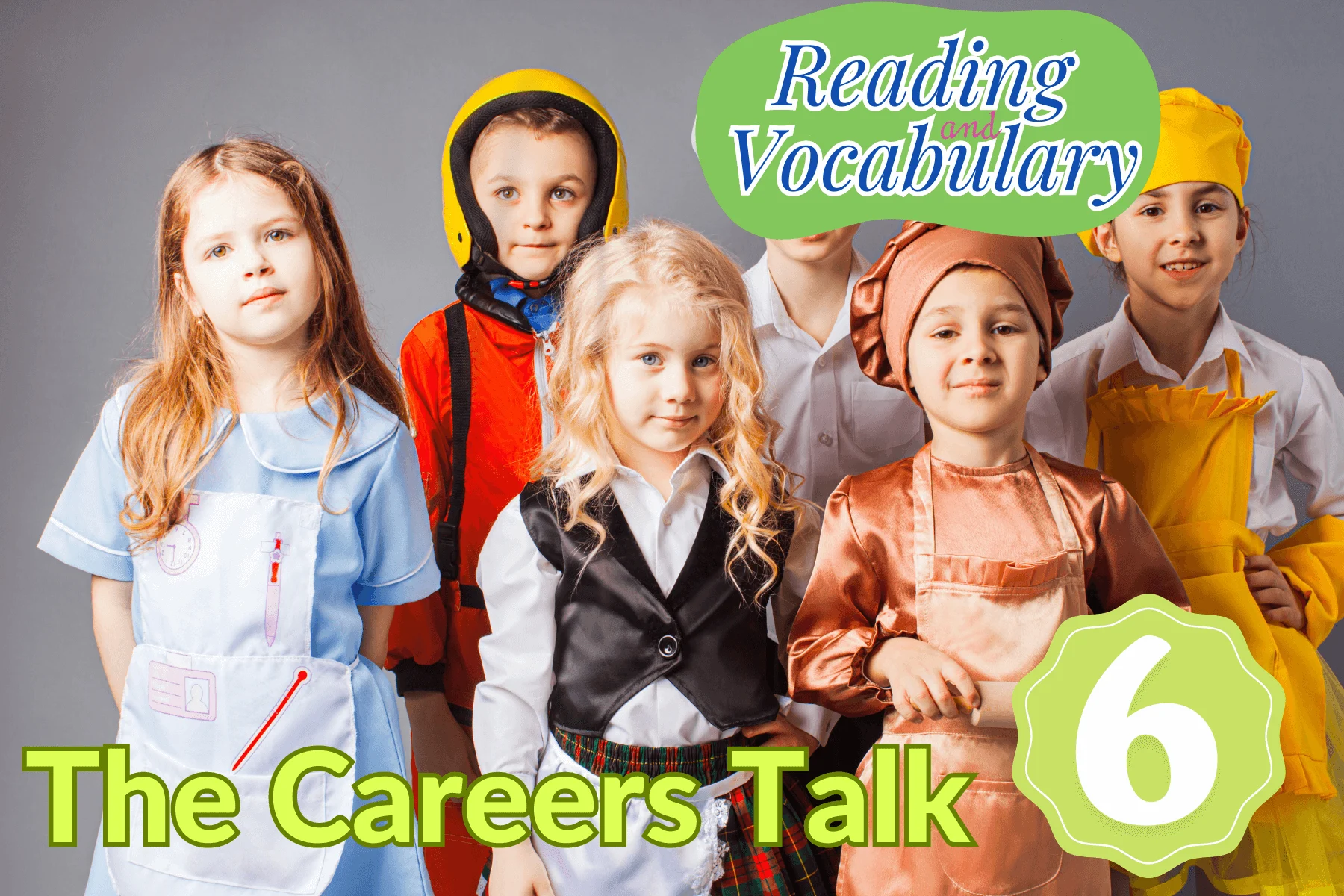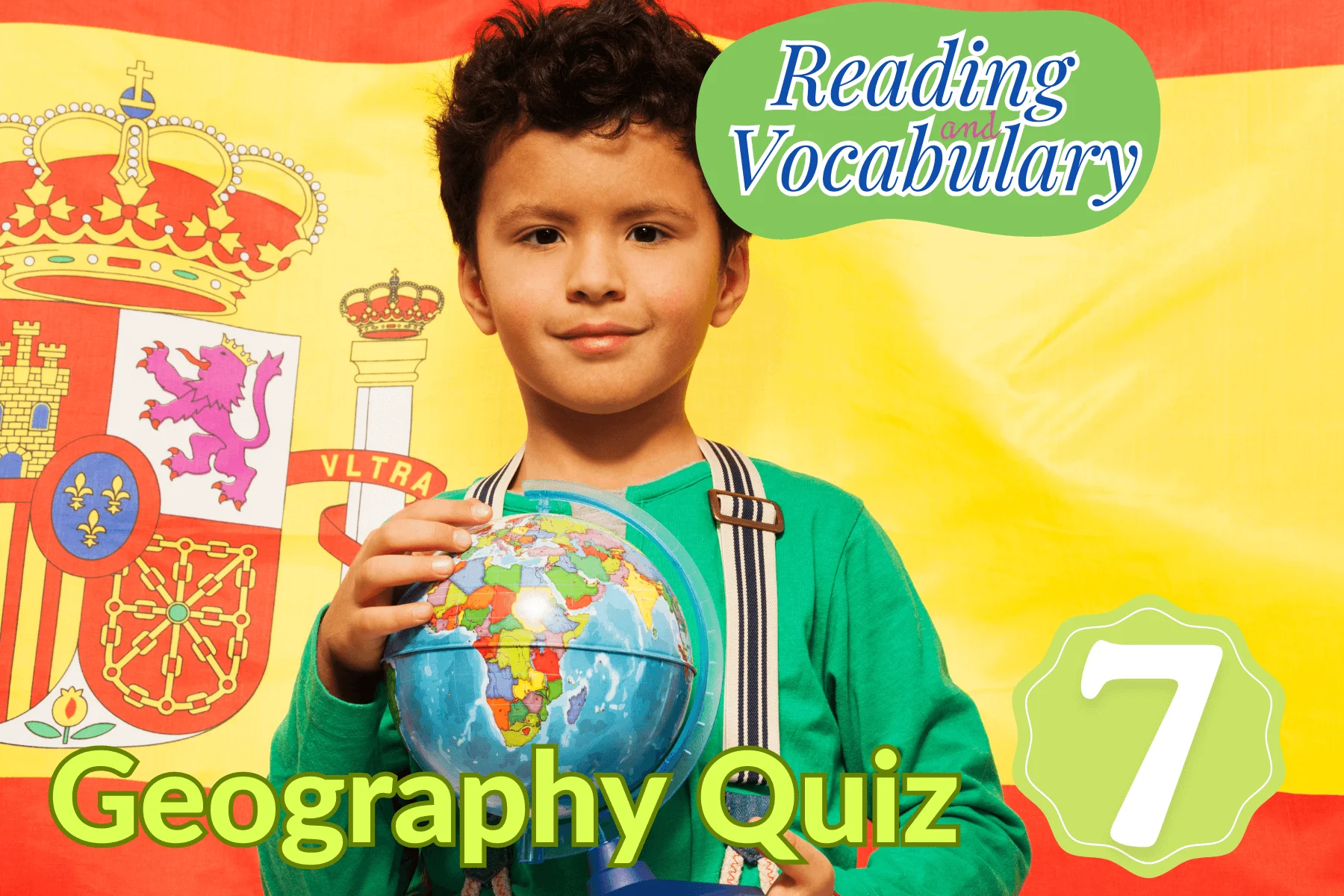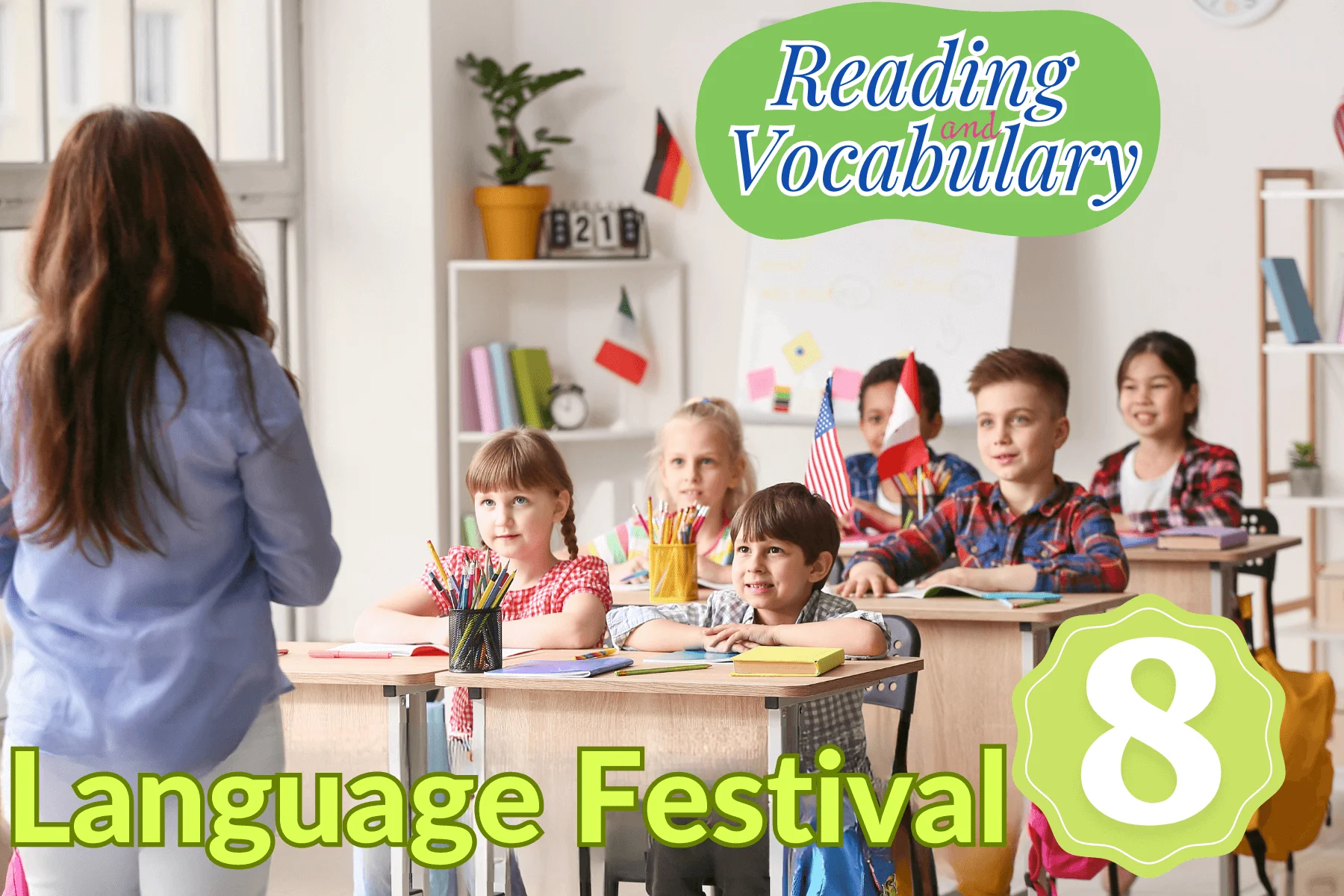Join our engaging Beginner Vocabulary Building Course! Explore 8 units of short, enjoyable reading articles that introduce related words and their opposites. Each unit includes a mini quiz to reinforce your learning through reading comprehension and vocabulary matching exercises. Start expanding your vocabulary in a fun and effective way!
- If you often struggle to find the right words in your writing or feel that your vocabulary holds you back in exams, this course is for you!
- Imagine confidently expressing your thoughts and ideas, and achieving the grades you deserve.
- Don’t let a limited vocabulary stand in the way of your academic success—join us to unlock your full potential!
The Party
Difficulty: Level One
Stars:
The Party
Difficulty: Level One
Stars:
Join Emily on her exciting adventure as she prepares for a party! In this engaging 8-unit series, each article features 120-150 words and introduces students to essential vocabulary through enjoyable reading and exercises.
Throughout the course, students will learn groups of related words, including:
- Body parts
- Clothing items
- Describing appearances
- Expressions of feelings
- Describing characters
- Family members
- Numbers (1-20)
- Colors
With each unit, students will encounter 8 - 15 new spelling words , allowing them to build their vocabulary effectively. By the end of the series, students can expect to learn approximately 80-120 new words and gain the confidence to spell and use them in real-life contexts.
The New Home Plans
Difficulty: Level Two
Stars:
The New Home Plans
Difficulty: Level Two
Stars:
‘The New Home Plans’ tells the story of Andrew and his family moving to a new house. In this engaging 8-unit series, each article features 120-160 words and introduces students to essential vocabulary through enjoyable reading and exercises.
Throughout the course, students will learn groups of related words, including:
- Months of the year
- Days of the week
- Weather vocabulary
- Parts of a house
- The kitchen
- Living room items
- Bathroom essentials
- Bedroom items
With each unit, students will encounter 10-18 new spelling words, allowing them to build their vocabulary effectively. By the end of the series, students can expect to learn approximately 90-145 new words and gain the confidence to spell and use them in real-life contexts.
Mum's Interesing Week
Difficulty: Level One
Stars:
Mum's Interesing Week
Difficulty: Level One
Stars:
Come along with Mum as she enjoys a week filled with family time, simple chores, and a peek into her work life. This cheerful 8-unit series invites students to read engaging stories, each between 120 and 160 words, while learning important vocabulary through fun activities and exercises.
Throughout the course, students will learn groups of related words, including:
- Common Action Verbs (e.g. watching, wearing)
- Movement Verbs (e.g. climb, dance)
- ‘-ing’ Verbs (e.g. driving, kicking)
- Daily Routines (e.g. have a shower)
- More Daily Routines (e.g. get dressed)
- Enjoying time off (e.g. make dinner)
- Greetings and Goodbyes (e.g. Fine, thank you)
- Conversations with customers (e.g Excuse me)
In each unit, students will meet 10-18 new spelling words, helping them build their vocabulary step by step. By the end of the series, students can expect to learn about 90-145 new words, giving them the confidence to use and spell these words in real life.
Dad's New Job
Difficulty: Level Three
Stars:
Dad's New Job
Difficulty: Level Three
Stars:
Dad has a new job! Join him on an exciting adventure as he starts his first day at work, enjoys his day off, and finds himself caught in a robbery incident. Dad takes his children to the pet shop and then to the farm, where they have a great time together. Students will learn plenty of food vocabulary during Dad’s company picnic and see how he celebrates his son’s birthday. This cheerful 8-unit series invites students to read engaging stories, each between 140 and 180 words, while learning important vocabulary through fun activities and exercises.
Throughout the course, students will learn groups of related words, including:
- Travel
- Retail Shops
- The Accident
- Sports Equipment
- At the Pet Shop
- At the Farm
- Picnic Food
- Restaurant Menu
In each unit, students will encounter 15-20 new spelling words, helping them build their vocabulary step by step. By the end of the series, students can expect to learn about 120-160 new words, giving them the confidence to use and spell these words in real life.
A Busy Year
Difficulty: Level Three
Stars:
A Busy Year
Difficulty: Level Three
Stars:
Meet John and Sally, two fun teachers who love to share exciting stories! This time, you get to peek behind the scenes as they go on a family holiday and attend a friend’s wedding. Sally has even written a cool newspaper article about education, sharing how she helps kids pick their favourite subjects. You'll find out what teachers do during their end-of-term party!
This cheerful 8-unit series invites you to dive into their adventures, with each story between 140 and 180 words. It’s not just a story; it’s a chance to explore new vocabulary while having a great time!
- Seasons
- Holidays
- Fun free time activities
- Birthdays and special occasions
- Education vocabulary
- Classroom words
- School subjects
- What happends in the office
Email Exchange
Discover Alice's Busy Day as School Secretary!
Difficulty: Level Four
Stars:
Email Exchange
Discover Alice's Busy Day as School Secretary!
Difficulty: Level Four
Stars:
Meet Alice, the friendly school secretary who keeps everything running smoothly at school! Ever wonder what she does all day? Join her as she communicates with the school nurse, teachers, parents, and even a photographer! In this exciting 8-unit series, you’ll read Alice’s emails filled with real-life stories and fun adventures. Each email reveals a glimpse into her world, showing how she helps students, solves problems, and keeps everyone informed at school.
Every story is between 180 and 220 words. As you read, you’ll learn important vocabulary through fun activities and exercises, including:
- Head and body parts
- Clothes and what to wear
- Family members and relationships
- Common illnesses
- Talking about time—days, months, and years
- Delicious food and drinks
- School related vocabulary
- How to write emails
Visiting the Grandparents
Difficulty: Level Five
Stars:
Visiting the Grandparents
Difficulty: Level Five
Stars:
Molly and William are having a super fun week with their grandparents! Every day is an adventure filled with yummy food and exciting places to visit. They start at the supermarket with Grandma, where they pick out fresh fruits and tasty food for dinner. But that’s just the beginning! They explore fun restaurants, a cool music shop with lots of instruments, and even go to the zoo to see amazing animals! Grandpa helps them with their math homework and tells funny stories. This fun 8-unit series invites you to read about Molly and William's adventures, with each story between 200 and 220 words.
As you read, you’ll learn important groups of related words about:
- Fruits and vegetables
- Meat and other food
- Restaurants and cafes
- Roads and streets
- Musical instruments
- Money and numbers
- Office supplies
- Wild animals
The New Student Handbook
Difficulty: Level Six
Stars:
The New Student Handbook
Difficulty: Level Six
Stars:
Get ready for an amazing school year filled with fun and excitement! This isn’t just any handbook - it’s your guide to a year packed with adventures and new friendships. Discover all the fantastic activities we have planned to make every student feel included and happy! From joining a sports club to dancing at the student disco, there’s something for everyone. You can make friends at the lunchtime friendship club, shine in drama class, explore your future in career talks, challenge yourself with a geography quiz, and even celebrate at our fabulous language festival! This cheerful 8-unit series invites you to dive into engaging stories, each between 200 and 230 words, while learning important vocabulary through fun activities and exercises.
You’ll explore exciting groups of words, like:
- Sports and team fun
- Everyday adjectives to describe your world
- Everyday verbs for your daily adventures
- Sports equipment you’ll need for games
- Phrasal verbs to spice up your language
- Countries to discover
- Nationalities and languages from around the globe
- Fun school activities to join
In each unit, students will encounter 15-20 new spelling words, helping them build their vocabulary step by step. By the end of the series, students can expect to learn about 120-160 new words, giving them the confidence to use and spell these words in real life.
Here's a small demo of the materials
Click on the image to watch the demo video.
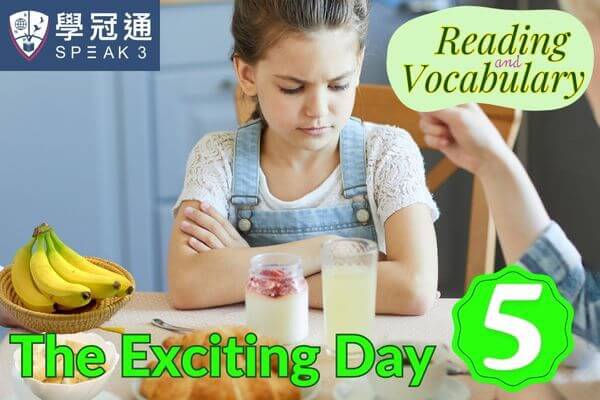
- Title:The Exciting Day
- Difficulty: Level One
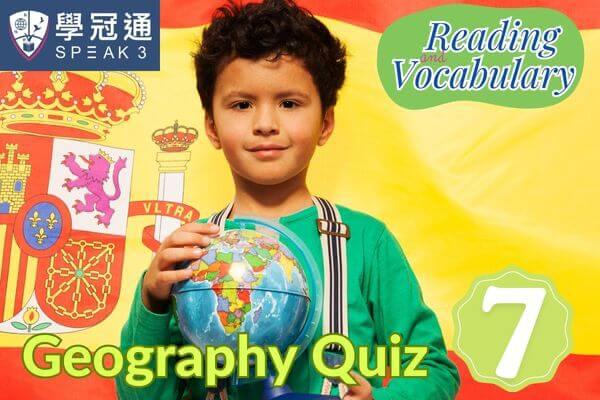
- Title: Geography Quiz
- Difficulty: Level Six
Contact us to get started!
If you have any questions or need assistance, feel free to reach out to us. Our team is here to help you with any inquiries you may have regarding our courses, materials, or any other concerns. Don't hesitate to get in touch!
Total words learned from reading: 825 words/week
Total words learned from spelling dictation: 90 words/week
Hypothetical Vocabulary Gain:
If they are exposed to different articles and vocabulary each week, they could potentially learn and reinforce around 915 new words per week (825 from reading + 90 from spelling).
Spelling Improvement:
Assuming they focus on the 90 words learned from dictation, they would be able to spell those words accurately, enhancing their spelling skills significantly over time.
Research has consistently shown that reading regularly can significantly enhance vocabulary acquisition. Here are some key findings that support this.
In summary, the evidence strongly supports the idea that regular reading is a powerful tool for vocabulary acquisition. By engaging with diverse texts, students can significantly enhance their vocabulary, comprehension, and overall language skills.

